













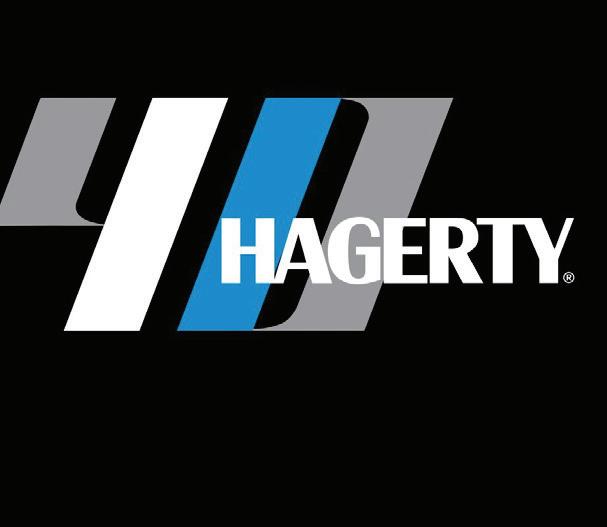

From a Traverse City basement to the NYSE, Hagerty still drives northern Michigan’s economic engine as it enters its fifth decade.


Great things are coming,TC!



TRAVERSE CITY BUSINESS NEWS APRIL 2024 1 PRSRT STD U.S. POSTAGE PAID TRAVERSE CITY, MI PERMIT NO. 7 $3 APRIL 2024 • VOLUME 28 • NUMBER 9 Member FDIC Our new office, now under construction on Garfield Avenue.
40
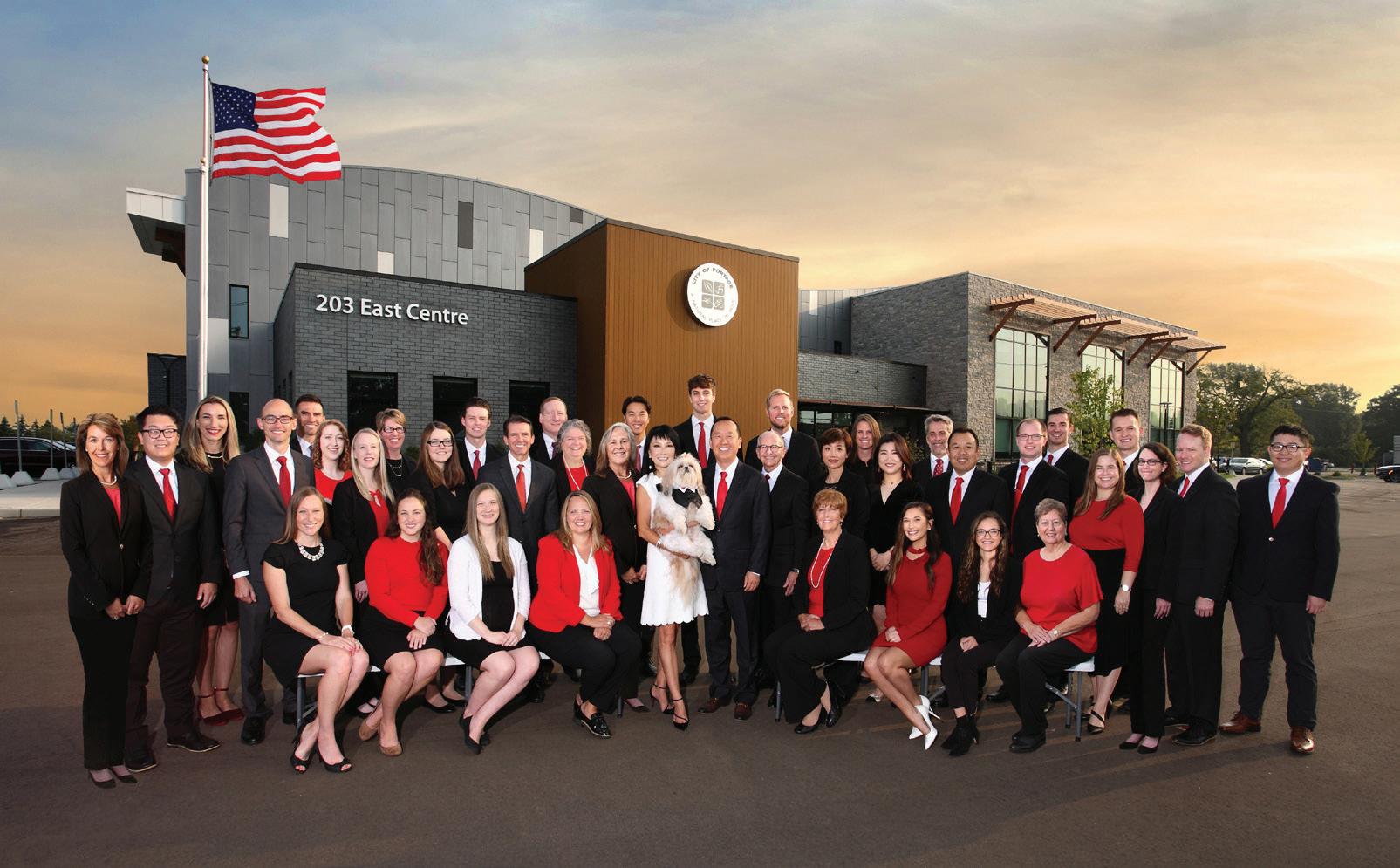
•
•
• Our team of professionals holds designations and degrees such as CFP®, CFA, CPA, MBA, and PhD.
• Charles received his MBA from the Kellogg School of Management - Northwestern University, his MA in Economics from WMU, and Executive Education from Harvard Business School and Columbia University.
Zhang, CFP®, MBA, MSFS, ChFC
• Ranked #1 on Barron’s list of America’s TOP Independent Advisors and is the highest ranked NAPFA-Registered Fee-Only Advisor on the list.*
• Ranked #4 in the nation on Forbes’ list of TOP Wealth Advisors and is the ONLY Independent Advisor in the top 10.**
Minimum investment: $1,000,000 in Michigan/$2,000,000 outside of Michigan. Assets under custody of LPL Financial, TD Ameritrade, and Charles Schwab.
*As

2 APRIL 2024 TRAVERSE CITY BUSINESS NEWS Charles Zhang - Michigan’s #1 Financial Advisor by both Barron’s* and Forbes** A Fee-Only Wealth Management Group
reported in Barron’s March 11, 2023 and September 17, 2021. Based on assets under management, revenue produced for the firm, regulatory record, quality of practices, and other factors. For fee-only status see NAPFA.org.
reported in Forbes April 4, 2023. The Forbes rankings, developed by SHOOK Research, are based on an algorithm of qualitative criteria, mostly gained through telephone and in-person due diligence interviews, and quantitative data. Those advisors that are considered have a minimum of seven years experience, and the algorithm weighs factors like revenue trends, assets under management, compliance records, industry experience and those that encompass best practices in their practices and approach to working with clients. See zhangfinancial.com/disclosure for full ranking criteria. Fee-Only Unbiased Investment Advice
**As
We uphold a Fiduciary Standard and work with clients on a fee-only basis.
Credibility & Professionalism
We do not receive commissions, kick-backs, or soft dollars from product sales, eliminating inherent conflicts of interest.
Charles
www.zhangfinancial.com
Founder and President
Our Zhang Financial Team
Serving the Entire Traverse City Area Traverse City Office 236 1/2 E. Front Street, #26 Traverse City, MI 49684 231-943-6988 Main Office 5931 Oakland Drive Portage, MI 49024 269-385-5888 or 888-777-0216

FLAT CAP TO HOST ‘COMMUNITY IMPACT MARKET’
Flat Cap Ventures has announced plans to host a shop local event April 21-22 in support of the area businesses experiencing challenges due to the rebuild of Grandview Parkway/ East Front Street now underway in Traverse City. “Flat Cap Ventures’ mission is to be a force for good in the community,” organizers said in a release announcing the event. “We see a need; we have the space.” Located on U.S. 31 South near Chums Corners, Flat Cap Ventures is offering its space free of charge to local businesses impacted by the construction for a two-day, pop-up, shopping event. Businesses will be showcasing and selling their products, and selling gift certificates that can be redeemed at their locations once the construction is complete. The event will run Noon - 5 p.m. (Sun., Apr. 21) and 10 a.m. - 6 p.m. (Mon., Apr. 22) at 476 U.S. 31 South.
NEW BUSINESS PARK PROPOSED
A new technology and logistics park – that could eventually feature 200,000 square feet of distribution facilities, warehousing, light industrial, office, data processing, laboratories, and research-and-development tenants – is proposed on Cherry Capital Airport property near Costco in Traverse City. Todd Wyett of development firm Versa says the company could break ground on the first of multiple planned buildings in 2025, with the goal of investing $30 to $40 million to build out the park over the next five years. The plan is not to focus on public-facing or tourism businesses –Wyett rules out hotels, restaurants, and retail stores – but rather technology and logistics companies he says are lacking adequate space in Traverse City. Next steps will include obtaining approval from the airport zoning board and the Northwest Regional Airport Authority board.
STARTUP WEEK RETURNS:
APRIL 22-25
Northern Michigan Startup Week (NMSW) returns for its third year, April 22-25, in Traverse City. Startup Week celebrates entrepreneurship, innovation, and the growing startup community in northern Michigan. The theme is rural health innovation and features eight different events at venues around town.
NMSW is open to everyone with curiosity or an idea they want to explore, those who want to make new connections, and those who want to get in on the action of building something new. More details available at tra verseconnect.com/economic-development.
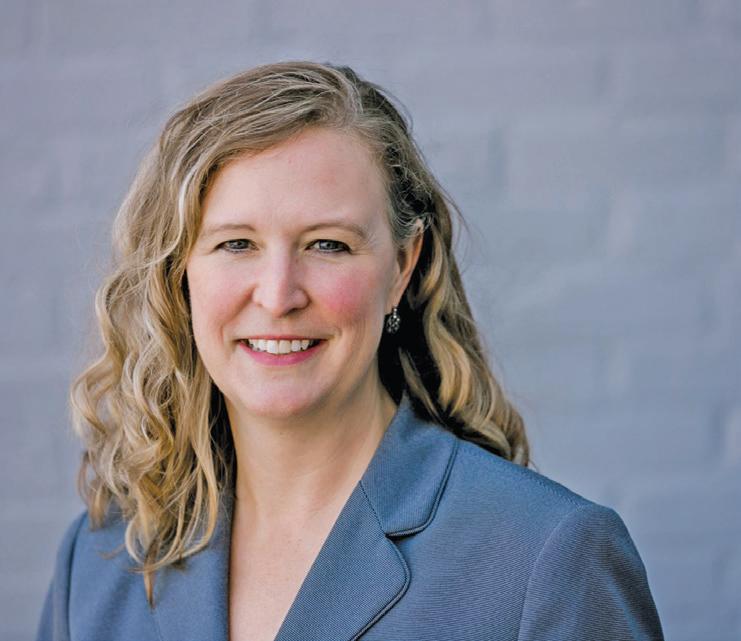

NETWORKS NORTHWEST NAMES NEW LEADER
Janie McNabb has been named the new CEO of Networks Northwest, which pro vides workforce, business, and community development services in the 10 counties of northwest lower Michigan. “We are excited to have Janie rejoin Networks Northwest as the next CEO,” said Nicole Sulak, chair of the Networks Northwest board. “She has the previous experience with the organization and strategic vision to lead Networks Northwest and the region forward.” McNabb comes to Networks Northwest from serving as a workforce and strategy consultant around the state, primarily in affiliation with Strategic Policy Consultants. Prior to that, she spent 18 years in various roles at Networks Northwest, including Northwest Michigan Works! chief operating officer. McNabb replaces former Networks Northwest CEO Terry Vandercook.



KALKASKA NAMES BUSINESS OF YEAR
Twin Birch Golf Club has been named the 2024 Kalkaska Business of the Year. The club is owned by Kwin Morris and was selected through a community nomination process facilitated by the Grand Traverse Regional Community Foundation. The Business of the Year Award was established in 2005 to honor a local business for its outstanding service. “My family and I are beyond ecstatic and grateful to be a part of such a wonderful community,” said Morris. “It means a lot to us and we want to express our heartfelt thanks to everyone that has supported us along the way!”

TRAVERSE CITY BUSINESS NEWS APRIL 2024 3
Awaits B o o k i n g N o w f o r S u m m e r 2 0 2 4 231.922.0087 trunorthlandscaping com Whether cozy or spacious... Your Outdoor Escape Free TuitionFREE TUITION FOR AGES 21+ APRIL 15, 2024 4 - 7PM QUICK QUICKSTARTSTART DROP IN & LEARN MORE START CLASSES THIS SUMMER/FALL nmc.edu/reconnect
BRIEFLY


www.oldmissionwindows.com
It is our Mission at David Webster Construction to bring our clients’ dreams to reality. We accomplish this with unsurpassed attention to detail, while exceeding our clients’ expectations at every level. This requires a very dedicated team of professionals who understand the quality and commitment needed to meet our standards. Old Mission Windows plays a key role in our success and making dreams a reality.
David Webster Owner
231.947.2120 395
Kolbe Windows & Doors leads the industry with innovative products that push the boundaries and defy the limits of function, performance and style. Contact Old Mission Windows, northern Michigan’s premier window and door supplier since 1985, to schedule a personal design consultation today.
Hughes Drive Traverse City, MI 49696
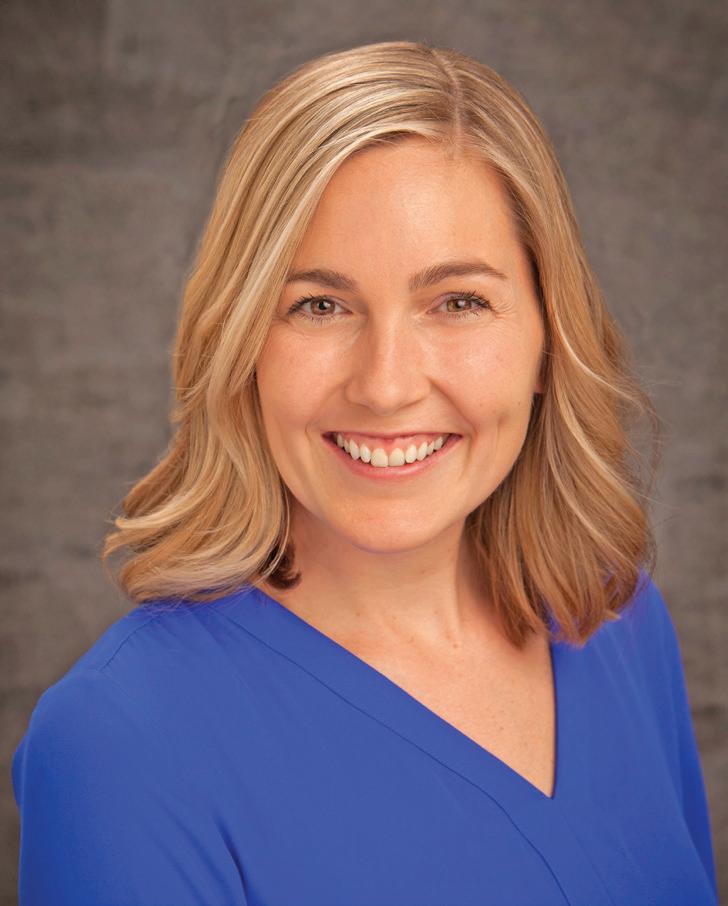
NEW MED PRACTICE OPENS
Dr. Caitlin Schmidt, D.O. has opened a new gynecologic practice at Traverse Bay Internal Medicine in Traverse City. Schmidt utilizes a holistic approach combined with evidence-based medicine and offers full-spectrum gynecologic services for all ages. More information at caitlinschmidtwellness.com

ADVERTISING PROS AWARDED
AAF - Northern Michigan, the newest chapter of the American Advertising Federation, celebrated the work and accomplishments of local advertising professionals and students at the first-ever American Advertising Awards (ADDY) show recently held in Traverse City. Advertising professionals and students submitted work that was judged by a national panel of top creative professionals. In the professional category, the following received awards: 910 Media Group (pictured above), Greenlight Marketing, Hale & Associates, Image360, Maria Kinney Design, PB&J Marketing, and StoryFi. The award-winning work was produced for a variety of local businesses and organizations, including 4Front Credit Union, The Father Fred Foundation, North Branch Outing Club, The Substance Free Coalition of Northwest Michigan, Old Town Playhouse, Lake City Schools, Rove Winery, BC Pizza, and Grand Traverse County Dispatch 911.
NEW MUNSON CLINICS TO OPEN
Munson Healthcare has announced two new clinics as part of its effort to expand access to care in Traverse City, transitioning the former Milliken Medical Group into Munson Healthcare
Elmwood Primary Care and Munson
Healthcare Cedarwoods Internal and Geriatric Medicine. These clinics join the expansion in primary care services with Munson Healthcare Foster Family Primary Care, which opened last year. Elmwood Primary Care will be located at 921 West Front St. and Cedarwoods Internal and Geriatric Medicine at 5041 North Royal Dr.
ECO CERTIFICATION FOR LEELANAU WINERY
Cedar’s Bel Lago Vineyard, Winery & Cidery, along with Bel Lago North Farm and sister winery, French Valley Vineyard, recently announced attainment of SIP (Sustainability in Practice) certifi cation. The certification highlights a com mitment to eco-friendly winemaking and underscores dedication to environmental stewardship and social responsibility.

“Since our inception in 1992, sustainability has been the cornerstone of Bel Lago’s operations,” said Charlie Edson, founder and viticulture and oenology expert. “Our commitment to innovative, eco-conscious practices in viticulture and winemaking is unwavering.”

TVC ADDS SIXTH AIRLINE
Cherry Capital Airport (TVC) officials recently announced Avelo Airlines will begin operating seasonal service in June, making it the sixth airline flying into and out of Traverse City. The airline will provide non-stop, Saturday-only service between TVC and Connecticut’s Tweed-New Haven Airport (HVN) starting June 15. Tweed-New Haven Airport is located on Connecticut’s coast and is a gateway to 15 towns that make up Greater New Haven.
NMC NAMES 2024 FELLOWS
Northwestern Michigan College’s highest honor, the NMC Fellow award, has been bestowed for 2024 on Bill Donberg, Timothy Nelson and Nancy Johnson, and Jack Segal and Karen Puschel Segal. Donberg served as an aviation instructor for more than 23 years. Nelson served as NMC’s longest-serving president while his wife, Johnson, served as a tireless college advocate. Jack Segal and Karen Puschel Segal were co-chairs of the International Affairs Forum for seven years.
“Architecture should speak of its time and place, but yearn for timelessness”
- Frank Gehry
“Architecture should speak of its time and place, but yearn for timelessness”- Frank Gehry

Elk Rapids
231.498.2500
Northville
248.515.4477
josephmoseyarchitecture.com
Your Local Business Broker
www.goldencircleadvisors.com info@goldencircleadvisors.com
TRAVERSE CITY
Curtis D. Kuttnauer
(231) 922-9380
PLYMOUTH
Fred Manuel
(734) 320-6667

TRAVERSE CITY BUSINESS NEWS APRIL 2024 5
BRIEFLY
you a Baby Boomer business owner?
into retirement?
sell your business at the highest price.
Are
Ready to move
We can help you











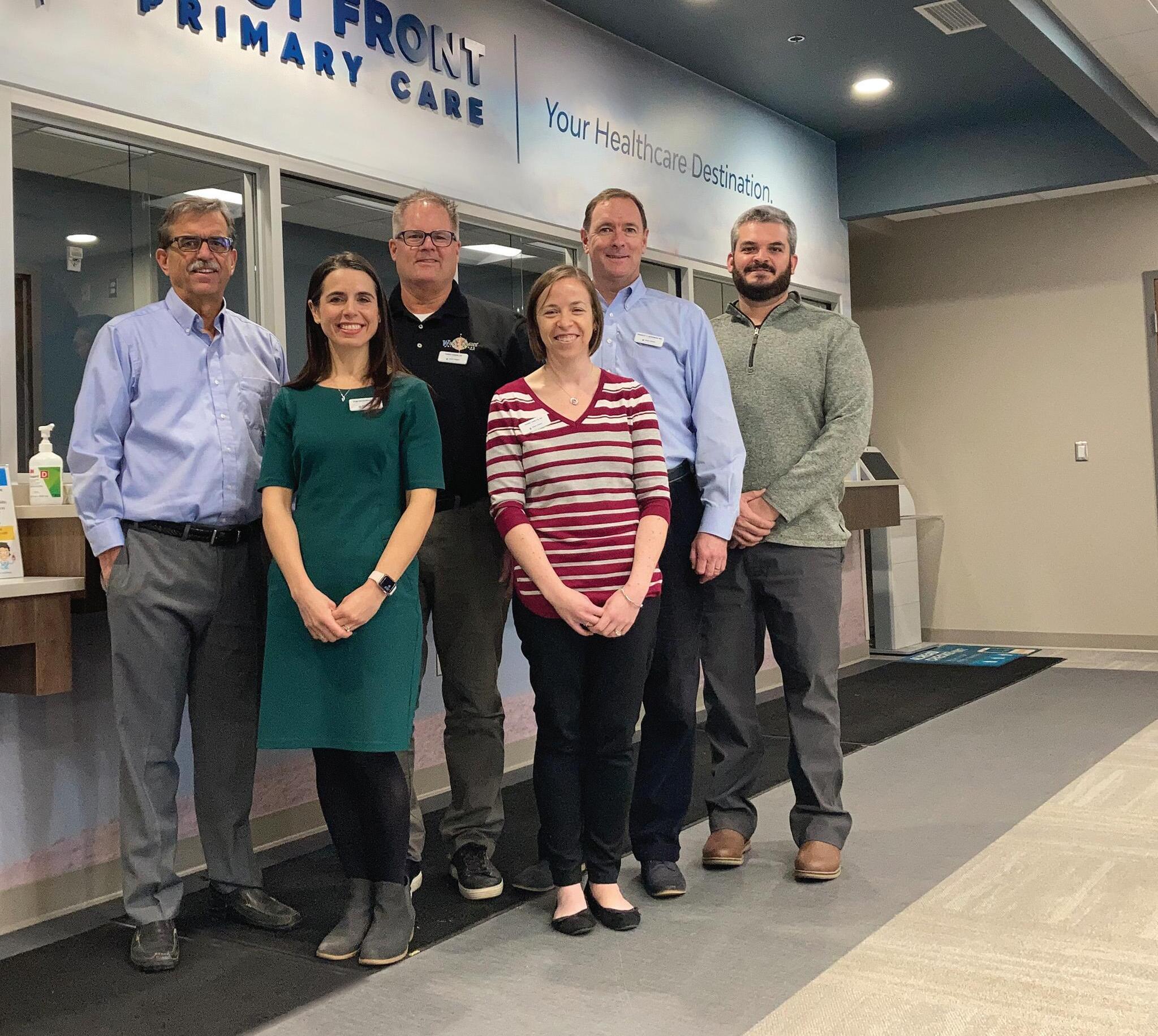

Equal Housing Lender | Member FDIC | (888) 295-4373 | westshorebank com $ 1 , 0 0 0 S C H O L A R S H I P S Awarding A p p l y b e f o r e A p r i l 1 2 , 2 0 2 4 a t 1 1 : 0 0 P . M . E S T Data Charges may apply VISION Design and build an effective and welcoming space for an expanding medical practice. Burdco created a soothing and efficient space for healthcare delivery and a pleasing environment for all our staff. Mike and his team stayed on budget and their timliness was more than impressive. We’re proud to welcome both patients and staff into our new facility. THE DOCTORS ARE IN TRAVERSE CITY • GAYLORD • PETOSKEY BURDCO.COM • 231.941.9074 ” –Bradley P. Goodwin, MD West Front Primary Care “ DESIGN/BUILD MEDICAL OFFICES COMMERCIAL ASSISTED LIVING INDUSTRIAL Mike Brown Owner, Burdco Board Member, Traverse Connect Tina Metropoulos, DO Tobin Fraser, DO Renee Tamlyn, DO Bradley P. Goodwin, MD Dan O’Brien Burdco HOME | AUTO | LIFE | HEALTH | MEDICARE COMMERCIAL | FARM | AGRIBUSINESS 231.941.0450 | FORDINSURANCE.NET | TRAVERSE CITY we care about YOU! FOR 40+ YEARS WE’VE MADE INSURANCE personal.

At Hagerty, we are celebrating our 40th anniversary this year. The official date is April 3, but we’ll celebrate from 7 to 9 a.m., Friday, May 10 at our downtown headquarters with one of the Cars & Caffeine gatherings that we’re known for locally. An event centered around vintage cars and the people who love them seemed like a fitting way to mark the occasion. Car passion is what we’re all about, but as some of you may know, it all started with wooden boats.
Back in 1984, my parents, Frank and Louise, founded Hagerty because they couldn’t find insurance for their beloved classic wooden boats, the type you sometimes see cruising West Bay, Glen Lake or Lake Leelanau. The insurance industry at the time considered such boats, not unreasonably, to be too risky and too few to bother with, so mom and dad did what entrepreneurs have always done when they detect an unfilled niche – they filled it. Dad was the visionary and the charmer. Mom was the operational glue that held things together. She ultimately became our first CEO. Eventually, my sisters, Tammy and Kim, and I joined the family business, and we started to insure what were then called “classic cars,” and the rest, as they say, is history.
What a ride it has been. We started in the basement of my family’s home on Old Mission Peninsula with a few employees, and today we employ nearly 1,700 people worldwide, including about 500 in the Traverse City region, and insure more than 2.4 million vehicles. A few years ago we joined the New York Stock Exchange, which still feels like a dream to me, and last year we passed a billion dollars in total annual revenue for the first time ever.
A billion dollars - can you imagine that?
People sometimes ask me what moments were among the most pivotal in the growth and direction of the company, and I often mention two. First, mom, who had a knack for such things, understood early on that adding collectible cars to our insurance mix would be a solid business move because, as she put it, “People take good care of their toys.”
And she was right. People are very careful with their prized cars, motorcycles and trucks, and that means fewer claims and lower prices, which adds up to a great business if you couple it with fantastic service, which we take pains to do. We pride ourselves on our Net Provider Score, which is a healthy 82, far and away the best in our industry. An NPS score measures customer loyalty by looking at their likelihood of people recommending a given business. Referrals in any business are vital, and you earn them by taking great care of the people who take care of you, meaning your customers. It is an important metric for us and for every business.
Another big moment came during a marketing meeting I attended at Nike headquarters back in the early 2000s. The head of marketing was describing a video that deeply influenced Nike’s future. You may remember it. In 2006, Jason, who is autistic, was the manager of his high school basketball team in Greece, New York. He loved basketball and had tried out repeatedly for the team but never made it. During the last few minutes of the last game of the 2006 season, Jason’s coach let him play, and the crowd went nuts. He missed his first shot but thereafter found his stroke and ended up scoring 20 points. There wasn’t a dry eye in the gym, and Jason was mobbed. Nike’s CEO saw the video and fired off an internal
email saying something to the effect of: “I don’t care that he’s not a Nike-sponsored athlete. I don’t care that he wasn’t wearing the Nike logo, THIS is what we’re about – the spirit of sports – and we’re going to build the whole company around it.”
For me, that story was an “aha” moment. It helped me understand that there was far more to the car hobby than just insurance and that, like Nike, we needed to think bigger. We all need insurance, of course, but the whole point of owning a cool, older car is becoming part of a de facto community
It helped me understand that there was far more to the car hobby than just in-
and that, like Nike, we needed to think bigger.
and sharing the joy. Car people love to talk to car people. They want to go to car shows. They love to read and watch videos about cars. They love spending their time and money on their hobby. Cars are a big and important part of their lives.
So, we pivoted to meet those needs. It has taken us years, but today our focus is to do as much as we can to help car enthusiasts protect, buy, sell and enjoy their cars. In addition to insurance, we operate engaging events like The Amelia, the Greenwich Concours d’Elegance and RADwood so people get to see, up close and personal, incredible examples of the world’s finest cars. (And in the case of RADwood, the raddest cars and fashions of the ‘80s and ‘90s.) We help people buy and sell classic cars through our online Marketplace and our
live auction company called Broad Arrow. (Our most recent auction in Florida drew a sold-out crowd and tallied $63 million in sales.) Our media division produces some of the finest automotive journalism in the world. Hagerty Drivers Club magazine, for instance, is the 2nd biggest car magazine in the country, and our YouTube channel has more than 3 million subscribers. More than 800,000 people have joined Hagerty Drivers Club, which provides exclusive offers, expert support, member experiences and more.
Of course, none of this would have happened without the skills and passion of One Team Hagerty, which is what we call our employee group. Nor would it have happened without the endless support of the people of the Traverse City region, the business community and our elected officials. You have made it easy to scale and sustain our company here, and I am grateful. I am proud to call Traverse City home. While our first responsibility is to be a successful company that employs a lot of great people, I am proud of our long track record of directly giving back to the community that nurtures us. Since 2010 we have supported more than 500 local nonprofits, provided $5.5 million in local community support, and volunteered over 100,000 service hours.
What does the future hold? That one’s easy: More. We want to keep expanding our niche until Hagerty is a worldwide household name synonymous with cars and driving. I think it can happen. I have a feeling the next 40 years are going to be even more fun than the first 40.
Thanks for being on this ride with us.
McKeel Hagerty is CEO of Hagerty (NYSE: HGTY).
TRAVERSE CITY BUSINESS NEWS APRIL 2024 7
A THANK YOU TO TRAVERSE CITY theTCBN The Traverse City Business News Published monthly by Eyes Only Media, LLC P.O. Box 4020 Traverse City, MI 49685 231-947-8787 Periodical postage qualification pending at Traverse City, MI. POSTMASTER: Send address changes to The Traverse City Business News, PO Box 1810, Traverse City, MI 49685-1810. The Traverse City Business News is not responsible for unsolicited contributions. Content ©2024 Eyes Only Media, LLC. All rights reserved. EYES ONLY MEDIA, LLC EDITORIAL & BUSINESS OFFICE P.O. Box 4020 Traverse City, MI 49685 231-947-8787 ON THE WEB tcbusinessnews.com PUBLISHER Luke W. Haase lhaase@tcbusinessnews.com CONTRIBUTING EDITOR Gayle Neu gneu@tcbusinessnews.com HEAD WRITER Craig Manning COPY EDITOR Becky Kalajian CREATIVE DIRECTOR Kyra Poehlman CONTRIBUTING WRITERS Ross Boissoneau Art Bukowski Kierstin Gunsberg Rick Haglund
PRODUCTION: Byte Productions MAILING/FULFILLMENT Village Press DISTRIBUTION Gerald Morris SERVING: Grand Traverse, Kalkaska, Leelanau and Benzie counties AD SALES Caroline Bloemer cbloemer@tcbusinessnews.com Lisa Gillespie lisa@northernexpress.com Abby Walton Porter aporter@northernexpress.com Kaitlyn Nance knance@northernexpress.com Todd Norris tnorris@tcbusinessnews.com Michele Young myoung@tcbusinessnews.com COMMENTARY BY MCKEEL HAGERTY
WEB
surance
FROM THE DESK OF...
Matthew Ross, Executive Director, The Botanic Garden at Historic Barns Park
By Art Bukowski
Matthew Ross is celebrating two years as executive director at Traverse City’s much-beloved Botanic Garden at Historic Barns Park, a 25-acre complex adjacent to the Grand Traverse Commons. The operation is described as a “year-round sanctuary of environmental preservation, recreation and education.” With an emphasis on plant species native to northwest Michigan, it creates and enhances habitats for various forms of wildlife. Ross came to the garden after serving as director of continuing education at Longwood Gardens, a large and well-respected botanic garden in Pennsylvania.


“We have a $3.7 million capital campaign that we’ve been working on the last two years. It made the news recently because we just got a $700,000 boost from the Michigan Department of Labor and Economic Opportunity. We’re closing in on reaching our goal, and with that money we’ll be converting the second floor of this barn into workable space. So I’ll have a permanent office, and we’ll have classroom space, a teaching kitchen, a gallery, and a small classroom, all as part of an education center that we’re developing here.”
If you have an idea for a future From The Desk Of feature, email abukowski@tcbusinessnews.com.
1. I love shooting landscape photography. I travel extensively and take photos of gardens all around the world, and hike quite a bit in our area, so this comes in handy. When I find the right lighting in the right time in our garden, I love shooting here.
2. I drink green tea relatively frequently. I don’t drink coffee at all - it’s a flavor thing. I’ve had it from the best coffee shop in all of Peru, and I still spit it out.
3. This came from my first job as a horticulturalist at the Toledo Botanic Garden, where there was a big festival called the Crosby Art Festival. The guy who made this was an imagineer for Disney who had worked with Jim Henson, and he gave it to me for free. It says ‘Plant Impossible Gardens, and I’ve kept it in my office ever since. It really encourages me to think differently about being an artist with the work that I’m doing.
4. I keep all my art supplies in here that I used for landscape designs. Markers, templates, scales, etcetera. I’ve carried it with me as a student and then a teacher, and now I use it for my designs here.
5. I always have my tools. When the weather’s right and the volunteers are here, I’m hands-on in the gardens.
6. “The Seven Generations and the Seven Grandfather Teachings” by James Vukelich Kaagegaabaw is a book I got for all of my board members. We want to become more in tune with what’s happening in the Anishinaabe community as we develop our Anishinaabe medicine wheel garden and foraging meadow.
7. I got this tobacco pouch as an offering from a member of the Saginaw Chippewa Indian Tribe after I gave her some plants from the garden. It was a nice offering that grounded me and reminded me about why I’m here doing the work that I’m doing, and about the site itself.
8. This is a power inverter. I’m waiting for my office to be built across the way (that’s part of our big capital campaign). Currently I work from a lot of places, and a lot of times I’ll take meetings on the road. I’ve been nomadic, in a sense.
8 APRIL 2024 TRAVERSE CITY BUSINESS NEWS
4 2 5 7 6 3 1 8

TRAVERSE CITY BUSINESS NEWS APRIL 2024 9
HOUSING HEADWINDS
Construction by the numbers in Traverse City and beyond
By Craig Manning
If you live in Traverse City, you know that housing is at the crux of many of the area’s biggest conversations right now: How to get more of it; how to reduce the amount of money it costs; how to leverage it as a means of solving local problems, from workforce recruitment and retention, to demographic distribution, to homelessness.
But before housing comes construction, and the construction industry – both locally and statewide – is facing its own headwinds as it works to address the mounting housing crisis. What is the state of the construction industry in Michigan – and in the Traverse City area specifically – and what do the tea leaves say about the future? We crunched the numbers – and touched base with Lauren Tucker, executive officer of the Home Builders Association of Northwest Michigan – in search of answers.
INVENTORY AND HOUSING PRODUCTION
19,703: Total housing units built in Michigan in 2023, according to the U.S. Census Bureau. That number is down 10.7% from 2022 (21,983) and is actually even lower than the core pandemic years of 2021 (21,732) and 2019 (19,735).
13,856: Single-family housing permits issued in Michigan in 2023, down 8% compared to the more than 15,000 issued in 2022.
25,000: According to the Home Builders Association of Michigan (HBA), the number of new homes that most economists believe a state the size of Michigan should be building (annually) just to keep up with population shifts and the loss of aging housing stock. The last time the state hit that level of housing production in one year? 2006. Per the HBAM, Michigan has built an average of 13,000 homes per year since then.
711: The number of residential building permits issued in Grand Traverse County in 2022, the most recent year for which Census Bureau data is available. The good news? That number is up more than 28% from 2021, and marked the county’s biggest year for housing production since 2006. The bad news? Back in

2005, Grand Traverse County tallied 1,163 building permits in a single year –more than 2021 and 2022 combined.
$502,697: The average sale price of a home in Grand Traverse County in 2023 – a record high, up 7.65% from the previous year’s then-historic high of $466,940. That trend, of higher and higher home prices, is a nationwide issue. According to the HBAM, national home prices are now 70% higher than their last peak during the housing boom in March 2006.
2,538: The total number of homes sold in Grand Traverse County last year, down from 2,771 the previous year. From 2019 to 2021, sales volume was significantly higher – ranging from 3,370 to 3,455 homes per year – indicating the fast-dwindling inventory in the northern Michigan market.
Commentary: “To a certain degree, our area is insulated,” Tucker said when asked about local housing starts and inventory creation. “Because of the draw here, and because of the higher per-capita income, the people that tend to build here tend to be working more in the custom home space. So, we’re still building, and we’re still actively having new starts (in northern Michigan). I’m even reporting very few disruptions, in terms of projects that have dropped off due to the current economic forecast or the price/ interest rate situation that we’re seeing industry-wide. People that are building in northern Michigan, for the most part, are

going to build no matter what.”
In other words, Traverse City’s housing production numbers are holding steadier than other parts of the state, if only because the area’s high-end custom home builders are staying busy. In order to boost production numbers across the board, though – and to get some housing on the
market for less wealthy families or individuals – Tucker says he thinks there will need to be more of a top-down national change.
“One of the things the HBA on the national side is doing is working with the National Realtors Association to prove how these high interest rates are crippling the housing industry,” Tucker said, citing
10 APRIL 2024 TRAVERSE CITY BUSINESS NEWS THE CONSTRUCTION REPORT
Michigan has seen a dramatic dip in residential building permits in the past decade.
Grand Traverse County’s trend line in residential building permits.
ongoing efforts in lobbying the federal government to lower interest rates.
“From talking with lending associations, we know they are still seeing a significant amount of lending happening for the purchase of homes and the construction of homes, as well,” Tucker added. “But the places where you’re going to see halted lending is around land development, and that really hurts inventory production. If they’re not privately funded, then you’re going to see a lot less of those new neighborhoods going up, because it’s almost impossible for a builder to get a loan to do spec housing right now.”
COSTS AND OVERHEAD
1.6: The across-the-board percentage increase tracked in Producer Price Index (PPI) between February 2023 and February 2024*. (PPI is defined by the U.S. Department of Labor as “a family of indexes that measures the average change over time in the selling prices received by domestic producers of goods and services.”)
The construction industry, over the past year, has seen notable PPI increases in a slew of key building supplies, materials, and expenses including:
• Paving mixtures, up 1.4%
• Concrete products, up 6.6%
• Cement, up 6.5%
• Insulation, up 3.3%
• Steel mill products, up 5%
• Sheet metal products, up 2.2%
• Fabricated structural metal, up 2.4%
• Prefab metal buildings, up 7.3%
• Construction machinery and equipment, up 4.3%
• Wages and salaries, up 4.5%
• Total compensation, up 4.2%
Of course, there have been a few PPI declines relevant to the construction world as well, such as:
• Diesel fuel, down 11.2%
• Plastic construction products, down 2%
• Flat glass, down 1.1%
• Lumber/plywood, down 4.8%
*Note that all PPI data presented in this section come from the latest report by Associated General Contractors of America (AGC).
Commentary: For years, pandemic-era supply chain disruptions were the main culprit behind rising materials costs in the construction world. While Tucker said those COVID-related kinks have largely smoothed themselves out with time, she points to other equally challenging issues on the horizon.
“Lumber is going to continue to be a challenge in the future because of the massive amounts of fires we’ve had,” Tucker explained. “That fire in Canada is going to exponentially affect us long term,
“That fire in Canada is going to exponentially affect us long term, because the majority of North American timber comes from Canada. And then another thing we’re seeing is that, on the utilities side, there is a massive shortage nationwide of electrical transformers.”
because the majority of North American timber comes from Canada. And then another thing we’re seeing is that, on the utilities side, there is a massive shortage nationwide of electrical transformers.”
– Lauren Tucker, executive officer, Home Builders Association of Northwest Michigan Tucker
In Michigan, Tucker said home builders are closely eyeing legislative moves that could add substantially to the cost of building homes. Recently, the state’s HBA sent out a call-to-action to regional HBA members, urging them to submit comments to the legislature on a proposed revamp of the Michigan Residential Code (MRC). If adopted, that code would significantly ramp up home building standards statewide, including the addition of several new requirements – like mandatory fire suppression systems in all residen-

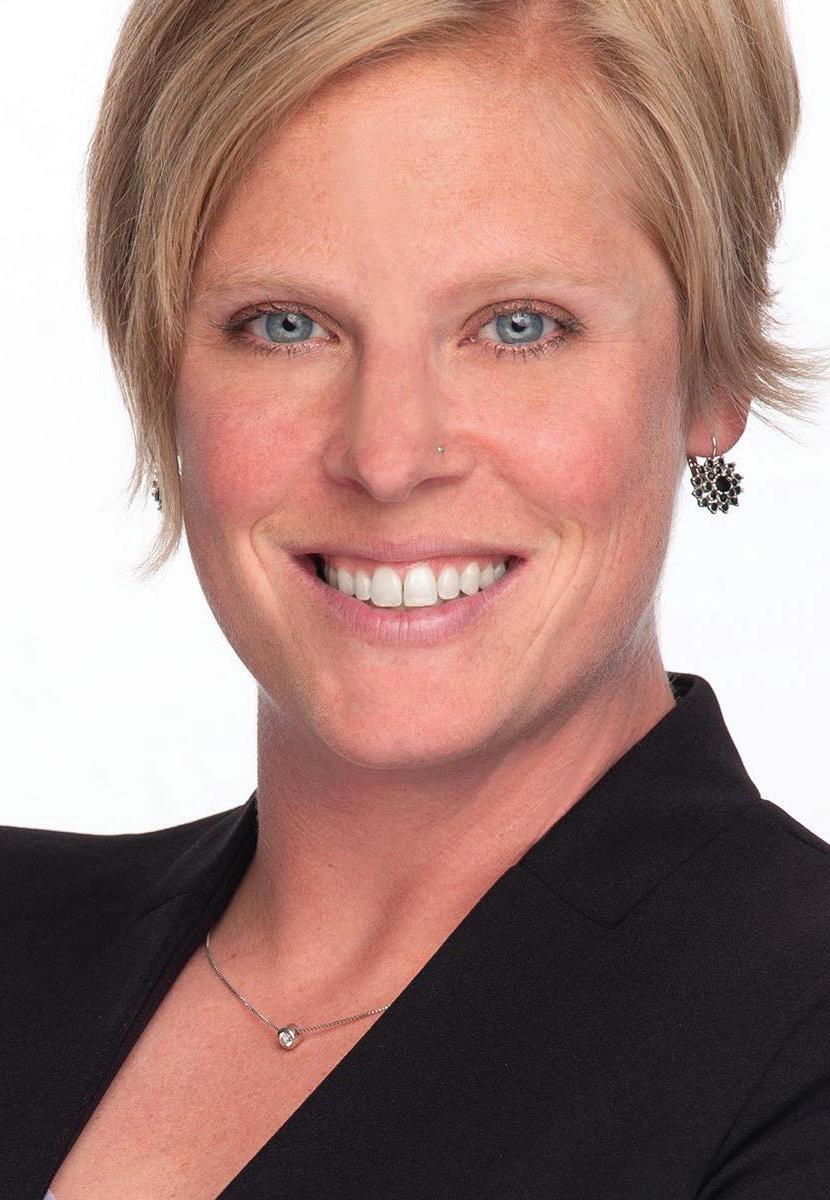
tial homes, R-60 insulation in ceilings and attics, and 2x6 house framing – that Tucker says won’t achieve much in terms of safety, efficiency, or durability but will add big costs to the ledger.
“With R-60 insulation, for example, you’d only be increasing the efficiency of a home by fractions of a percentage point,” Tucker said. “And then with the mandatory sprinkler systems, even the insurance companies are fighting that one, because
Is it time to bring your business future into focus?
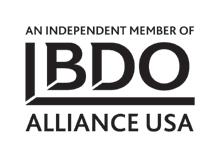
TRAVERSE CITY BUSINESS NEWS APRIL 2024 11 THE CONSTRUCTION REPORT
www.traversecpa.com 231.947.9260 Small Business Consulting. Yearlong Tax Planning. Uncommon Clarity.
LET’S SET A CLEAR VISION FOR SUCCESS. We’re big business thinkers for small business owners.





12 APRIL 2024 TRAVERSE CITY BUSINESS NEWS LUXURY VINYL PLANK WITH CUSTOM STAIR TREADS OVER 40 STYLES IN STOCK AND ON SALE NOW AT AMERICA’S CARPET BARN! ASK US ABOUT OUR CUSTOM ONE-PIECE VINYL STAIR TREADS Check out our Google reviews to see for yourself! 883 US Highway 31 S Traverse City 231-943-PIGS (7447) www.americascarpetbarn.com
“Thanks Americas Carpet Barn!”
if there’s a faulty system and the sprinklers deploy, you’re looking at a total loss in terms of property damage. Water damage is significantly more costly, on average, than smoke damage or fire damage. So, the good doesn’t outweigh the bad on a lot of these proposed changes.”
According to the state HBA, the tweaks included in the proposed MRC would, depending on the size and location of a home, add between $20,000 on the low end and more than $40,000 on the high end to home production costs. Per its literature, “We know that for every thousand-dollar increase in the cost of a home, some 5,000 families are priced-out from being able to afford it. Unless altered, the state’s proposed code changes will price-out more than 100,000 families. This will lower production and exacerbate our housing shortage and affordability crisis.”
LABOR AND JOBS
8 million: Based on Bureau of Labor Statistics (BLS) data, the number of people employed in the U.S. construction industry during 2023 – give or take 100,000 in seasonal fluctuations. That’s the country’s highest level of construction employment from any point in the past 10 years. For comparison, industry-wide employment was 6 million in early 2014, just 10 years ago.
6.5 million : The low point of construction employment in the U.S. during the COVID-19 pandemic, in terms of monthly data. Pre-pandemic, construction employment was around 7.6 million. It dipped to 6.5 million in April 2020, but bounced back quickly, increasing in every subsequent month for the following year. The baseline had rebounded to approximately 7.6 million people working in construction by early 2022, and it has since far outstripped pre-pandemic levels.
8,162,000: The number of people employed in construction nationwide as of February 2024, the most recent month for which BLS data is available. That’s up from 7,947,000 for the same month last year.
407,000: The number of job openings in the U.S. construction industry as of January 2024.
114,900: The BLS’s projected job growth for construction between 2022 and 2032.
316,000: The number of people in Michigan employed by the construction industry, according to the state’s Department of Technology, Management & Budget.
Construction jobs are on the rise nationwide, according to the Bureau of Labor Statistics.

50.4: The percentage growth Michigan saw in construction employment between 2011 and 2021, significantly outpacing the 7.4% increase in statewide employment.
Commentary: “We are definitely seeing some gains locally,” Tucker said of workforce development, pointing in particular to growing level of interest in construction careers from area high school and college students. “What I am seeing is engagement with what I call ‘the gatekeepers,’ and that’s families and counselors and employers. More and more people are reaching out to us to learn how to get on a path to a career
in the skilled trades. Enrollment is up in our local programs – not just at the Career-Tech Center, but at Northwestern Michigan College, too.”
“There’s so much interest that what we’re going to get into now is a capacity problem,” Tucker continued. “It’s hard to find instructors, because most of those classes take place in the evening, and those folks are working in the industry and then acting as adjunct professors or instructors. It’s a special individual that’s going to work all day and then come in and teach the next generation. We are so lucky to have those people, but we need more of them.”

• The largest number of experienced and board certified surgeons with 13 surgeons, and a team of PAs and Physical Therapy providers focused solely on Orthopaedics
• We can get you in the same day with a single phone call when you get injured
• GLOC has served Northern Michigan for over 30 years
• No Urgent Care or ER deductibles at GLOC
• 2 locations to serve you
TRAVERSE CITY BUSINESS NEWS APRIL 2024 13
THE CONSTRUCTION REPORT
MORE EXPERIENCE. MORE CHOICE. MORE LOWER COST OPTIONS.
GoGLOC.COM / 231.935.0900 Go forward, Go GLOC. 4045 West Royal Drive 401 Munson Avenue
BUILDING A LEGACY
Multi-generational construction companies on the keys to success
By Art Bukowski
There’s something special about a multi-generational business. With a strong foundation laid by a parent or grandparent, those that follow take what they’ve learned and continue to grow that legacy into something all their own. The TCBN connected with several multi-generational construction/contracting companies to find out their keys to success.
Year founded: 1979
Current generation: Second
Once upon a time, Paul Maurer got fired from his job as a construction superintendent by a developer who felt he was making too many decisions by himself. So he started his own company, and his once-fledgling outfit has matured into one of the most recognized and respected home builders in the Grand Traverse region.
Paul is now retired, and the company is owned by his son, Ben Maurer. His other son, Brian, also works at the family business.
“I couldn’t be more proud of both of the boys. They’re both great human beings, and they represent our family and the company tremendously,” Paul said. “It was never something I planned, but it just worked out that way. They ended up taking the ball and running, and they’re good at it. Ben has really grown the business way beyond what I could have done.”
Like many sons of contractors, the boys spent countless hours on job sites as kids, running errands, sweeping up sawdust and getting into trouble. But their future in the business was not pre-ordained.
“We grew up in Glen Arbor, which is beautiful and has beaches and pools, and I had buddies with marina jobs and fun stuff like that. And my dad always wanted me at a job site digging a hole, getting dirty, getting sweaty,” Ben said. “So I pushed back on it a little bit, but I’ve really grown to love the business.”
The secret to success has been a customer-focused business and straightforward work ethic, Paul and Ben said. A relentless obsession with deadlines means the company meets them, a simple concept that is notoriously wobbly in the construction world.
“I don’t care if that means we work 10 or 12 hours a day. If we promise we’re going to have it done by June firsr, by golly it’s going to be done by June first,” Paul said. “It’s been really important for our company to be honest with people and deliver a quality product when we said we would.”
They’ve also poured a ton of time and resources
> PAUL MAURER GENERAL CONTRACTING
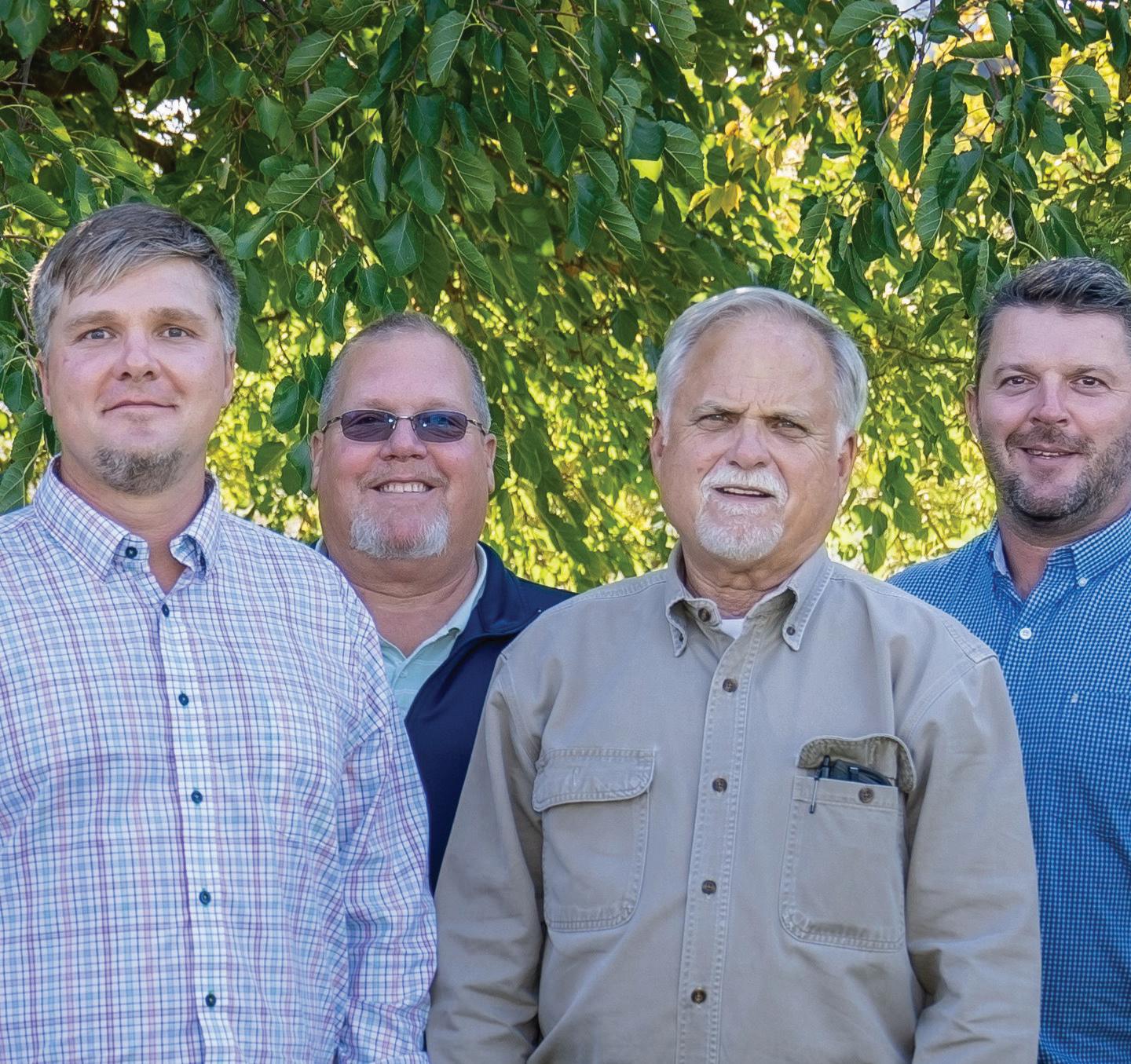
into their employees, which both Maurers credit for the company’s success. Paul’s outfit was one of the first in the entire region to employ workers year-round instead of laying them off in the winter. It made for lean times, but in the long run it paid off by allowing the company to retain dedicated and knowledgeable employees.
“We always lost money in the wintertime, because even if we could work we couldn’t charge the customer for heat or plowing or so on, and the guys couldn’t work very fast,” Paul said. “But we decided early on that we were always going to take care of our employees, and it was a good investment.”
14 APRIL 2024 TRAVERSE CITY BUSINESS NEWS THE CONSTRUCTION REPORT
Ben Maurer, Dave Roelofs (job supt.) and Paul and Brian Maurer
Year founded: 1923
Current generation: Third
More than 100 years in, the company founded by W.G. “Bill” Comstock and run by a group of his grandchildren is the clear poster child for what multi-generational success looks like in the Grand Traverse region.
Northern Michigan communities are loaded with schools, churches, hospitals and businesses that Comstock built over the decades. The reach has been widespread and profound, with countless thousands of people interacting with Comstock buildings every single day.
“You look around, and almost everywhere you look, you can see something we did,” said Jody (Comstock) Bergman, who along with brothers Mike, Casey, Joe and Tom Comstock own and run the company. “It’s quite a legacy. We built the company up in the area and have had a hand in a lot of stuff.”
A century means ups and downs, and Comstock has had to “roll with the punches” on more than one occasion, Bergman said. But having the company banner carried by family over the years has driven them through every obstacle.
“Honestly I think a lot of it is just work ethic, and maybe when your name’s on the door, you work extra hard,” Bergman said. “You really put your heart into it.”
Bergman’s dad, Joe Comstock, still came into the company pretty much every day until his death in 2016 at age 90. He was a tremendous influence on the children who carry on his legacy.
“My dad was a member of the AGC, which is Associated General Contractors, and part of their motto is skill, integrity, and responsibility. And that was my dad in a nutshell,” she said. “He was always fair and put the customer first, and that’s a big thing to stay in business for any length of time – if you’re not fair, you’re not going to stay around.”
Even with five Comstocks at work there, Bergman said the fourth generation is

> COMSTOCK CONSTRUCTION
not actively involved. Comstock looks forward to many years to come, though like pretty much everyone else in the industry, labor is a significant challenge.
“At one time we employed over 100, and now we’re down now more like 20. But you can’t get people, and especially any skilled people,” Bergman said. “We sort of got hit with a double whammy. We had that recessionary period in like 2010, when a lot of people went into other industries. And then we get hit with the pandemic, and anyone who could retire is retiring.”

TRAVERSE CITY BUSINESS NEWS APRIL 2024 15 THE CONSTRUCTION REPORT
Bergman










Year founded: 1974
Current generation: Second
As with Comstock, you needn’t look far to see a Hallmark project. The firm has served as general contractor for the Cherry Capital Airport terminal, Walmart, Traverse Area District Library (main Woodmere building), Action Water Sports, Rove Estate & Winery and hundreds of additional projects since Dennis Fedorinchik bought the three-year-old outfit in 1977.
“As I drive around town today, I realize I’ve forgotten some of the projects we’ve done,” Dennis said. “With others, we’ve been back two or three times to put additions on them or renovate. That’s what happens in a 45-year career.”
The business is now co-owned by Dennis’ son Jeff Fedorinchik and longtime former employees Charlie Sole and Jim Lewis. As he inched closer to retirement, Dennis knew he had the right potential ownership team in place when he was able to leave the trio to run the company while he got back out in the field after too many years behind a desk.
“I said to myself, ‘I’m going to run a project – boots on, hardhat on, out in the field full-time.’ So I did, and these guys just did an outstanding job,” Dennis said. “I just love being out in the field, and while I was out there these guys ran everything back in the shop. I didn’t have to worry about anything.”
Hallmark was doing almost entirely residential projects when Dennis and a partner (his cousin) acquired it, and continued in that realm a few years before expanding into commercial and never looking back. Dennis eventually bought out his cousin to become sole owner.


In those early days, employees got nice red Hallmark trucks to take home under one condition – they were always kept squeaky clean. They quickly became some of the company’s best advertising, and remain so to this day. Ultimately, both Dennis and Jeff said the business has done well because of the people inside those shiny red trucks.
“It starts with treating your employees right,” Jeff said. “We have some long tenured employees, and the fact that they’ve been here as long as they have says something.”
Among the things Jeff has learned from Dennis is the importance of always being honest and up front with customers and clearly communicating with them throughout the entire process.
“They might not like the answer. They might not like the timeline. They might go down the street (to a competitor) because the timeline wasn’t what they wanted to hear,” Jeff said. “But there’s nothing worse than misleading someone. We’re with a customer for several years. And if you can’t maintain an open dialogue and honest relationship in terms of the project, it’s going to fail.”
Jeff said there’s a lot of pressure that comes with taking over a successful company –“the last thing I want is this thing to fail when I’m behind the wheel,” – but that he’s excited to continue building a legacy.
“We’ve been given this opportunity to keep this thing on the road and take it further than (Dennis) took it,” Jeff said. “Not that bigger is better, and not that we want to forget all those principles and how we got here, but let’s challenge ourselves to do even more so that whatever the next generation is gets this thing in better shape than we got it and leaves it better off than we had it.”
Jeff enjoys working with his brother and Dennis’ other son, Ryan Fedorinchik, who also works at the company as a project manager.
16 APRIL 2024 TRAVERSE CITY BUSINESS NEWS THE CONSTRUCTION REPORT
Year Current began provide wetlands call welds the pipelines As it have money,” have people do and the money, bly And sponsorship build increased the actual community. great tradition. they’re
> HALLMARK CONSTRUCTION
Dennis and Jeff Fedorinchik
{ Lifetime friendships made here. } Contact our Membership Director Susan McElduff for information. susanl@tcgcc.com 231.947.0985 TCGCC.COM Stuffiness not included! Enjoy everything the CLUB has to offer in a beautiful, private escape. Golf and Social Memberships Looking for a great way to connect with other families and professionals? We offer individual and family memberships. Ask about our amenities and additional benefits. Reconnect with old friends. And meet some new ones too!
GOLF . SWIM . GATHER . DINE

Year founded: 1972
Current generation: Third
Kalkaska-based R.L. Morris started when its namesake Robert Leory Morris began a business that focused on high-pressure gas and oil lines. Though they now provide a range of services, they specialize in remediation of gas and oil lines in wetlands and other ecologically sensitive areas.
“These bigger gas companies like DTE and Consumers Energy run what they call a smart tool through the line, and it tells them where there are anomalies like welds or internal or external corrosion,” said co-president Tyler Morris, who runs the company with his wife, Rebecca Morris. “They then hire us to go in, dig these pipelines up and repair them.”
Tyler is the third generation, taking over for his father, Robert “Greg” Morris. As with the other companies included in this story, both father and son both credit excellent, dependable employees for getting them this far. They have several that have been with the company for decades.
“Both my grandpa and my dad would always say that your employees make your money,” Tyler said. “That’s the key to the construction world – the guys that you have on the ground, your workers and your foremen.”
Greg agrees. He learned early on that there’s no better asset in business than people you can depend on.
“The big thing is hiring good people and treating them right,” he said. “If you do that, you’re already better than three quarters of the way there.”
But leadership itself has also tried to lead by example. Tyler said his grandfather and father before him were honest, active and involved – traits that have helped the company grow.
“My dad, if he said he was going to do something a certain way, even if he lost money, he would make sure that he did it right,” Tyler said. “I think that’s probably the main reason we’ve kept going this long: integrity and doing the work right. And we’re always involved. We always have a presence with everything.”
The company is a fixture in the Kalkaska community, spending significant sponsorship dollars at Kalkaska schools and civic functions and also working to build plenty of athletic and civic infrastructure.
“I’m very, very proud of that,” Greg said. “Naturally, our level of giving has increased over the years because we have more money, but we’ve always given to the sports and everything wherever we could.”
Tyler and Becky are honored to carry on the family business – not just the actual business itself, which is thriving, but the tradition of supporting their community.
“It feels good. It’s not just pride, it’s community,” Tyler said. “It makes us feel great that we’re (in a position) to give back to the town that we live in.”
Greg, for his part, is “very proud” to see Tyler and Becky carry on the family tradition.
“I definitely didn’t want to sell it off,” he said. “I’m glad to see it keep going –they’re doing a good job with it and and have hired some good people.”

Business
April
April
April



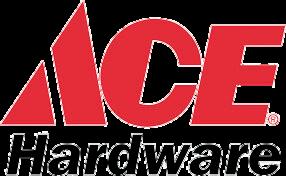





TRAVERSE CITY BUSINESS NEWS APRIL 2024 17 WHAT2WATCH REPORT Traverse the additions former knew trio to desk. field love the
commer-
tenured throughout
he’s further even got who CONSTRUCTION THE CONSTRUCTION REPORT
(his
owner. one comsaid
–
> R.L. MORRIS & SONS CONSTRUCTION
Celebrate Earth Day 2024 by keeping area landfills free of e-waste. Recycling proceeds will benefit Goodwill Northern Michigan.
Greg, Tyler and Becky Morris
Pickup Service (by appointment)
- schedule a pickup by April 17
Drop-Offs
23
Community
22 - Ace Hardware - Traverse City (W Front St)
24 - Honor Bank - Honor branch Keep it green! Keep it clean! Let's recycle your old machines! Visit safetynet-inc.com/ewaste for details or to request a pickup. MORE impact on people, LESS impact on the environment. env-arch.com 231.946.1234 10241 E. Cherry Bend Rd. Traverse City > We design the circumstances, objects and conditions that surround you. © Environment Achitects < live. > < work. > < play. > Learn more & purchase advance tickets at northwestmifoodcoalition.org ...brushing away hunger
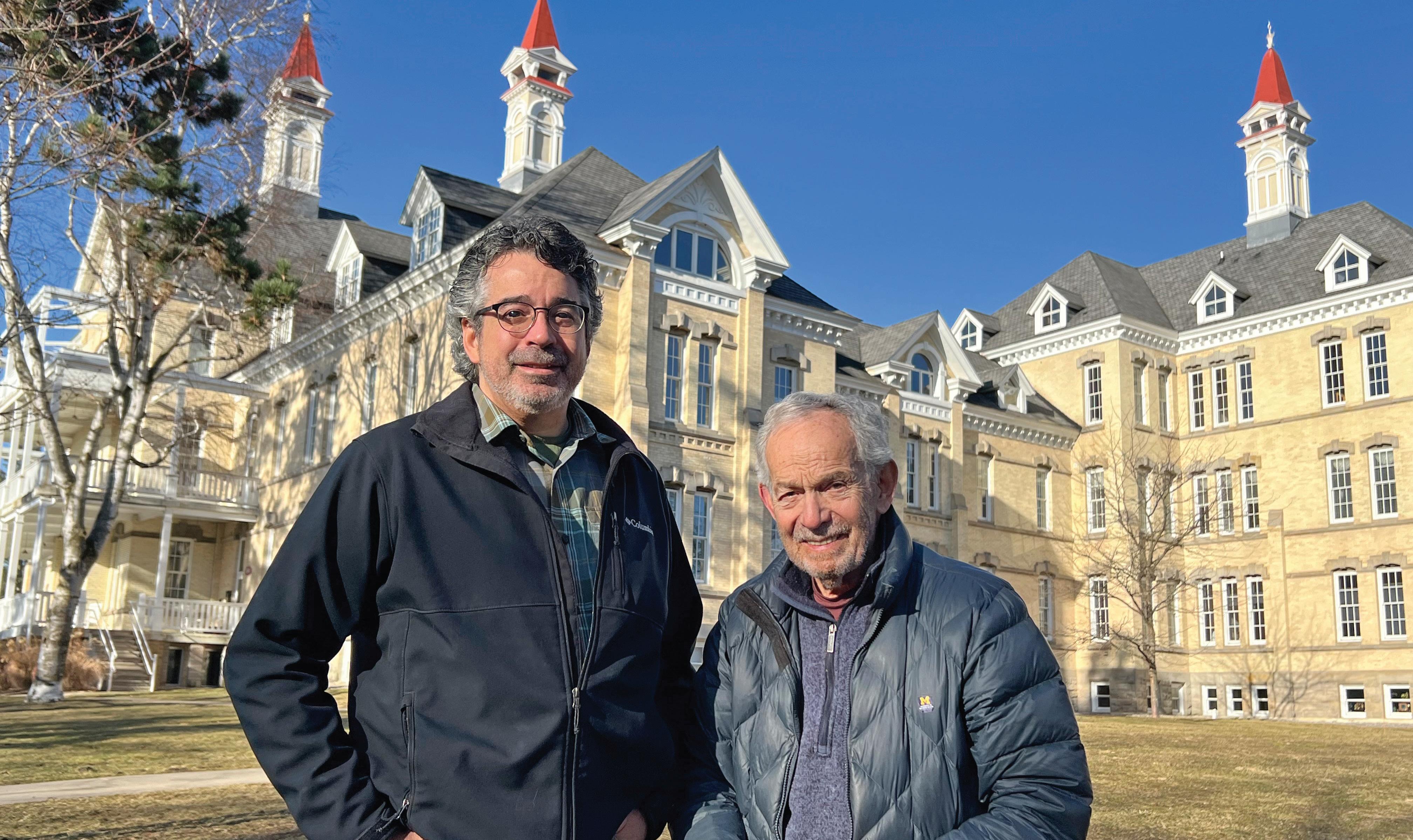
‘ONE BITE AT A TIME:’ Commons redevelopment continues
By Art Bukowski
Legend has it that the gorgeous central spire at the former state hospital was removed after the government staffers who worked there concocted a plan to convince their superiors that the structure was a fire hazard.
Their plan, so it’s been said, was to backdoor their way into snazzy, updated office space. About 60 years later, the new central office they were successful in getting is without question the biggest visual drag on Building 50, which serves as the strikingly beautiful centerpiece of the much-celebrated Village at Grand Traverse Commons redevelopment.
But what if what was torn down could be rebuilt, as grand as it was before the wrecking ball swung? It’s one of many potential happenings at the village, which has blossomed into one of Traverse City’s food and cultural hotspots.
The TCBN sat down with Raymond Minervini of the Minervini Group, which
owns, developed and continues to develop this special place, to discuss how they got to this point, what they’re proud of and what’s on the horizon.
One bite at a time
What once was the Traverse City State Hospital closed in 1989 after more than a century of operations, and the community struggled to find a future for the space. As discussions carried on, the late 19th century buildings continued to fall into disrepair and were in danger of being demolished outright.
The Minervini Group took possession in May 2002 after presenting a plan to rehabilitate the buildings for residential and commercial uses. Since that time, nearly $125 million has been poured into the main building and those that surround it, creating a campus that’s now buzzing around the clock and calendar.
And while that’s a massive investment,
it’s taken two decades to get there.
“We set out to make a mixed-use, walkable neighborhood, and the idea always was do this in phases,” Minervini said. “This was Traverse City’s white elephant, and how do you eat an elephant? One bite at a time.”
They worked south to north across Building 50, completely renovating that structure, while also working on scores of associated buildings. As of now, about 70% of the total square footage on the campus has been renovated, Minervini says.
None of it would have been possible without early residential and commercial investors who believed in the vision. Minervini is tremendously grateful to tenants that have been with them through the years.
“We took a leap of faith together with people who bought into this. If those residential buyers or business tenants hadn’t stepped forward, none of this would have come to fruition,” he said.
Many of those very early investors are
still there, including Yoga for Health Education (2002), Cuppa Joe (2003), Trattoria Stella (2004), Left Foot Charley and Higher Grounds (both 2007). In all, there are more than 100 businesses on the campus and almost 300 residential tenants.
“We are humbled to have so many long-standing tenants, who each in their own way help define the character of The Village at Grand Traverse Commons and make it a special neighborhood,” Minervini said.
What’s next?
The most ambitious project – rebuilding the central spire – is likely the furthest off due to a variety of constraints and more pressing needs. But provisional steps have been taken, including modifying the site’s master plan to allow just such a project to occur.
City charter rules mean that building it taller than 60 feet would likely require a
18 APRIL 2024 TRAVERSE CITY BUSINESS NEWS THE CONSTRUCTION REPORT

vote of the people, though Minervini said the design could be kept under 60 feet if necessary to avoid such a necessity.
A new spire could be the location for a luxury hotel, Minervini said. The development group has long tossed about the idea of putting hotel rooms in the large, unrenovated buildings that exist between Red and Silver drives to the immediate southwest of Building 50, but a new spire hotel might be more ideal.
“That way we can have a beautiful, luxury hotel in which the size of those rooms could be designed into that new space rather than having to work with the historic space and the huge variability that
would be presented,” he said. “So we’re moving that idea forward, but there’s a lot of work to do on that front.”
What that means is those large undeveloped buildings could be turned into housing of another sort, Minervini said, likely market rate with the possibility of some affordable mixed in. And while those buildings sit in a state of disrepair, they’re not in any danger of passing a point of no return.
“Obviously, when a building is not buttoned up, it’s going to suffer some deterioration over time, but none of those buildings are in any worse shape than Building 50 was when we started,” he
Welcome to a different kind of wealth
management
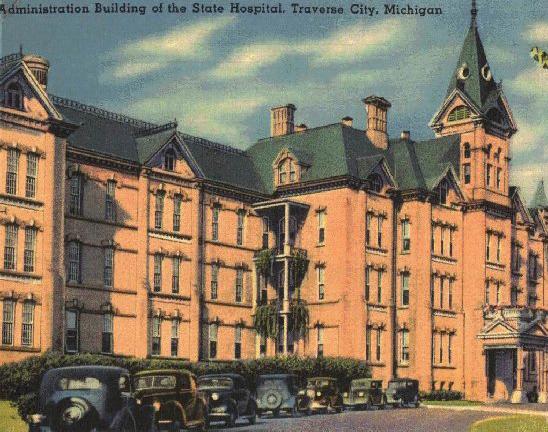
“We set out to make a mixed-use, walkable neighborhood, and the idea always was do this in phases. This was Traverse City’s white elephant, and how do you eat an elephant? One bite at a time.”
– Raymond Minervini, owner, Minervini Group
said. “They were occupied later into the (1980s)…and there’s nothing in there that can’t be repaired.”
Then there’s the old power plant and adjacent parking lot. Conceptual plans call for redevelopment of the plant with “dramatic spaces for mixed use,” along with an adjacent parking garage. Parking has always been an issue at the village, Minervini said, and a deck could help alleviate the issue.
“There’s the parking structure idea, and the potential for some commercial uses planted on top of that in what they call a pedestal development,” Minervini said. “So we’re in discussion about new build
We’re built differently - to us helping you protect and grow your wealth is about more than just your investment portfolio. Unlike many firms, we have expertise across financial planning, investing strategy, tax and estate planning, trust services, insurance solutions, and more. Our specialists across each of these areas communicate with each other about you, and with you, so you can enjoy everything you’ve achieved. We’re here to help you connect all the dots of your financial life.
on top of the parking and then integrating the power plant building’s big box into that use.”
In terms of projects actually underway now, the development team is working on Cottage 34, the last in the row of undeveloped buildings that stretches out from Building 50. It will be converted into 27 market-rate condos with the potential for affordable or attainable units.
“It’s a four-story historic structure built in 1904, and it was a men’s dormitory. It has some beautiful spaces and high ceilings, great windows,” Minvervini said. “We’re starting from the south end of the campus and filling towards the middle.”
TRAVERSE CITY BUSINESS NEWS APRIL 2024 19
THE CONSTRUCTION REPORT
This postcard shows the original central spire of Building 50 before it was demolished in the 1960s.
© 2023 Mercer Global Advisors Inc. All rights reserved. Mercer Global Advisors Inc. is registered with the Securities and Exchange Commission and delivers all investment-related services. Mercer Advisors Inc. is the parent company of Mercer Global Advisors Inc. and is not involved with investment services. Mercer Advisors is not a law firm and does not provide legal advice to clients. All estate planning documentation preparation and other legal advice is provided through its Advanced Services Law Group, Inc. Tax preparation and tax filing are a separate fee from Mercer Advisors’ investment management and planning services. Trustee services are offered through select third parties with which a client would engage directly. Mercer Global Advisors has a related insurance agency. Mercer Advisors Insurance Services, LLC (MAIS) is a wholly owned subsidiary of Mercer Advisors Inc. Employees of Mercer Global Advisors serve as officers of MAIS. MAIS provides individual life, disability, long term care coverage, and property and casualty coverage through various insurance companies. 20231016 310 West Front Street, Suite 308, Traverse City, Michigan 49684 l 231.929.4500 l merceradvisors.com Matthew Bohrer Wealth Advisor, Director Renée Egelski, CFP® Wealth Advisor Kevin Russell, CPA, CFP®, AAMS®, CRPC® Wealth Advisor Merideth Gillis Client Service Specialist Becky Leslie Client Service Specialist Mercer Advisors Traverse City Team
FIGHTING FOR FARMLAND
Conservation easements boost ag operations across region
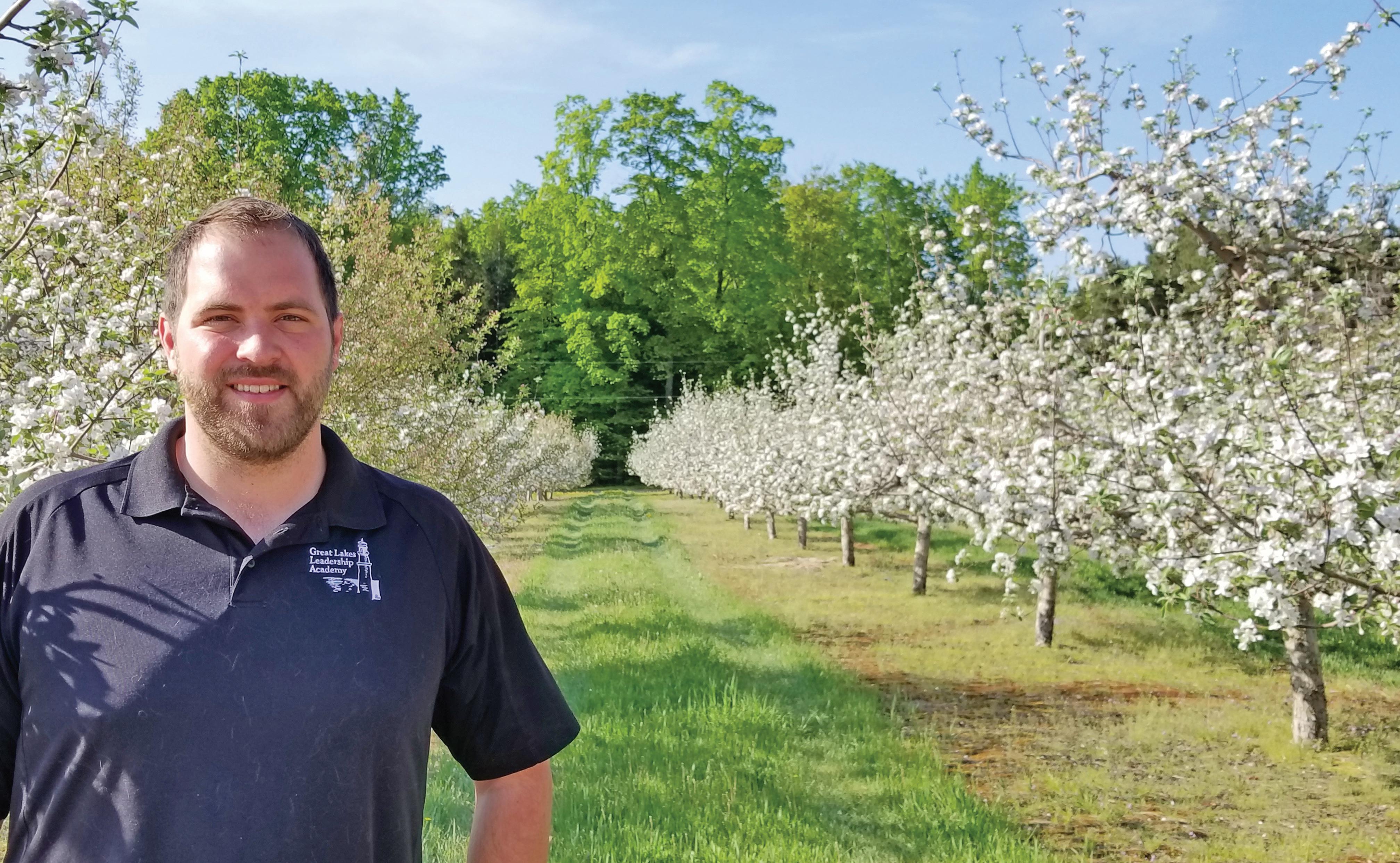 By Art Bukowski
By Art Bukowski
One of the region’s most significant and enduring industries is at a tipping point, but a legal tool with a powerful set of benefits could help turn the tide and secure a brighter future.
Agriculture is at the very heart of the Cherry Capital. It plays a massive role in the region’s economy, history and culture,
are eating away at margins that are already razor thin. And land prices are through the roof, leading to intense pressure to sell farmland – which often sits high atop ridges and offers premium views – for residential or commercial development.
“If farms are struggling, sometimes the best way out is to sell acreage. And a lot of that is watershed views. If you look at the American Farmland Trust’s areas of con-
“We’ve done a great job protecting a lot of farmland already, but...there’s probably one more big push that needs to happen. It needs to be aggressive and with the understanding that if this farmland isn’t protected as we go through these generational transitions, we’ll probably lose our shot at preserving it.”
–Isaiah Wunsch, Old Mission farmer
and the produce grown here is a big part of why Michigan ranks second in the nation (behind only California) in agricultural diversity.
But the industry is in a pressure cooker. Farmers are aging out, and the next generation is either uninterested or facing major barriers to entry. Foreign imports, inflation, labor costs and more
cern, northwest Michigan is a huge concern in terms of loss of farmland,” said Nikki Rothwell, coordinator of the Northwest Michigan Horticultural Research Center.
Saving farmland – and keeping farmers in farming – is therefore a major focus of two key nonprofits and a pair of township governments in the region.
“Asphalt is the last crop,” said Glen
Chown, executive director of the Grand Traverse Regional Land Conservancy (GTRLC). “We have incredible urgency to permanently protect farmland, because once it’s gone, it’s gone.”
But how, exactly, is this farmland protected? Though there are few tools in the toolbox, by far the most common is something known as a conservation easement.
A conservation easement is a voluntary legal agreement between a landowner and another party that permanently restricts the way land is used, most often by prohibiting residential or commercial development. These agreements have a cash value (because development rights have value) and are usually purchased. Once in place, the land is protected in perpetuity, regardless of owner.
GTRLC – which serves Antrim, Benzie, Grand Traverse, Kalkaska and Manistee counties – and the one-county Leelanau Conservancy have combined to protect more than 15,000 acres of high-quality farmland since their inceptions in 1991 and 1988, respectively.
Another layer of protection lies with voter-approved purchase of development rights (PDR) programs in Peninsula and Acme townships, which take the use of conservation easements to a community-wide level. In these programs, a millage
What is a conservation easement?
A conservation easement is a voluntary legal agreement between a landowner and another party that permanently restricts the way land is used, most often by prohibiting residential or commercial development. These agreements have a cash value (because development rights have value) and are usually purchased. Once in place, the land is protected in perpetuity, regardless of owner.
What
is purchase of development rights (PDR)?
PDR programs, which exist in Acme and Peninsula townships, take the use of conservation easements to a community-wide level.
In these programs, a millage is assessed to raise money that allows the township to purchase conservation easements that extinguish farmers’ development rights. Both programs have been renewed multiple times by township voters.
20 APRIL 2024 TRAVERSE CITY BUSINESS NEWS
AGRICULTURE
& LANDSCAPES
Isaiah Wunsch
 Gene and Kathy Garthe
Gene and Kathy Garthe
“For us, it was about that debt load and reinvesting in equipment. Conserving the land isn’t going to give you enough of a financial benefit that suddenly you can buy the newest and best equipment, but what it does is it helps you stabilize what can be a very, very tough business to stay in.”
–Kathy Garthe, Northport farmer
is assessed to raise money that allows the township to purchase conservation easements that extinguish farmers’ development rights. GTRLC helps run both programs.
Good for business
Many local farmers have deep roots in the region, with third, fourth, fifth and even sixth-generation farmers not uncommon. These strong ties to the land often come with an equally strong desire to see that land forever protected from development, leading them down the path of conservation.
But conservation benefits aside, these deals can also be very wise business decisions. Money gained from the sale of an easement can be reinvested into farming operations, for instance, or used to purchase new land. Proceeds can also be used to erase or reduce debt. In addition, some farmers experience considerable tax benefits when selling or donating an easement on their property.
Arguably the biggest benefit is it allows farmers to get some cash out of their land without having to sell all or part of their farm.
“The beauty of a conservation easement with the conservancy or through a PDR program is that it gives farmers another option,” Chown said. “Before the advent of these programs, it was a zero-sum situation. Either you soldiered on and kept farming, or you just sold the farm.”
Gene and Kathy Garthe have land in Northport that was settled by Gene’s great-grandfather and Norwegian immigrant Steiner Garthe in the late 19th century. The acreage produces high-quality apples, cherries and pears, and they’re proud to farm on land that has been in the family for generations.
The Garthes recently worked with the Leelanau Conservancy to protect about 360 acres with conservation easements. They put the proceeds to work in two ways: Reducing the debt load tied to their purchase of other family farms and making upgrades to shak-

ers and other farm implements.
“For us, it was about that debt load and reinvesting in equipment,” Kathy said. “Conserving the land isn’t going to give you enough of a financial benefit that suddenly you can buy the newest and best equipment, but what it does is it helps you stabilize what can be a very, very tough business to stay in.”
Along with his brother Don, Ed Kiessel owns Kiessel Orchards near Suttons Bay. Recently they sold an easement on 108 acres or their holdings, which, like the Garthes, helped erase some debt.
“No one’s making a ton of money on selling fruit. A lot of the value lies in the land, and so being able to take some of that value out and still own the land and farm it really helped from an operational perspective,” he said. “If you’re breaking even or losing a little, this takes the pressure off a little bit by allowing you to get some capital.”
Over at the popular Mawby vineyards and winery, local bubbly pioneer Larry Mawby benefited from another business-related benefit of conservation easements. He says he avoided long-term capital gains tax by donating an easement when he sold half his business to the Laing family in 2009.
“Contributions like that are fundamentally charitable in nature, but they certainly can have a positive effect on the bottom line,” he said.
Purchase of development rights
Peninsula Township’s PDR program was first approved by voters in 1994, with Acme Township voters following suit in 2004. Both programs have since been renewed by voters multiple times, with thousands of acres protected.
In Acme, Nels Veliquette will speak at length about the importance of PDR programs and of conservation easements in general. Veliquette and his family –along with the Gregory family in Leelanau County – run Shoreline Fruit. Shoreline is the largest tart cherry operation the
entire country, with about 6,000 acres owned and managed.
Veliquette submitted one of his farms in Acme’s first wave of PDR in an effort to lead by example and help dispel myths. Despite the program already being active over on Old Mission, some farmers were still convinced selling their development rights meant the township would tell them how or what to farm, or that the public would have access to their land – both false.
“You need a group at the beginning who says, ‘We believe in this,’” Veliquette said. “Initially there was a lot of skepticism and some misconceptions.”
Veliquette now has about 320 acres in the program after multiple rounds. Each sale of development rights means more capital for the farm.
“In our case, we have typically just taken that money and poured it right back into our business, whether that’s additional infrastructure at the farm level or additional infrastructure at our value-added and our processing level,” he said. “It goes right back into our operations.”
On Old Mission, Isaiah Wunsch is both Peninsula Township supervisor and the latest in several generations on both his mom’s and dad’s side to farm there. Like Veliquette, his dad was a leader in Peninsula Township’s first round of PDR. Selling an easement then meant a new refrigerated warehouse and packing facility for cherries and other produce.
Aside from about 185 acres now enrolled in the township PDR program, Wunsch and his family have also worked with GTRLC directly to protect another 120 acres. And in addition to reinvesting in farming operations with easement proceeds, Wunsch also expanded operations by purchasing two farms that already had easements placed on them, thus making them more affordable (once development rights are extinguished, the market value of a property is reduced.)
“I basically had to struggle along to break even for a few years as I was reinvesting in those farms, but I didn’t have
to operate at a major loss to get the farms back up into production because I bought them at a lower price,” he said.
Beyond the reduced price, Wunsch and other farmers also say they find parcels with conservation easements attractive because they’re generally in better shape.
“As I continue to look at buying farms to add into the Wunsch Farms portfolio, those farmers who have sold conservation easements tend to be better stewards of the land,” he said. “They’re interested in figuring out how to make a viable agricultural business work on that real estate and they’re not looking at their farmland as just a passive real estate investment that they’re going to sell off for development at some point.”
The next generation
Because land is priced lower with its development rights extinguished, land with conservation easements is generally more affordable. This is important to younger farmers looking to get into the business for themselves.
“There’s interest from young people in getting into agriculture, but the price of land is so prohibitive,” GTRLC’s Chown said. “If those development rights are intact, the price is usually out of reach for most up-and-coming farmers.”
Therefore, conservation easements are extremely important when it comes to ensuring the very future of viable agricultural operations in our region.
“When it comes time to retire and you’ve worked in the corporate world, what do you have? You have your 401k, your pension and this other stuff that’s been built up over time. If you get ready to retire as a farmer, what do you have? You have your land,” Veliquette said. “The PDR and conservation easement programs allow a way for farmers to retire from the business of farming without retiring that land from active production, and that’s a really important point here.”
On Old Mission a few years back, Lew and Ginny Coulter pondered what to do
TRAVERSE CITY BUSINESS NEWS APRIL 2024 21 AGRICULTURE & LANDSCAPES
Lew and Ginny Coulter, Adele Wunsch, Emma Smith and Raul Gome

with their beautiful orchard near the peninsula’s highest point as they neared retirement. Both ardent conservationists at heart – Lew was executive director of the Grand Traverse Conservation District and on GTRLC’s board – they were also pragmatic.
“We didn’t have our mind set on preserving (our land), even when I was on the Conservancy board. It was just the economic reality,” Lew said. “It was our retirement, and for quite a while there we figured we’d sell it for top dollar.”
But they found a way to have their cake and eat it too. The Coulters sold conservation easements on the farm to GTRLC and then sold the land itself to younger farmers. The deal allowed the Coulters to get money for the land while simultaneously ensuring that it’s preserved – and more affordable for
the next generation of farmers.
That next generation is Isaiah’s sister Adele Wunch, who bought a 21-acre portion of the farm, and Raul Gomez and Emma Smith, who bought a 16-acre chunk. Gomez, a son of migrant workers and who grew up working on Wunsch operations, says he is excited to be a landowner of his own.
“I think if you farm long enough, and manage farmland long enough, your end goal is to own your own farm,” Gomez said. “So it’s definitely exciting to be able to do that and to say that we have a farm.”
Conservation easements made the whole deal possible.
“It would absolutely have not been affordable for us without the easement,” said Smith, Gomez’ partner. “Neither one
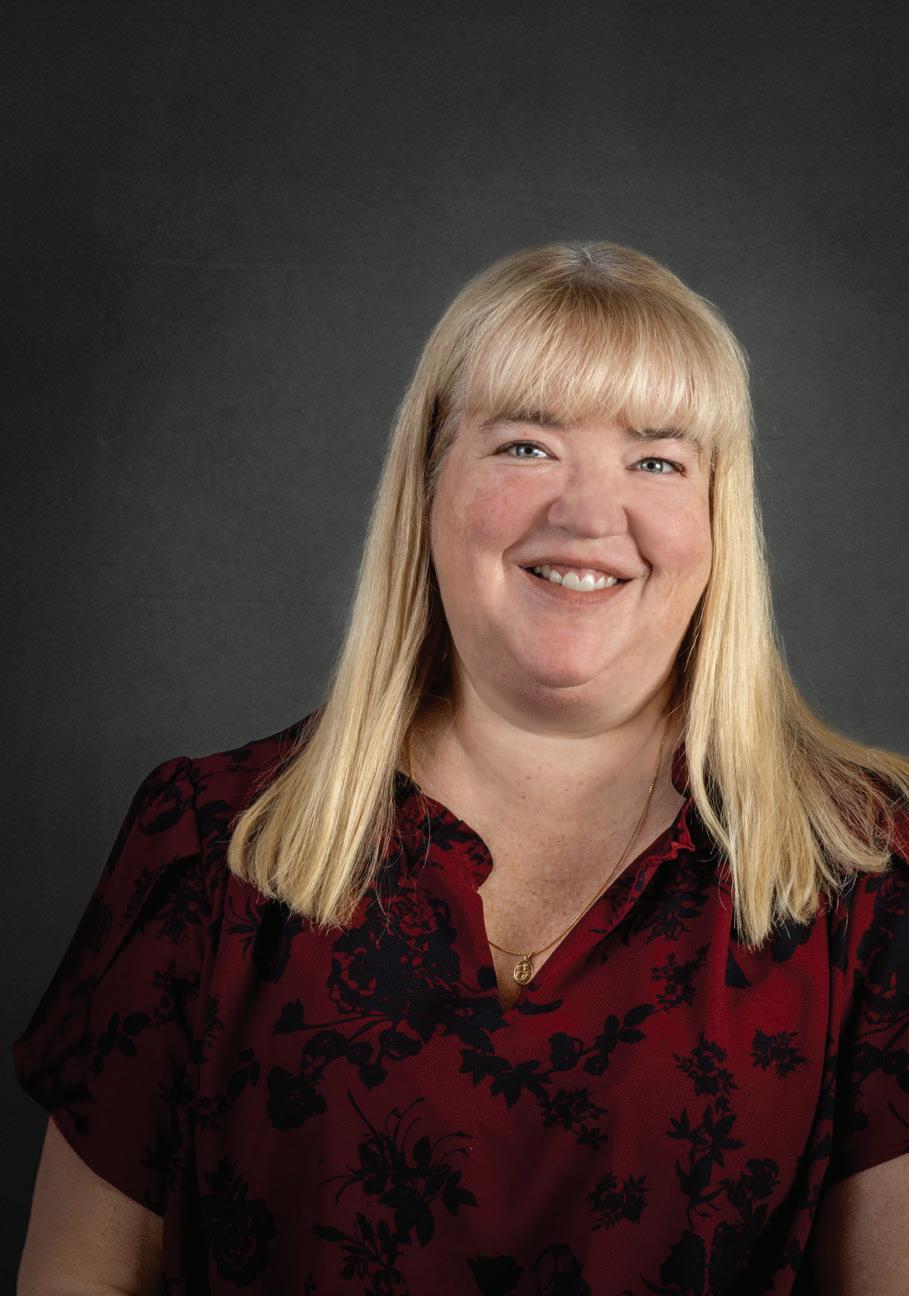

of us have inherited wealth, so it would have been impossible for us at this stage in our lives.”
In Leelanau County, Steve Bardenhagen owns the well-known and beloved Bardenhagen Berries. His produce is popular not only with those who visit the farm, but also at the Sara Hardy Downtown Farmers Market in Traverse City, where people line up for his fresh strawberries.
The farm has been in his family since 1872. In 2008, his parents Gary and Christi Bardenhagen worked with the Leelanau Conservancy to sell an easement on the 184-acre farm and then sold it to Steve. It’s unlikely that Steve would have been able to buy the farm without the easement, he said.
“It just comes down to money. When you sell the development rights, the land
becomes cheaper, and it’s easier to cash flow it in order to farm,” Steve said. “Looking at the prices of some of these farms these days, it’s just amazing. You calculate out a mortgage and try to think how you’re possibly going to make ends meet.”
Though thousands of acres have been protected in the region, advocates say it’s important to push ahead with urgency.
“We need to be careful not to rest on our laurels. We’ve done a great job protecting a lot of farmland already, but in Peninsula Township, there’s probably one more big push that needs to happen,” Wunsch said. “It needs to be aggressive and with the understanding that if this farmland isn’t protected as we go through these generational transitions, we’ll probably lose our shot at preserving it.”
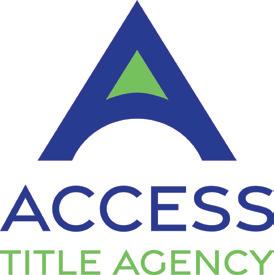
22 APRIL 2024 TRAVERSE CITY BUSINESS NEWS AGRICULTURE & LANDSCAPES
Veliquette
Clients trust Erica. They know that she’s always there for them, offering expertise and guidance when handling their transactions. If you’re buying or selling a home or property, ask for Access. We’re the local title experts.
Gary and Steve Bardenhagen
Enjoys her dogs. Extremely loyal to her clients. Suttons Bay, Traverse City • accesstitleagency.com Access Title Agency_Michelle Erica Melissa Nicole_Ad_10.25 x 4.291_v1.indd 3 10/31/23 1:17 PM
Erica Mackey | Escrow Officer








TRAVERSE CITY BUSINESS NEWS APRIL 2024 23 Shop. Dine. Play. downtowntc.com
Libby Hogan Lilies Of The Alley
Amanda Walton Toy Harbor
Kim & Mark Norton Water’s Edge Sweet Tooth
Jeff Guntzviller
Miner’s North

BETTING THE FARM
Organic farming on the upswing
By Ross Boissoneau
For Cheryl and Alan Kobernik, owners of North Star Organics cherry farm of Frankfort, the decision to go organic was met with some presumptions from those who didn’t know them.
“Twenty-five years ago everyone thought Alan had a ponytail and I was barefoot,” said Cheryl.
Indeed, organic foods had been seen as a niche favored by hippies and members of the counterculture since the 60s. But today organic foods are mainstream. Virtually every grocery store of size has an organic section for fruits and vegetables, while other organic and organically grown products jostle for shelf space alongside conventional, non-organic foods.
Organic-certified farmland in the United States has trended upward since 2000, according to the U.S. Department of Agriculture, increasing from 1.8 million acres in 2000 to 4.9 million in 2021. Organic sales in 2021 accounted for about 3% of U.S. farm receipts, even though organic acreage was still less than 1% of U.S. farmland. More regions are growing organic products, a wider range of retailers are selling organic food, and more research
and development funds are going toward development of organic agriculture.
Nikki Rothwell, MSU Extension Specialist and Northwest Michigan Horticulture Research Center Coordinator, says the challenges are such that only a few embark on the mission.
“We have very few organic fruit farmers in our region. I think there are a lot more organic options in vegetable farming in our area, particularly CSA models,” said Rothwell.
as everything from a better market than conventional to something they embrace as benefiting themselves and the world around them.
“Organic is great for the environment,” said Angela Macke. The owner of Light of Day Tea Farm has embraced organic farming since starting her business in 2005, and goes above and beyond by incorporating biodynamic farming methods, which view the farm and its soil as a single living organism. Biodynamic farms aspire
“We believe it’s the right thing to do for the environment, for our customers and for our community.”
– John Dindia, co-owner, Lakeview Hill Farm
She points to weeds and disease as the reason farmers struggle with organic farming.
“It is just too hard to control diseases and weeds here,” she said. “I think we could do it for insects but fungal pathogens are tough. Weeds are also super-hard to control without herbicide.”
The challenges haven’t stopped numerous farmers, who say they see organic
to fertilize their soil through composting, cover cropping and crop rotation.
John Dindia and his partner Bailey Samp started Lakeview Hill Farm in 2017. It has been certified organic since its inception. “We believe it’s the right thing to do, for the environment, for our customers and for our community,” said Dindia. Farming demands diverse skills, from
a DIY attitude to aptitude for machinery to keeping up with changes in laws, certifications and people’s tastes. Organic farming increases that workload with additional paperwork and oversight. For some like Dindia, part of the appeal is the fact that no two days are alike.
“I enjoy it because it’s interdisciplinary,” said Dindia. “It’s always changing, it’s physically demanding, you’re outside. It’s satisfying to know I’m supporting a healthy ecosystem.”
The myriad regulations surrounding certified organic farming mean not only do the farmers need to keep track of their paperwork, they also need to think ahead.
“You have to have several items in your tool belt approved prior to needing them,” said Bob Weaver, who owns Omena Organics with his wife Jane.
For example, a sudden infestation of insects or disease needs to be addressed immediately with the approved methods.
Reid Johnston of Second Spring Farm offers another illustration of how organic farming takes more effort and costs more, as Rothwell noted.
“A good example is we don’t use herbicides,” he said. “Many days, our crew of 15 to 20 people is hand-weeding at $20 an hour.”
24 APRIL 2024 TRAVERSE CITY BUSINESS NEWS
& LANDSCAPES
AGRICULTURE
John Dindia and Bailey Samp at Lakeview Hill Farm
Sometimes jumping into a niche is actually a safer alternative than the status quo. Weaver said he and his wife went organic after 30-plus years of traditional farming.
“We couldn’t seem to make it with conventional farming,” he said.
Today the Omena Organics brand includes a host of dried, canned and frozen products: cherries, blueberries, cranberries, cannellini beans, kidney beans, black beans and black-eyed peas, applesauce, pumpkin and more.
There are other pressures as well. In the mid-90s, Alan Kobernik says they faced a choice: “Either grow cherries or houses. We’re still here, but there are houses all around us,” he said.
While cherry prices have flattened over the years they have owned the farm, they have been able to maintain the property and not sell it off for development.
That’s been helped by their outside work; Cheryl is a social worker and Alan was in the construction business, though he has since retired.
Another boon to their business has been publicizing their U-Pick operation. They’ve seen as many as 4,000 people descend on their farm for the week and a half they offer U-Pick. For some, it’s a family outing. Others have a specific end product in mind.
“Folks are curious about what we do,” said Cheryl about the tourists that come from nearby as well as from Grand Rapids,
Detroit or beyond. “One carload of big guys from Chicago told us, ‘We’re making wine.’ We have so many U-Pick stories.”
Conventional grocery retailers have overtaken natural food stores as the most popular outlet for organic food, with 55.6% of such sales in 2021, according to the USDA. Meijer, Tom’s Food Markets, Family Fare and Oleson’s Food Stores all stock organic goods. Still, local natural food stores such as Oryana and Edson Farms remain busy as customers seek out new foods and flavors from trusted sources.
“Oryana is our main customer,” said Johnston of Second Spring Farm. “There’s a handful of restaurants, and the past few years Whole Foods in the mid-Atlantic. We’ve grown to serve that opportunity.”
Like Macke, Dindia said he and Samp look at their farming operation as encompassing more than just individual crops. While Lakeview Hill Farm grows a variety of vegetables, their 58-acre property also includes a woodlot and pollinator habitat.
“We view everything as one giant living system,” Dindia said. “We specialize in a few different crops: Baby leaf lettuce, salad greens, arugula, lettuce, kale. We grow microgreens year-round. Heirloom tomatoes, cucumbers – those are the main ones.”
Dindia notes that though the local food scene is thriving, they are always looking for additional opportunities to see their products.

“There’s a finite amount of people and opportunities to sell around here,” said Dindia. To that end, he and Samp opened Lakeview Hill Farm Market last year in the old schoolhouse next to their farm.
Jessica Edson, co-owner of Edson Farms noted that interest in organic foods continues to grow. She says it is a must for her customers.
“They’re seeking organic, particularly local organic,” she said.
Due to that demand, she said they work with a number of local farms, including Lakeview, Second Spring and Providence Farm in Central Lake. She says while organic food has the reputation of being more costly, sometimes that is balanced out by the lower cost for transporting the food and the
fact they buy from the suppliers.
“Local organic is very competitive. It’s not traveling as far, and there’s no middleman. You’re buying directly from the farmers,” said Edson.
That said, organic foods typically do cost slightly more. A CNET article from last year noted organic groceries proved to be about 21% more expensive than non-organic, though that dropped to only about 10% higher if meat is excluded.
And for some items, there was really no difference at all.
Growers reap some of that additional cost, though the cost of growing is generally higher as well.
“It’s a tricky deal,” said Weaver. “There’s no school for it. You have to try to see what will work.”
TRAVERSE CITY BUSINESS NEWS APRIL 2024 25 AGRICULTURE & LANDSCAPES
231.946.1722 • www.dgncpa.com TRAVERSE CITY PETOSKEY Work with us to map out your wealth transfer intentions and charitable objectives. Planning is key to achieving your estate goals MAP OUT YOUR LEGACY. DENNIS, GARTLAND & NIERGARTH 50TH ANNIVERSARY DENNIS, GARTLAND & NIERGARTH
Jessica Edson (photo by Cathy Boissoneau)

Business in Bloom: IndieGrow Flower Farm welcomes its sixth wedding season
By Kierstin Gunsberg
While most northern Michigan businesses are gearing up for the influx of summertime visitors who wine, dine and shop on lakeside jaunts, Alissa Thomson is bracing for another kind of busy: wedding season.
“We do, on average, around 25 weddings each year,” said Thomson, owner of IndieGrow Flower Farm in Suttons Bay, where she grows more than an acre of flowers for CSA bouquet subscriptions, event design, apothecary and weddings –the latter of which makes up 90% of her business.
April is the kickoff to Thomson’s twomonth planting spree, where she’s up to her soil-dusted elbows starting seeds and prepping her Leelanau fields for
dahlias (her number-one crop), cosmos, marigolds, and butterfly ranunculus, just to name a few favorites. As spring winds down, she says her work will ramp up.
A season of growth
A mostly one-woman show, Thomson, who graduated from Western Michigan University with a Bachelor of Business Ad-
“We rely heavily on seasonal, local flowers and in the last two springs have had to pivot and make changes quickly when spring arrived.”
– Alissa Thomson, owner, IndieGrow Flower Farm
“The last week of May and first weeks of June are intense planting weeks,” said Thomson. “Then it’s full steam ahead until we get a frost.”
ministration in 2005, started IndieGrow Flower Farm in 2019, following 10 years of working as an executive assistant at an architecture and engineering firm out of
Washington, D.C.
“I oversaw 500 employees. I did all sorts of different things in that role and it really was like the perfect fit for me,” said Thomson of her time in corporate. “But, I’m a creative. And there was nothing creative about the job.”
To catch a break from the strain of sitting in front of a computer during her former 9-5, Thomson says she would dip out of the fluorescent-lit confines of her cubicle for a daily dose of fresh air. After years of settling for sunshine between emails, Thomson says she was ready for a change. With her parents living in Suttons Bay, Thomson and her own family made the move to northern Michigan where she hoped to use her skills and experience to start her own business.
26 APRIL 2024 TRAVERSE CITY BUSINESS NEWS AGRICULTURE & LANDSCAPES
Photo courtesy of Vafa Photo
“I was like, I’m just going to see what I can do on my own without going to work for someone else,” she said.
In the meantime, she needed income. Looking to spend more time outdoors, Thomson sought out employment with local farmers until connecting with Bob Garvey, owner of the Garvey Family Wedding Barn, and Northport’s Christina Pfeufer of Field of Flowers North, a floral design company focused on special events.
The two business owners agreed to let Thomson tend their gardens while showing her the sometimes finicky ropes of agriculture in northern Michigan.
“Christina had me growing cut flowers but on the really hot days, she felt bad for me being outside, even though that’s what I wanted,” said Thomson. “She would just say, ‘Why don’t you come inside and I’ll teach you (floral design).’”
Thomson began expanding her skill set to include arranging bouquets, boutonnieres and corsages for Pfeufer.
When Pfeufer gifted Thomson some dahlias for her own garden, it ended up being too shady of a spot for the sun-loving tubers – but her parent’s place in Suttons Bay was an almost-perfect fit.
“They worked up a spot for me and I planted a bunch,” said Thomson, adding that some things were successful and others were not.
Despite some failed crops, Thomson
says she was hooked. Realizing that, she monetized her love of flower farming – a.k.a. floriculture – establishing IndieGrow as a leader in the northern Michigan wedding industry in only a few short years.
A creative collaboration
Though Thomson briefly advertised with wedding website The Knot at the very beginning, her marketing for IndieGrow is down to one part word of mouth – her Instagram is followed by more than 2,500 accounts and features her signature nary-a-rose designs – and one part collaboration with other industry professionals.
“In the off-season I seek out other creatives who have similar styles and values as business owners and find ways to work with them,” said Thomson of her networking-centered marketing approach. “This has been huge for our business. And I’m always open to doing things like styled shoots that help all of us advertise our talents.”
Thomson also partners with other creatives on a freelance basis to fill in her workforce gaps during the busiest wedding months. She says that committing to taking on employees is tricky in such a seasonal industry.
“I would love to hire someone to help full-time, but haven’t figured out how it





would work in winter yet,” said Thomson.
Echoing other local agriculturists, balancing labor needs against seasonal downshifts is not the only area where Thomson has had to be dynamic or collaborative. Unpredictable weather can change crop plans within one bad forecast.
“We rely heavily on seasonal, local flowers and in the last two springs have had
to pivot and make changes quickly when spring arrived,” she said, noting that she’s looking into agriculture insurance for the first time. “Two springs in a row came in fast and furious, forcing our spring blooms to all bloom at once instead of steadily over the season. We had to adjust our planting schedule to fit our wedding design schedule and some crops failed.”













TRAVERSE CITY BUSINESS NEWS APRIL 2024 27 AGRICULTURE & LANDSCAPES
Photo courtesy of Meggy D Photography
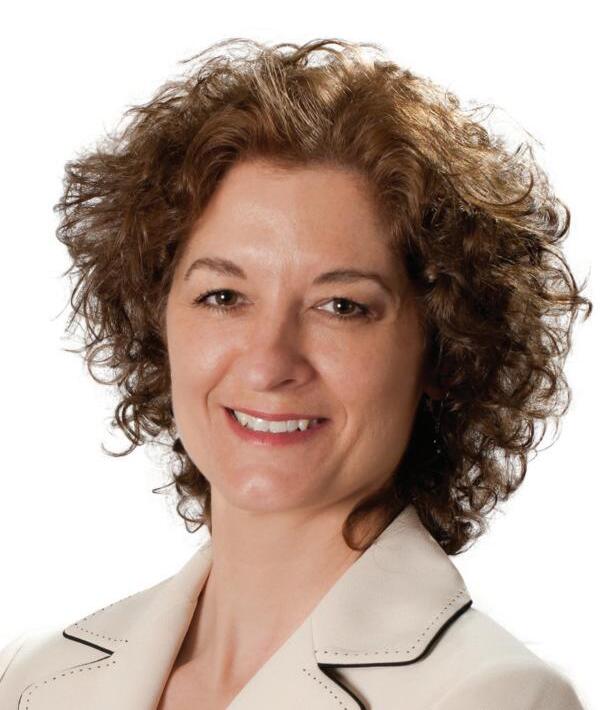





Though Thomson says competition is high these days, her competition has become “a sisterhood of flower farmers,” who root each other on and work together, not against each other.
“I know I can count on them for certain blooms and they know they can count on me to buy from them during the wedding season,” she said. They even go in on seed and bulb orders to keep costs down at the beginning of planting season.
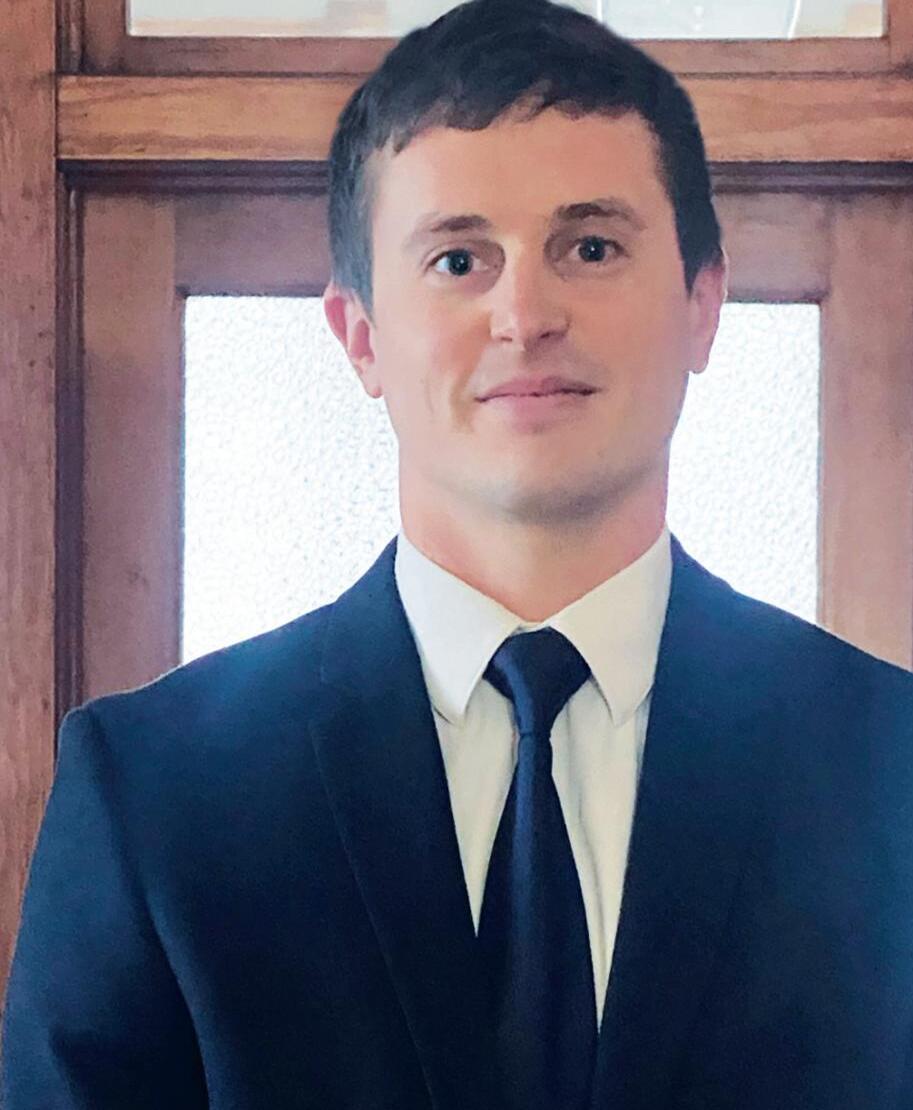
Still, increasing competition has changed Thomson’s business model over the years. When she first started IndieGrow there were only a few other flower farmers in the area. Same goes for floral designers with a similar farm-to-table (or wedding) model.
“Now, it seems like there’s two new ones that pop up each year,” she said, explaining that intense competition at farmers markets and even in the subscription sphere is why IndieGrow’s focus is weddings, an industry that’s booming in northern Michigan.
After the pandemic stalled ceremonies, 2023 reports revealed that couples were eager to tie the knot, spending an average
of $29,000 on their Michigan nuptials last year, with nearly $3,000 of that cost going toward floral design.
Thomson says that IndieGrow offers a wide range of options and budgets, from large-scale, full-service NoMi destination weddings to quaint DIY-style ceremonies.
“Being a bride that could not afford a florist, I do my best to work within a couple’s budget,” she said. “Especially if they’re big fans and really want a bouquet designed by me.”
Thomson says she encourages budget-conscious couples to divert their business away from warehouse stores like Costco and Sam’s Club in favor of utilizing IndieGrow’s lower-cost Bucket of Blooms. The service allows couples to arrange their own reception flowers in addition to bouquets, boutonnieres and corsages designed by her.
“Some florists do not want their designs mixed with a DIY design, but I simply want our couples to get what they want for their big day,” she said. “If they want to carry a bouquet designed by me down the aisle, I am honored and I want to make it happen for them.”
28 APRIL 2024 TRAVERSE CITY BUSINESS NEWS
AGRICULTURE & LANDSCAPES LOCAL FIRM. NATIONWIDE PRACTICE. Bailor Bell Attorney & TC Native $365 MILLION MORE THAN IN VERDICTS & SETTLEMENTS SERIOUS PERSONAL INJURY ATTORNEYS 201 East 17th Street, Suite A • Traverse City, MI 49684 231.933.0180 • tfnlgroup.com REALTOR ASSOCIATE BROKER (231) 409-6867 renae.hansen@c21northland.com The real estate market is changing fast. What does this mean for YOU? Let’s talk. Scan to schedule a brief phone consultation. RenaeHansen
Alissa Thomson (Photo by Mae Stier)






























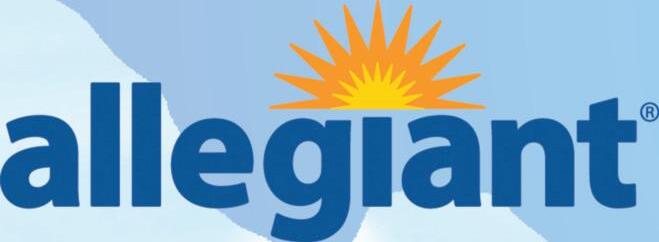




















































TRAVERSE CITY BUSINESS NEWS APRIL 2024 29 Cherry Capital Airport tvcairport.com Non�opsFly non-stop from TVC Cherry Capital Airport to one of 20 popular U.S. destinations.

NEED FOR SPEED
A timeline of Hagerty’s first 40 years
By Craig Manning
Four decades ago this month, the Traverse City business community saw the launch of what would eventually become one of its most iconic success stories.
It was in April 1984 that Frank and Louise Hagerty started Hagerty Classic Marine Insurance out of their home basement. Forty years later, Hagerty is a publicly traded company with hundreds of employees in the Traverse City area alone. This month, the TCBN celebrates Hagerty and the start of its fifth decade in business by looking back at what’s happened so far. Below, we’ve compiled a detailed timeline of how Frank, Louise, their kids, and a whole village of other employees built a boat insurance startup into the world’s premiere classic car insurance and lifestyle brand.
1948: The first seeds for Hagerty are planted when Frank Hagerty lands his dream job: driving a 1948 Ford Dunesmobile over the Sleeping Bear Dunes in northern Michigan. The gig doesn’t last long, on account of Frank not being old enough to hold a chauffeur’s license. As Hagerty company legend goes, Frank never quite gets over his Dunesmobile days.
1956: The Hagerty family enters the insurance industry for the first time when Frank starts a State Farm agency, simply dubbed Frank Hagerty Insurance.
1980: Frank and Louise go into business together as Hagerty Insurance Agency, described in Hagerty company materials as “a successful, independent general lines insurance agency.” Despite the name, this particular agency is not the
same company as the Hagerty we know today. Frank and Louise ultimately sell Hagerty Insurance Agency to new owners in the early 1980s.
1984: Unable to find suitable insurance coverage for their prized wooden boats, Frank and Louise Hagerty start Hagerty Classic Marine Insurance.
1991: The Hagertys add a new dimension to their business – in the form of a classic auto insurance department – and relocate to a new home at Grandview Plaza to kick off a fresh chapter. The same year, a young McKeel Hagerty – Frank and Louise’s son – designs a new logo for his parents’ company while working out of his graduate school apartment.
1995: McKeel officially joins the Hag-
erty team, coming aboard as vice president of marketing.
1996: Kim Hagerty, Frank and Louise’s daughter, leaves a successful law career to move back to Traverse City and join the family business. Kim would go on to serve as Hagerty’s legal counsel, co-CEO, and chairman of the board before retiring in 2014. She passed away in 2021.
1997: Hagerty makes a splash with its “Good Neighbor” print ad, which pokes fun at State Farm and its iconic Barry Manilow-penned “Like a good neighbor, State Farm is there” jingle.
“If they were really a good neighbor, they’d refer you to us,” the ad reads, before presenting a comparison in annual premiums between State Farm and Hagerty. (A sample: Hagerty’s premium for a 1936 Ford
30 APRIL 2024 TRAVERSE CITY BUSINESS NEWS ACCOUNTING INSURANCE & LAW
McKeel Hagerty
Cabriolet at the time was $179 per year, compared to $623 from State Farm.)
“Big insurance companies just don’t get it,” the ad continues. “Collectors treat their cars like royalty. Which is why Hagerty can have such low rates for better coverage. So unless your insurance agent is also your brother-in-law, you’d be crazy not to call us.”
In Hagerty company lore, the ad stands as a major milestone, given the fact that it earned the company a cease-and-desist letter from the folks at State Farm.
“We knew people were starting to take notice,” an internal company timeline document proclaims.
1998: With 60 employees, 58,000 policyholders, 2,000 agent partners, and 50 auto events to its name, Hagerty executes another company relocation, moving from Grandview Plaza to the newly built River’s Edge complex. That site, the former location of Traverse City Ironworks, is still Hagerty’s home to this day.
1999: Hagerty endears itself to driving enthusiasts when a hailstorm hits the RM Sotheby’s Vintage Motor Cars auction at Meadow Brook Hall in Rochester, Michigan. The storm damages a storage tent on the premises, along with several vehicles set for auction, and Hagerty offers to help owners with their claims – regardless of whether they were insured with Hagerty or not.
That same year, one Collette “Coco” Champagne starts a job running Hagerty’s inbound call center. Fast-forward to 2024 – Champagne is one of the key leaders in Hagerty history, having served as senior vice president and chief people officer, chief operating officer, and now chief human resources officer and chief administrative officer.
2000: McKeel steps into the CEO role at Hagerty, a position he still holds to this day.
2002: Hagerty rolls out two new programs: the Hagerty Protection Network and the Hagerty Fund. The former is described by the company as “the first 24-hour, seven-days-a-week flatbed towing service exclusively for collector vehicles,” while the latter is a fund intended “to promote the preservation and growth of car culture through education scholarships, automotive museum support, and collector car safety programs.” Those programs are both known today by different names: Hagerty Drivers Club and the RPM Foundation, respectively.
2003: Hagerty makes its entry into the print media space with the introduction of Protection on Wheels, a quarterly newsletter for members of the Hagerty Protection Network.
2005: Hagerty launches its own holiday –

Collector Car Appreciation Day – with the first event held at the state capital in Lansing.
2006: A busy year for Hagerty! Some highlights:
• The opening of Building 8 at River’s Edge in downtown Traverse City. That building, known for its cylindrical three-story glass showroom and the display

vehicles that appear within, stands to this day as Hagerty’s most iconic hub.
• The addition of Hagerty’s first-ever foreign office, Hagerty International Limited, in the United Kingdom.
• The introduction of “Ask Hagerty,” a concierge service that helps members locate hard-to-find parts and get answers for other automotive inquiries.
• The creation of Hagerty Youth Programs, starting with a youth judging


TRAVERSE CITY BUSINESS NEWS APRIL 2024 31 ACCOUNTING, INSURANCE & LAW
The infamous “Good Neighbor” ad. Louise and Frank Hagerty
program at the Barrington Concours d’Elegance classic car event held in Chicago. According to Hagerty, more than 13,000 kids and teens have participated in Hagerty Youth Programs since.
• The debut of Hagerty’s magazine, which replaces the Protection on Wheels.
2008: 24 years in, Hagerty has 280 employees, 330,000 members, 20,000 agent partners, and 700 events.
2008 sees the company’s entry into the charity space with the founding of Hagerty CARes, designed “to empower team members to serve the community in a way that is important to them by encouraging opportunities for volunteerism.”
Also this year, Hagerty launches Hagerty Cars That Matter. Now known as the Hagerty Price Guide, this manual stands today as the definitive pricing guide for classic and collector vehicles.
2009: Hagerty expands northward with the launch of Hagerty Canada.
The company also establishes the Historic Vehicle Association (HVA), with the goal of preserving automotive heritage as a part of American culture. Five years later, the HVA works with the United States Department of the Interior to launch the Historic Vehicle Register, which preserves key details about significant American automobiles in

the Library of Congress. The first vehicle inducted? The 1964 Shelby Daytona Coupe CSX2287. Today, the HVA is known as the Hagerty Drivers Foundation.
2011: Hagerty rolls out the Hagerty Driving Experience, a program to teach drivers between the ages of 15 and 25 how
to operate stick shift/manual transmission cars. Over the years, Hagerty has hosted more than 30 Driving Experience events, spanning more than 2,000 participants.
Also in 2011, McKeel tracks down Dunesmobile No. 9, the vehicle his father became so enchanted with while working at Sleeping Bear Dunes in the late 1940s.

McKeel acquires the vehicle and brings it back to northern Michigan from New Mexico. Three years later, in 2014, Dunesmobile No. 9 wins best-in-class honors at the prestigious Amelia Island Concours d’Elegance in Florida.
2013: With 570 employees, 607,000
WORLD-CLASS CARE FOR YOUR HIPS, SHOULDERS, KNEES, AND SPORTS INJURIES
Is joint pain or discomfort disrupting your life? The team at Munson Orthopedic Institute is committed to strong bones and getting you back on your feet.
Ready to get started? We’re accepting new patients!
Request a consultation at munsonhealthcare.org/MOI
32 APRIL 2024 TRAVERSE CITY BUSINESS NEWS ACCOUNTING, INSURANCE & LAW
COMMITTED TO STRONG BONES Joseph Ward, MD Orthopedic Surgeon Hip and Knee Specialist
Matthew Dubiel, MD Orthopedic Surgeon Shoulder and Elbow Specialist Michael VanWagner, DO Orthopedic Surgeon Hip and Knee Specialist

members, 37,000 agent parents, and 1,400 events to its name, Hagerty strikes up a U.S. carrier partnership with Markel, a global specialty insurance provider, making Markel the underwriter for Hagerty’s insurance policies.
Also in 2013, Great Place to Work and Fortune rank Hagerty on their “50 Best Small/Medium Places to Work” list, Hagerty opens an on-site employee gym called Ironworks at its downtown TC campus, and Ford approaches Hagerty to forge a partnership with the Hagerty Driving Experience – the first partnership with a major original equipment manufacturer in Hagerty history.
2014: Hagerty opens an office in Golden, Colo. and also moves into Germany with a value and appraisal firm called Classic Car Analytics. That same year, the business launches its annual nonprofit program, which has since given tens of thousands of dollars to local community partners.
Frank Hagerty, company co-founder, passes away at the age of 79.
2016: Long known as an insurance company first and foremost, Hagerty tweaks its brand positioning, summed up by the company as “For People Who Love Cars.” The lane change opens doors for Hagerty to reach a broader audience and expand its brand, “paving the way for new products and services in addition to insurance.” Around the same time, the mission of “saving driving” becomes a central tenet of Hagerty’s corporate mission.
2017: Another year of big launches, including the opening of a new office in Ann Arbor, the creation of a subsidiary (the Bermuda-based Hagerty Reinsurance LTD.), and the birth of Hagerty DriveShare, “a car-sharing community where classic car lovers connect with owners to drive unforgettable vehicles.”
2018 : Hagerty gets national attention when it locates the Ford Mustang Bullitt, which had been considered “lost” for nearly four decades. Hagerty unveils the iconic car, which was driven by Steve McQueen in the 1968 film Bullitt, at that year’s North American International Auto Show in Detroit. The Bullitt makes its way to Traverse City for a brief stint on display in the window at River’s Edge Building 8. Speaking at the time to TCBN sister publication The Ticker , McKeel Hagerty calls the Bullitt “the Mona Lisa of the car world.”
2019: A fever pitch of growth sees Hagerty publishing its first book (called Never Stop Driving), adding another magazine to its portfolio (the bi-monthly Hagerty Insider), acquiring one of its biggest events yet (the Greenwich Concours d’Elegance in Connecticut), and launching the Hagerty Driving Academy. By the end of the year, the company has more than 1,100 employees, more than a million members, and 2,500 events, and has donated more than $3.5 million in RPM Foundation scholarships and grants.
2020: The start of a new decade brings another new office for Hagerty (this one in Dublin, Ohio) and another major event acquisition (the California Mille), as well as the introduction of a brand-new offering for members: Garage + Social, a series of “climate-controlled, dust-free garages with 24/7 security, plus premium social space to gather with fellow automotive enthusiasts.”
2021: In what might be the biggest year in Hagerty history, the company notches numerous major milestones: After a complicated history, Hagerty and State Farm team up for the creation of State Farm Classic+. The service, State Farm’s classic vehicle insurance offering,
ELEVATING YOUR LANDSCAPE
• Ecological Landscaping & Native Plants
• Green Stormwater Infrastructure
• Residential & Commercial Site Design
• Land Use Planning & Consultation
• Natural Shorelines & Bioengineering

son programming in 2020, thanks to the global COVID-19 pandemic, Hagerty adds a slew of big events to its portfolio, including the Concours d’Elegance of America in Detroit, the aforementioned Amelia Island Concours d’Elegance, and Motor

231.943.1434 info@inhabitect.com

Drivers Club, hits the web. Highlights since launching include a first-week $760,000 sale of a 2019 Ford GT and a 2023 auction for a 52-car collection owned by famed boxer George Foreman.
Experience, Knowledge, Protection & Peace of Mind
2024: Co-founder Louise Hagerty passes away at the age of 88.
Hagerty continues to add marquee automotive events to its portfolio, including RADwood, a multi-location “celebration of ‘80s and ‘90s automotive lifestyle”; and Concours d’Lemons, a car show that showcases “the oddball, mundane, and truly awful of the entire automotive world.” 2022 also sees Hagerty acquiring the Broad Arrow Group, a renowned collector car auction house.
231.947.8800
• www.LarkinGrp.com
13900 S. W. Bay Shore Dr.
2023: Hagerty launches ECO, a program that allows vehicle owners and enthusiasts to calculate and offset their car’s vehicle emissions by planting trees. To date, ECO has offset more than two million miles worth of emissions and
Hagerty celebrates its 40th anniversary. According to Director of Executive Communications Andy Heller, the company now insures approximately 2.4 million vehicles, boasts about 821,000 members in its Hagerty Drivers Club, and employs more than 1,700 people worldwide, about 500 of them in the Traverse City area. In terms of charitable impact, Heller said Hagerty CARes has supported more than 500 local nonprofits, provided $5.5 million in local community support, and volunteered over 100,000 hours.
Also in 2024, Hagerty announces its 2023 financial results, touting a 27% growth in total revenue compared to the previous year, as well as Hagerty’s first-ever $1 billion revenue year.
TRAVERSE CITY BUSINESS NEWS APRIL 2024 33 ACCOUNTING, INSURANCE & LAW
The Hagerty team rings the opening bell at the New York Stock Exchange.
members, 37,000 agent parents, and 1,400 events to its name, Hagerty strikes up a U.S. carrier partnership with Markel, a global specialty insurance provider, making Markel the underwriter for Hagerty’s insurance policies.
Also in 2013, Great Place to Work and Fortune rank Hagerty on their “50 Best Small/Medium Places to Work” list, Hagerty opens an on-site employee gym called Ironworks at its downtown TC campus, and Ford approaches Hagerty to forge a partnership with the Hagerty Driving Experience – the first partnership with a major original equipment manufacturer in Hagerty history.
2014: Hagerty opens an office in Golden, Colo. and also moves into Germany with a value and appraisal firm called Classic Car Analytics. That same year, the business launches its annual nonprofit program, which has since given tens of thousands of dollars to local community partners.
Frank Hagerty, company co-founder, passes away at the age of 79.
2016: Long known as an insurance company first and foremost, Hagerty tweaks its brand positioning, summed up by the company as “For People Who Love Cars.” The lane change opens doors for Hagerty to reach a broader audience and expand its brand, “paving the way for new products and services in addition to insurance.” Around the same time, the mission of “saving driving” becomes a central tenet of Hag erty’s corporate mission.
2017: Another year of big launches, including the opening of a new office in Ann Arbor, the creation of a subsidiary (the Bermuda-based Hagerty Reinsur ance LTD.), and the birth of Hagerty DriveShare, “a car-sharing community where classic car lovers connect with owners to drive unforgettable vehicles.”


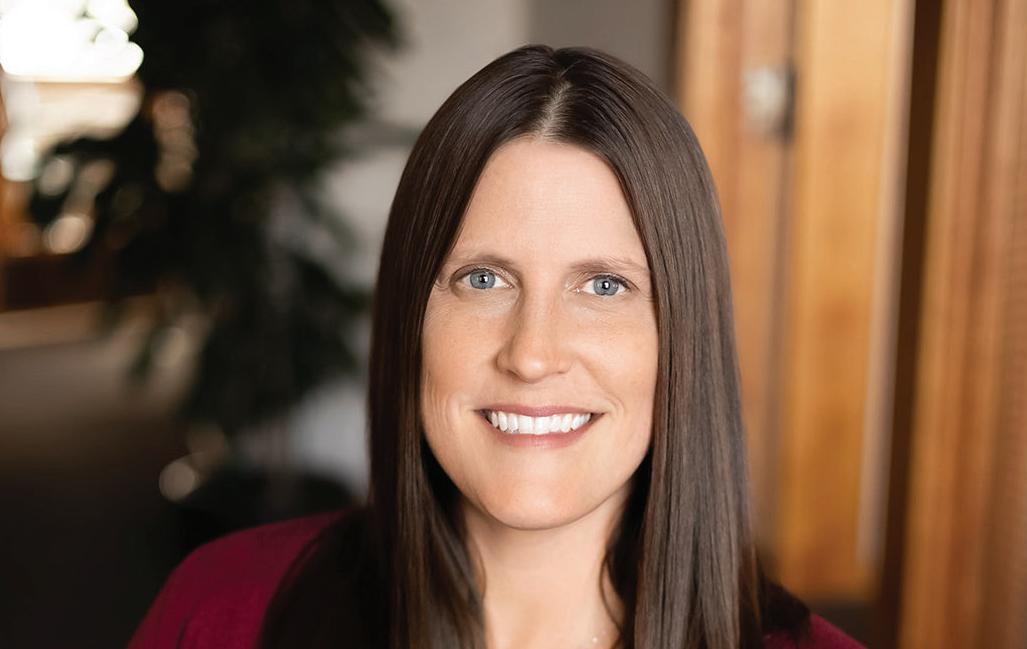
when it locates the Ford Mustang Bul litt, which had been considered “lost” for nearly four decades. Hagerty unveils the iconic car, which was driven by Steve McQueen in the 1968 film Bullitt, at that year’s North American International Auto Show in Detroit. The Bullitt makes its way to Traverse City for a brief stint on display in the window at River’s Edge Building 8. Speaking at the time to TCBN sister publication The Ticker , McKeel Hagerty calls the Bullitt “the Mona Lisa of the car world.”
2019: A fever pitch of growth sees Hagerty publishing its first book (called Never Stop Driving), adding another magazine to its portfolio (the bi-monthly Hagerty Insider), acquiring one of its biggest events yet (the Greenwich Concours d’Elegance in Connecticut), and launching the Hagerty Driving Academy. By the end of the year, the company has more than 1,100 employees, more than a million members, and 2,500 events, and has donated more than $3.5 million in RPM Foundation scholarships and grants.

2020: The start of a new decade brings another new office for Hagerty (this one in Dublin, Ohio) and another major event acquisition (the California Mille), as well as the introduction of a brand-new offering for members: Garage + Social, a series of “climate-controlled, dust-free garages with 24/7 security, plus premium social space to gather with fellow automo-
: In what might be the biggest year in Hagerty history, the company notches numerous major milestones: After a complicated history, Hagerty and State Farm team up for the creation of State Farm Classic+. The service, State Farm’s classic vehicle insurance offering,

gets the label of “fueled by Hagerty.”
Following a complicated year for in-person programming in 2020, thanks to the global COVID-19 pandemic, Hagerty adds a slew of big events to its portfolio, including the Concours d’Elegance of America in Detroit, the aforementioned Amelia Island Concours d’Elegance, and Motorlux, the renowned kickoff of Monterey Car Week. At its inaugural Amelia event, Hagerty unveils a splashy 29th addition to the National Historic Vehicle Register: the original Back to the Future retrofitted DMC DeLorean.
In August, Hagerty announces plans to become a publicly traded company, by way of a merger with Aldel Financial. The company officially goes public in the final month of the year, ringing the opening bell at the New York Stock Exchange on Dec. 6 to mark the occasion.
2022 : Hagerty Marketplace, a digital auction and classified ads site available exclusively to members of the Hagerty Drivers Club, hits the web. Highlights since launching include a first-week $760,000 sale of a 2019 Ford GT and a 2023 auction for a 52-car collection owned by famed boxer George Foreman.
Hagerty continues to add marquee automotive events to its portfolio, including RADwood, a multi-location “celebration of ‘80s and ‘90s automotive lifestyle”; and Concours d’Lemons, a car show that showcases “the oddball, mundane, and truly awful of the entire automotive world.” 2022 also sees Hagerty acquiring the Broad Arrow Group, a renowned collector car auction house.
2023: Hagerty launches ECO, a program that allows vehicle owners and enthusiasts to calculate and offset their car’s vehicle emissions by planting trees. To date, ECO has offset more than two million miles worth of emissions and

planted more than 50,000 trees.
2024: Co-founder Louise Hagerty passes away at the age of 88.
Hagerty celebrates its 40th anniversary. According to Director of Executive Communications Andy Heller, the company now insures approximately 2.4 million vehicles, boasts about 821,000 members in its Hagerty Drivers Club, and employs more than 1,700 people worldwide, about 500 of them in the Traverse City area. In terms of charitable impact, Heller said Hagerty CARes has supported more than 500 local nonprofits, provided $5.5 million in local community support, and volunteered over 100,000 hours.
Also in 2024, Hagerty announces its 2023 financial results, touting a 27% growth in total revenue compared to the previous year, as well as Hagerty’s first-ever $1 billion revenue year.
34 APRIL 2024 TRAVERSE CITY BUSINESS NEWS ACCOUNTING, INSURANCE & LAW
The Hagerty team rings the opening bell at the New York Stock Exchange.
FINANCIAL PLANNING WITH A PERSONAL TOUCH Retirement, Tax, and Estate Planning, Investment Management, and More. All investment advisory services are offered through Dynamic Wealth Advisors. BLACKWALNUTWM.COM 231.421.7711
The Ford Mustang Bullitt arrives in Traverse City.

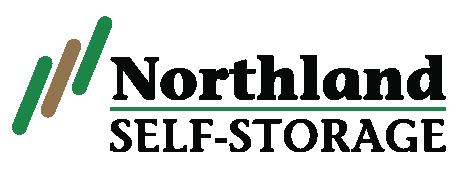








TRAVERSE CITY BUSINESS NEWS APRIL 2024 35 ◆ Landscape Design ◆ Retaining Walls ◆ Brick Pavers ◆ Stamped Concrete ◆ Patios ◆ Lawn Installation ◆ Outdoor Kitchens/ Fireplaces SOUTHEAST MICHIGAN 7975 M-36/ P.O. Box 608 Hamburg, MI 48139 (810) 231-2778 NORTHWEST MICHIGAN 6546 M-37 Kingsley, MI 49649 (231) 486-5505 www.ToddsServices.com ◆ Seawalls ◆ Water Features ◆ Sprinkler Systems ◆ Decks/Pergolas ◆ Landscape Lighting ◆ Drainage ◆ Commercial Lawn & Snow SPRING AVAILABILITY! CONTACT US TODAY! SALES BY CARLY CARLY SMITH PETRUCCI KNOWS REAL ESTATE ...AND SECRET FISHING SPOTS, BUT SHE DOESN’T LIKE TALKING ABOUT THOSE. CARLY SMITH PETRUCCI, REALTOR® 231.649.3137 Carly.CBRealtor@gmail.com | www.TheShawnSchmidtGroup.com Thinking about buying or selling? Call Carly to talk about your real estate needs LEELANAU COUNTY, NEW CONSTRUCTION DOWNTOWN TRAVERSE CITY CONDO NORTHPORT, CATHEAD BAY FRONTAGE TRAVERSE CITY, ACREAGE PROPERTY GRAND TRAVERSE, LONG LAKE TOWNSHIP OLD MISSION PENINSULA, EAST BAY

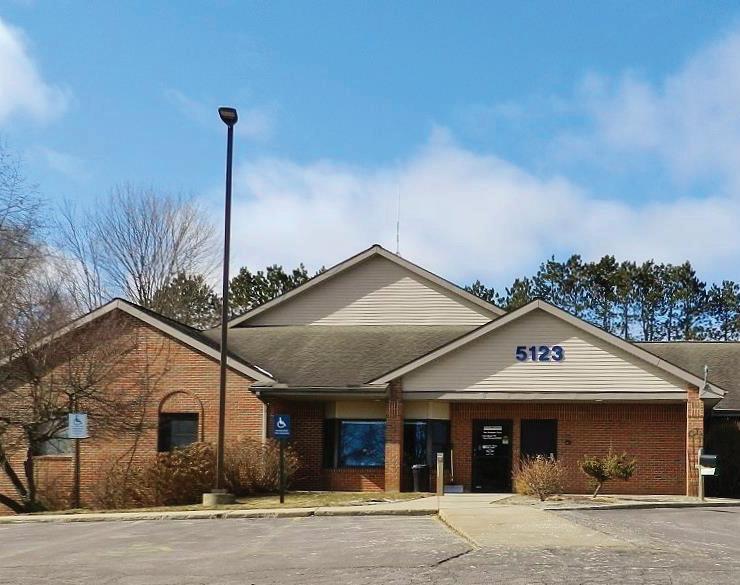
Medical Office Building For Sale! - 11,486 Sq/ Ft. Main Level is 6,187 Sq/Ft. Walkout Lower Level is 5,299 Sq/Ft and Features a Large Open Area w/ Picture Windows providing lots of natural light. Excellent for Physical Therapy, Patient Assessments, Gym Related Activities! Current tenant (month to month) is utilizing the lower level (some lab space), and approx. 2/3's of the main floor. The owner is using approx. 1/3 of the main floor & shared common areas. Owner leaseback is negotiable or buyer could use the entire building if needed. Many individual offices of various sizes. Close to Munson Hospital surrounded by a variety of Medical Practices. Virtual tour Online – MLS# 1919691 - $1,595,000.

THE NEWCOMERS
Meet the latest movers and shakers in TC’s law and accounting sectors
By Craig Manning
Who are the latest movers and shakers in Traverse City’s law and accounting sectors? This month, the TCBN sits down with a trio of new businesses in this space, and the people behind them who are making northern Michigan their home.
The new guard of small business accounting
The people: Matt McComb and Bryan Dunn, two of the leaders behind McComb & Co. The downstate accounting firm has recently added Traverse City to its business domain, bringing with it a decade-long company history and deep ties to northern Michigan. The firm offers a full suite of business accounting services, including tax planning, payroll, budgeting, bookkeeping, cash flow analysis, sales tax compliance, and more.
The business: “The company has been around just shy of 10 years,” said Bryan Dunn, McComb and Co.’s business development director. Dunn and McComb, the company’s CEO and founder, were college friends and football teammates at Albion College before spinning off in different directions.

CULINARY
Unit 103 has a seperate outside door to the parking area. Window and Exterior Door to exterior/parking area. Common Area - Breakroom - Lobby/ - Restrooms shared. Michigan Broadband Internet. Tenant pays monthly rent + 15% CAM fees and Water/Electric Utilities and Natural Gas if needed by tenant. Close to Downtown. Good parking. Great Space is one large room (30 x 29.04), plus hallway entrance interior. 3 Phase Electric. Nice! MLS# 1918465 $950/month
McComb went into the accounting sector, buying “a small CPA practice in Saline” and then a second practice in Ann Arbor and building them up under the McComb & Co. name. Dunn, meanwhile, went into the senior care business, owing and operating Comfort Keepers home care agencies in Ann Arbor and Trenton.
COVID-19 brought the two old college buddies back together.
“Matt and his wife – his wife is from Gaylord – they moved up to Gaylord during COVID-19,” Dunn said. “By that point, Matt and I had been trying to get get into business together. And one day he said to me, ‘Hey, we’ve got an opportunity here to buy a practice in Traverse City.’”
The practice in question, called A L Mitchell & Associates and owned by local accountant Andrew Mitchell, had long been on McComb’s radar. “Matt had actually applied for a job with Andy over a decade ago,” Dunn said.
In November 2022, Dunn bought into McComb & Co., and his investment

helped the business acquire the Traverse City practice. Now, the firm has three locations throughout the state – Ann Arbor, Gaylord, and TC – with plans to grow its presence further in the years to come.
Why northern Michigan: Beyond McComb’s family ties to the Gaylord area, Dunn said many members of the McComb & Co. team have roots in the region. That includes Dane Hadfield, who heads the Traverse City branch, and even Dunn himself, who – while he still lives and works in the Ann Arbor area – feels great kinship with northern Michigan.
“My family has a ton of history in Traverse City,” Dunn said. “My dad’s cousin owns the U&I Lounge on Front Street, and my dad actually owned it with him for about a decade; my dad still owns the building. And then my parents have a little cottage out an Old Mission, so we spent a ton of time in the summer up there when I was young. That’s one of the reasons we bought the practice up there: We all just wanted to have a location in that market.”
Coming next: Now fully out of the senior care business – he sold his Comfort Keepers franchises in September of last

year – Dunn is fully committed to growing McComb & Co. In his view, the company’s core mission – to “elevate small business” – is something that could positively impact any community in Michigan.
“Our plan is to continue to expand; we want to continue to add locations throughout the state,” Dunn said, noting that one of the reasons he and McComb came together – as well as fellow partners Chris Haines and Derek Chavis – was a shared belief in the substantial opportunity available right now in the accounting world.
“Some 70% of CPAs are retiring over the next 10 years,” he said.
With so much outgoing talent – and so much evolution in the broader accounting industry thanks to the rise of artificial intelligence and automation – Dunn believes there’s a place for trusted local accountants that can help small businesses navigate their financial challenges.
“So, our goal is to continue to grow, and to eventually have an office in the Grand Rapids area, the metro Detroit area, and so on,” Dunn said. “We want to have CPA partners in place in all these locations, servicing local clients and helping small local businesses thrive.”
36 APRIL 2024 TRAVERSE CITY BUSINESS NEWS ACCOUNTING INSURANCE & LAW
Dunn
RETAIL SPACE FOR LEASE! Large Picture Windows - High Ceilings - Wide Open Space Ready for New Tenant to Design it w/Personal Touches! Double Doors in the rear allow for Great Delivery Options. Appox 350 SQ FT of Upper Floor Storage Space.
Rd just
of Major Intersection
Rd.
of Traffic
Signage
Ingress/Egress
this Corner property.
Drives to Lots of Parking,
Truck Access.
Lease.
to
Trash,
Finance,
etc.
McComb
Busy Garfield
South
w/Airport
Lots
- Great
&
for
Front & Back
& Easy
Modified Gross
Tenant
pay Rent, Electric, Nat Gas,
Internet/Phone. Great Space for Retail, Insurance,
Real Estate, Salon,
MLS# 1918610 $1600/month
PRODUCTION SPACE FOR LEASE!
opportunity for any type of Food related production.
Excellent
The environmental advocate
The person: Lauren Teichner, a veteran public defender from New York City who traded the Big Apple for the Cherry Capital of the World in 2022, to take a job with Olson, Bzdok & Howard, a Traverse City-based public interest environmental law firm. Now, she’s out on her own as the founder and principal attorney of Teichner Law.
The business: Launched last year, Teichner Law “concentrates on local and statewide environmental law, land use and zoning law, and municipal law.” According to Teichner’s website, her focus is “strategic advocacy and community lawyering on behalf of individuals, citizens groups, municipalities, nonprofit organizations, and other stakeholders that are both actively defending fragile environmental resources and enhancing sustainability practices.”
“It’s been such an incredible lens, to get to know this community through environmental advocacy,” Teichner said. Early last year, for instance, while still with Olson, Bzdok & Howard, she represented Friends of Timberlee, a group of 100 or so homeowners in Elmwood Township who were pushing back against a proposed wellness resort development they argued would negatively
impact the environment and quality of life in their neighborhoods. Thanks in part to Teichner’s work on the case, the developers pulled the application and promised to revise it based on public feedback. The matter has yet to make its way back before the Elmwood Township Planning Commission.
“Representing 100 people in a case like that means meeting tons of residents who live in the area, who care about where they live, and who want to see that the natural resources here are protected,” Teichner said. “Just to hear what people care about and what their values are, and the kinds of places that they want to live, that’s helped me feel really connected with what’s happening locally.”
Why northern Michigan: “My husband and I had a daughter, and then found out that I was pregnant with our second child,” Teichner said. “This was during the pandemic, and we just were very excited at the thought of moving to a much greener place to raise our kids.”
Moving somewhere greener also opened up the environmental law door, which Teichner had always wanted to explore “but didn’t really see a way in New York City.”
The connection to Traverse City came courtesy of one of Teichner’s college
roommates: Kate Redman, the founder of Commonplace and the the project director and co-founder of the Commongrounds Cooperative. An attorney herself, Redman had worked at Olson, Bzdok & Howard prior to striking out on her own in 2017. She pointed Teichner toward the firm.
“[Kate] was just this incredible entry point for us to learn about the Traverse City community and get a sense of what was happening here,” Teichner said. “As we saw the area through her eyes, we got really excited that this place could be where we were meant to move and have this next chapter of our lives with our young kids.”
Coming next: Working with a local friend, Jennifer Beuthin, Teichner has launched a group called Northern Michigan Climate Families, which seeks “to get the younger generation activated and involved in climate action” and to “spread awareness of the importance of land stewardship.”
“We did one playdate last November where I think 10 families came, and we made drawings and signs that we sent on to legislators when they were considering the clean energy bills this past fall in Lansing,” Teichner says of Northern Michigan Climate Families.
This spring, the group has a new series of events planned around farm -

ers and agriculture, including a visit to Oryana to learn about the farmto-table food cycle, a morning at the farmers market to meet local growers face-to-face, and a farm tour focused on sustainable growing practices.
Teichner said that parents interested in getting their kids involved in the Northern Michigan Climate Families group can find updates on Instagram at instagram.com/nomiclimatefamilies.

TRAVERSE CITY BUSINESS NEWS APRIL 2024 37
ACCOUNTING, INSURANCE & LAW
Your Project. Our Purpose. 231.946.9191 1280 Business Park Drive, Traverse City, MI 49686 WWW.GOSLINGCZUBAK.COM goslingczubak Engineering Environmental Surveying Construction Materials Testing
Teichner
The military lawyer
The person: Josh Traeger, a United States Air Force veteran – and former Air Force lawyer on both sides of the prosecutor-defense aisle – moved to Traverse City with his wife and family in October 2022. Now, he’s working to get a new mission off the ground: his own law firm, called True North Legal Group.
The business: Described as “a community-centered legal enterprise,” True North Legal touts a mission “to deliver world-class legal advocacy to the people of northern Michigan and to help this community grow and develop.” The firm offers legal services in the practice areas of criminal defense, employee rights, veterans services, business or nonprofit startup and development, and civil rights.
“There are more lawyers per capita in northern Michigan than all but maybe one county in the remainder of the state,” Traeger said. “But I still think there is a place for a more community-centered law practice here. There are plenty of law firms in town that are experts in corporate acquisitions and civil litigation, all of those things,
but I saw a place for us to come in and impact community, build community, and improve northern Michigan.”
When asked what he means by “community-centered law practice,” Traeger explained that he wants True North Legal to be an approachable, street-level business that people can call for advice or assistance whenever they need it. He points to his work with veterans as an example.
“We can help veterans with discharge upgrades, or VA applications and appeals, or things like that,” Traeger said. “And ever since we’ve put the word out that we do that kind of work, the phone has just continued to ring. The veteran numbers up here are pretty crazy; overall, 1% of Americans have served, but I think the numbers in northern Michigan are in the 1215% range.”
Why northern Michigan: Traeger wrapped up active duty in the Air Force on December 31, 2019. His top goal after that was to find a home where he and his family could feel like part of a vibrant, caring, interconnected community. Two months later, as COVID-19 crashed the economy and created a socially distanced world,

Traeger was longing that much more for belonging and connection. A visit to Traverse City in July 2022 delivered everything he had been looking for and more.
“I’ll never forget that day of walking around and exploring the different neighborhoods of Traverse City with my wife,” Traeger said. “Seeing homes, and seeing kids running around, and seeing people out on the front porch, it was just idyllic. It’s the kind of thing that we wanted to have in Colorado, where we were living at the time, but didn’t have.”
Within a few days, the Traegers had a realtor and were looking at houses in TC. Within a few weeks, they had an accepted offer and were planning their move to Michigan.
“As we say in the military, we were boots on the ground in Traverse City by October 27, 2022,” Traeger laughed.
Coming next: Right now, Traeger is excited to be growing True North Legal’s base of small business clients. In that realm, he said, his firm is trying to stay true to its “community-centered” mission by offering an approachable, client-friendly billing approach.

“All of our work is flat-fee work,” he explained “A traditional law firm would bill a client by the hour, but I think sometimes that can lead to surprise billing, or unexpected invoices at the end of the month. We want to avoid that.”
38 APRIL 2024 TRAVERSE CITY BUSINESS NEWS
ACCOUNTING, INSURANCE & LAW
IndependentBank.com
Traeger





TRAVERSE CITY BUSINESS NEWS APRIL 2024 39 CUSTOM WINDOW TREATMENTS FREE Window Treatment Installation going on NOW! Shades • Blinds • Drapery • Shutters • Motorization FREE Window Treatment Installation going on NOW! Shades • Blinds • Drapery • Shutters • Motorization Check out our Google reviews to see for yourself! 883 US Highway 31 S Traverse City 231-943-PIGS (7447) www.americascarpetbarn.com “Thanks Americas Carpet Barn!”

Small businesses ensnared by new Corporate Transparency Act
By Rick Haglund
A sweeping law designed to fight money laundering requires tens of millions of small businesses to submit extensive ownership information to a federal financial crimes enforcement database – at least for now.
The Corporate Transparency Act compels businesses to disclose a variety of information about their “beneficial owners” to the Financial Crimes Enforcement Network, known as FinCEN. Small business advocates say the reporting requirements could prove burdensome for many companies.
A beneficial owner is a person who “directly or indirectly exercises substantial control” over a business or who “owns or controls” at least 25% of a company, according to FinCEN.
“This has been the bane of my existence this year,” said John Lynch, a Traverse City attorney who specializes in new business formations. “Pretty much all of my clients are affected.”
The law was passed by Congress in 2021 but didn’t take effect until January 1, 2024. Businesses that existed before January 1, 2024 have until January 1, 2025 to comply. But businesses formed this year have just 90 days from their start date to submit ownership
40 APRIL 2024 TRAVERSE CITY BUSINESS NEWS ACCOUNTING INSURANCE & LAW
information. And changes in beneficial ownership must be reported to FinCEN within 30 days.
In addition to combating money laundering by exposing anonymous shell corporations, the law is designed to battle drug trafficking and other crimes threatening national security.
“It’s a very broad act,” Lynch said. “It’s probably going to affect just about every small business in the country.”
Businesses with more than 20 employees that have a U.S. office and annual revenues exceeding $5 million are exempt from the reporting requirements.
But the law could be undone after an Alabama federal judge ruled in March that Congress exceeded its authority in requiring small businesses to provide a plethora of ownership information to the federal government.
The ruling, which declared the anti-money laundering act unconstitutional, has created confusion over its impact because it applies only to the plaintiff in the case, the 65,000-member National Small Business Association.
That’s just a tiny slice of the estimated 32 million small businesses FinCEN estimates are covered by the act.
The Justice Department has appealed the March 1 ruling by the Alabama court. Observers expect the case to land before the U.S. Supreme Court.
“There are likely to be multiple legal

“This has been the bane of my existence this year. Pretty much all of my clients are affected.”
– John Lynch, principal, Lynch Law Firm Lynch Calley
actions against the law across the country,” said Brian Calley, president of the Small Business Association of Michigan. “It’s going to be a pretty active area of litigation over the next year.”
Calley, president of the Small Business Association of Michigan, had hoped the court ruling would apply to his organization’s 32,000 members because SBAM is an affiliate of the National Small Business Association.
But Calley says SBAM’s legal counsel determined the ruling applies only to SBAM as an entity and not to its dues-pay -




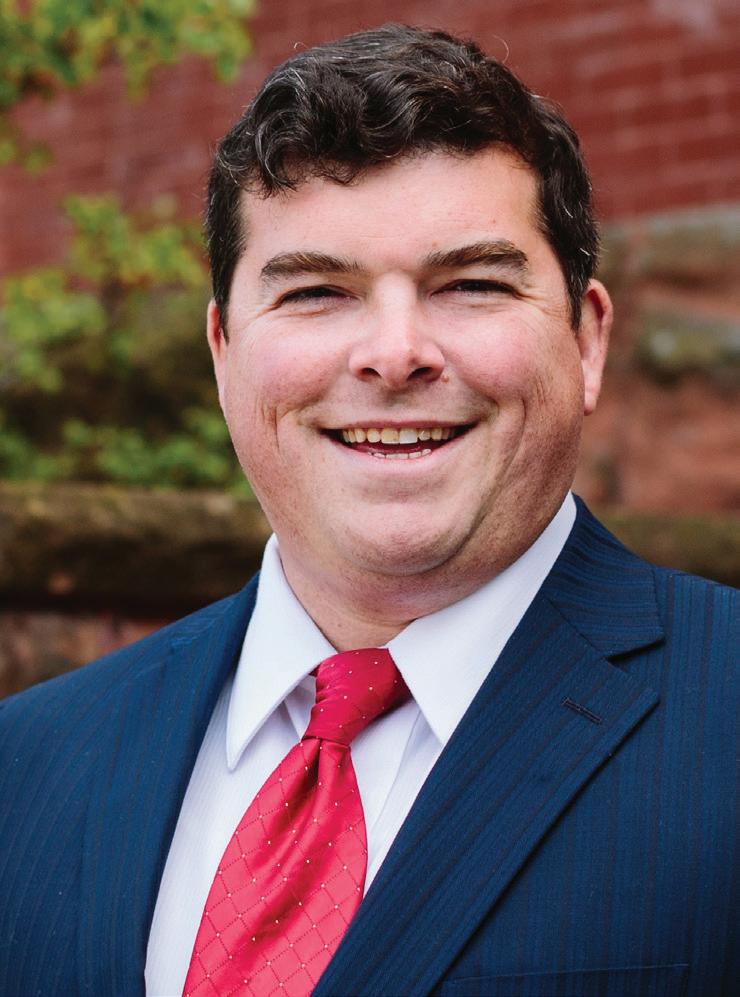
ing members. SBAM is the largest small business organization in Michigan.
Calley and Lynch say that businesses formed before Jan. 1 can wait to see how the law plays out in the courts before filing ownership information with FinCEN. But those formed this year should promptly comply.
Failing to report ownership or providing incomplete information can subject businesses to a $500-a-day civil penalty. Criminal violations of the act can result in up to a $10,000 fine and two years in prison.
“The ugly part of this is the enforcement is pretty strict,” Lynch said. “We’re taking it
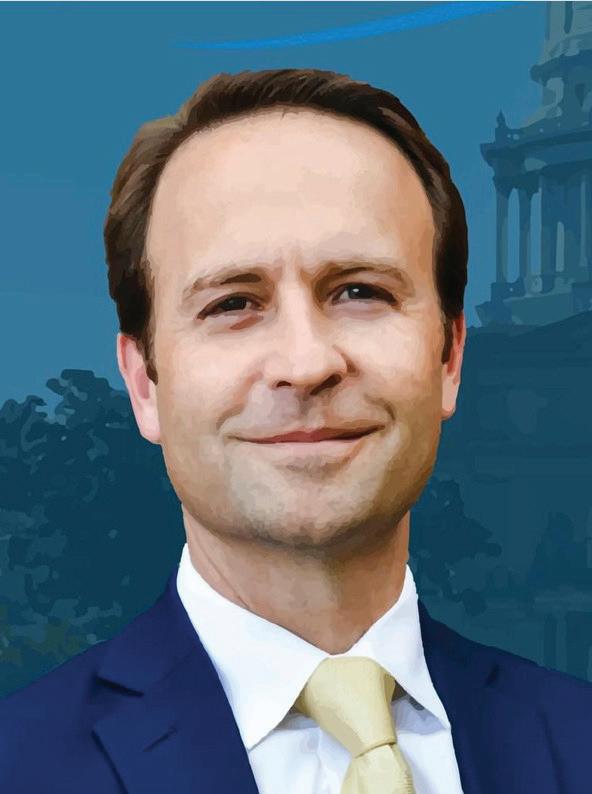
very seriously.”
Calley said he’s worried that as many as half of all small business owners in the state may be unaware of the law. He said he mentions it in every speech he gives around the state but finds that many business owners haven’t heard of the transparency act.
“The awareness is not just low, it’s extremely low,” he said.
A local tax accountant said a big issue with the law is that the definition of a beneficial owner isn’t crystal clear.
“Indirect ownership is the problem,” said Matthew Grigsby, a principal in the

TRAVERSE CITY BUSINESS NEWS APRIL 2024 41
ACCOUNTING, INSURANCE & LAW
18 76 EST. bahles.net hours MON–SAT 10AM-530PM SUNDAY CLOSED Downtown Suttons Bay LOCATED IN BEAUTIFUL NOW CARRYING
Kindlinger & Co. accounting firm in Traverse City. “Is an indirect owner a chief financial officer or controller?”
Owners and beneficial owners of affected companies must provide their names, addresses, birth dates, and submit scanned identifications, such as a driver’s license or passport, to FinCEN. All reporting companies must disclose their legal business name, business address, tax identification number and specify the jurisdiction where they were registered.
Limited liability companies and other types of businesses required to file ownership information with the Michigan Secretary of State, and similar offices in other states, are required to report beneficial ownership to FinCEN.
Businesses can file ownership reports directly with FinCEN but can also use lawyers and accountants to file the paperwork, Lynch said.
Grigsby says his firm is recommending clients consult with their lawyers about reporting requirements because the transparency law isn’t a tax matter involving the Internal Revenue Service.
“This is outside the purview of tax law,” he said. “We can’t provide clients with advice because it involves a legal issue.”
The law limits the types of agencies that can access beneficial ownership information to state and federal law enforcement agencies, the Treasury Department, financial institutions with a

company’s consent, government regulators of financial institutions and certain foreign authorities requesting information through a U.S. agency.
Lynch says his office is hustling to inform clients about the new law’s requirements, especially for new businesses that must report ownership information this year.
“The act is subject to rules that have been changing every two months for the past year,” he said. “We’re scrambling to update our clients with the latest information because it’s a moving target.”


The Corporate Transparency Act in a nutshell
• It’s a law that took effect in January requiring small businesses to provide ownership information to the Treasury Department. The law is designed to crack down on drug trafficking through shell corporations.
• Those exercising substantial control or who own at least 25% of a company must report identifying information to the Financial Crimes Enforcement Network, known as FinCEN.
• Businesses have until January 1, 2025 to comply, but businesses formed this year have 90 days after their start date to file ownership information.
• An Alabama federal judge ruled the law unconstitutional, declaring that Congress overreached in requiring businesses to report such extensive ownership information. Observers expect the case to be decided by the U.S. Supreme Court.
• Businesses with 20 or more employees, $5 million in annual revenues and an office in the U.S. are exempt.
• There are stiff civil and criminal penalties for noncompliance.
• Businesses can file their ownership information directly to FinCEN or use lawyers or accountants to assist them in reporting the data.

42 APRIL 2024 TRAVERSE CITY BUSINESS NEWS
ACCOUNTING, INSURANCE & LAW
Louis A. Rodriguez 231.943.1326 ThirdCoastIns.com Proud partners with You know your business. We know your business insurance.
Grisby
AN OUNCE OF PREVENTION
EPLI protects against costly lawsuits
By Art Bukowski
You’d never mistreat an employee, right? So why bother with insurance that protects against claims from a current or former staff member who feels wronged?
There’s big trouble with that line of thinking, experts say. That’s because doing everything right still might not prevent a lawsuit from rearing its very ugly – and very expensive – head.
“You can do everything correct as an employer. You can avoid discriminating against your employees. You can provide them with opportunities for advancement. You can put them on performance improvement plans and then terminate them for just reasons,” said Adam Boelkins, a commercial account executive with Traverse City-based Ford Insurance. “But none of those things are going to prevent a disgruntled or frustrated employee from turning around and filing a suit against their employer.”
Lately, Boelkins has been educating clients about Employer Practices Liability Insurance (EPLI).
grievances is a solid investment.
“This is a coverage that most business owners are not even aware is available,” Boelkins said. “They view an increased focus on employee rights as something they have to deal with and a risk they have to accept, and they’re often surprised there’s a product that gives them a fixed cost to transfer that risk elsewhere.”
A tailored plan
While many broad business insurance packages have a bit of EPLI coverage built in, a standalone policy provides more specific coverage with much higher coverage limits. And despite what the name suggests, many standalone EPLI policies also cover claims made by customers and other non-employees.
“Every employer I’ve dealt with thought they were doing things right until they realized they weren’t or they were accused of not doing it right. We all have our blind spots.”
– Anders Gillis, employment attorney, Parker Harvey, PLC
This type of insurance covers businesses against a wide range of complaints, including sexual harassment, discrimination, wrongful termination and much more.
And it’s not just insurance agents who advocate for this type of coverage. Anders Gillis, a Traverse City-based employment attorney, says not having it is akin to driving around without car insurance.
“It can be the equivalent of a train wreck for your business if you don’t have it,” he said. “The legal mandates might not be there to have it (as with car insurance), but the financial risks are enormous.”
EPLI differs from professional liability insurance in that the latter is instead intended to protect against negligence or errors in providing professional services for customers. In a time of increased attention to workers’ rights, experts say insurance that protects against employee

“That’s a key coverage component for a lot of our public-facing risk,” Boelkins said. “Restaurants, assisted living, any business that has care of other people or service of other people within their premises can open themselves up for a third-party employment practices liability claim.”
Most standalone practices carry a slew of other benefits, Boelkins says. Legal defense comes at no additional cost and doesn’t deplete your coverage limits, for example. And unlike auto insurance, fault comes into play. This can go a long way if the employer did, in fact, do nothing wrong.
“With auto, you’re paying a deductible right away whether it’s your fault or not. This differs in that we’re waiting to see whether or not this is your fault or there’s a settlement for it before you’re required to pay anything out of pocket,” he said. “And then even (if you’re at fault), it’s limited to a retention or deductible, which is typically $2,500 or $5,000.”
So what types of businesses should have these policies? While everyone could benefit, those in the know point to restaurants and other businesses that cycle through employees at an above-av -

erage pace. It’s simply a numbers game – the more employees coming and going, the higher likelihood of trouble.
“Any industry where there’s a greater rate of turnover, it makes sense to have some sort of coverage in place,” Gillis said.
Such policies are also generally inexpensive, coming in at under $1,000 annually – adding somewhere between 6-12% of annual insurance costs for the average Ford Insurance client.
“In the grand scheme of things, it’s a relatively inexpensive policy for the coverage it provides,” Boelkins said.
No silver bullet
Employment law is among the most complex in existence, Gillis says. Federal, state and local laws combined with various regulations make it difficult to stay on top of what’s going on. And because laws change faster than many employee handbooks, it can create a liability before you even know it’s there, Gillis added.
“Every employer I’ve dealt with thought they were doing things right until they realized they weren’t or they were accused of not doing it right,” he said. “We all have our blind spots. That’s the reality, and that’s what insurance is there for in

those situations.”
But like most forms of insurance, EPLI shouldn’t be treated as a silver bullet, Gillis says.
“Insurance companies are smart. They work with some of the best analytics and they know the risks better than anybody else,” he said. “They know that there are certain kinds of claims that are prone to create a lot of liability, and they’re not going to cover those.”
The fine print might tell you, for instance, that incidents arising from company events that serve alcohol aren’t covered, or that wage and hourly liability under the Fair Labor Standards Act (FLSA) isn’t covered. Take a very close look at the details of your plan, Gillis says, and be familiar with the loopholes.
Gillis recommends the services of an employment attorney in conjunction with proper insurance.
“Some of the best insurance you can have is an attorney in your corner who can help with some of your initial onboarding policies and employment agreements at the forefront,” he said. “Because there are some things that insurance won’t cover, but your employment attorney can help make sure molehills don’t turn into mountains.”
TRAVERSE CITY BUSINESS NEWS APRIL 2024 43
ACCOUNTING INSURANCE & LAW
Gillis
Boelkins


44 APRIL 2024 TRAVERSE CITY BUSINESS NEWS Unlock a world of freedom where you can explore your interests, forge lasting relationships, and relish every moment of independence. Our unique community is designed with you in mind, ensuring you experience a life filled with excitement! +Casual & fine dining +Movie theater +Exercise and fitness facilities +24/7 nursing & personal care assistance Embrace Freedom & Connection OPENING IN 2024 IN TRAVERSE CITY! Call 231.310.1999 MeadowValleyTraverseCity.com INDEPENDENT LIVING, ASSISTED LIVING & MEMORY CARE FOREVER YOURS 5143 North Long Lake Road Traverse City, MI 49685

CRUNCHING NUMBERS
Essential advice for small biz tax filing
By Kierstin Gunsberg
With tax season in its final stretch and crunch time in full swing, northern Michigan CPAs are scrambling to make sure small business owners’ ducks are in an organized row while maximizing their exemptions and overall savings. One senior accountant, Allison Harrall at Dennis, Gartland & Niergarth CPAs, took a breather to share information on changes made to the 2023 season, her advice for avoiding common filing pitfalls and tips for how to make next year’s taxes less daunting.
Avoid last-minute filing pitfalls
First things first. Get – or stay – organized for smooth filing. While throwing every receipt, statement and important-looking piece of mail into a box marked “Tax Stuff” might be the fastest option throughout the year when juggling employees, clients and day-to-day busyness, Harrall implores business owners to come up with a tighter plan to avoid tax season issues.
“There can never be enough emphasis on organization,” she said.
If the current system isn’t covering it, swapping out hybrid record-keeping for a singular method can save tax-time headaches. To go all-digital, use a scanner or scanner app to upload paper documents to a digital file. If parting with paper feels too risky, print digital receipts and docs before transferring them to clearly labeled old-school manila folders.
Either way, everything will be in one
place when it’s needed.
Harrall says another key to hassle-free filing is keeping business transactions separate from personal purchases to avoid confusion. Open a separate business bank account and use it exclusively for business transactions to track business expenses and income efficiently.
“If you are ever selected for an audit, commingling information can quickly become very difficult,” said Harrall, who also suggested touching base with business
explained Harrall. “Since the owner receives a refundable tax credit equal to the amount of taxes paid by the flow-through entity, the owner no longer has to pay income taxes to the state in which the FTE income is received.”
Once the election is made, says Harrall, the Michigan FTE tax is irrevocable for the next two successive years.
Meanwhile, there’s legislation that Harrall and other tax professionals say they are currently keeping an eye on.
“One of the biggest considerations of this legislation would be the continuation of 100% bonus depreciation. If the bill is passed, it could affect 2023 tax returns.”
– Allison Harrall, Senior Accountant, Dennis, Gartland & Niergarth
accountants early on in the season to make adjustments, hand in missing documents, and get questions clarified well before filing deadlines.
Updates for S-Corps and partnerships, possible legislation changes
When asked what changes or updates were made to the 2023 tax year, Harrell says that small business owners who elected for Michigan’s Flow-Through Entity (FTE) back in 2021 needed to re-elect this spring.
The election gives “S-Corporations and Partnerships the option to pay tax at the entity level in order for owners to be able to reduce federal income taxes owed,”
“One of the biggest considerations of this legislation would be the continuation of 100% bonus depreciation,” said Harrall. “The bill was passed by the House and advanced to the Senate. If the bill is passed, it could affect 2023 tax returns.”
Additionally, business owners who just established their entity this year may not be in compliance if they haven’t yet registered with Fincen (https://www. fincen.gov/boi) as part of the Corporate Transparency Act.
“This act was created to enhance transparency within entity structures and ownership,” said Harrall. “If your business is not new, you now have until January 1, 2025, to register.”
The sooner, the better. Harrall explains that non-compliance penalties can be as high as $10,000 but noted that businesses won’t have to report digital transactions from payment services like Zelle, PayPal and Venmo that are over $600 for 2023.
Instead, the IRS is “planning a threshold of $5,000 for 2024 as a phase in to eventually reduce to $600,” said Harrall.
Delegate to minimize stress (and risk)
When it comes to streamlining for the 2024 tax season and beyond, Harrell says one of the simplest time-savers is to keep track of expenses throughout the year.
“Always keeping receipts/records and having a system of scanning or filing for easy access can be very beneficial,” she said.
Utilizing accounting software like QuickBooks, Xero or FreshBooks can help automate bookkeeping and track numbers more efficiently in the runup to tax time.
As for those compelled to save a few bucks by filing with a DIY service, Harrall cautions against it.
“You’re great at what you do, let tax professionals be great at what they do,” she said, noting that the benefits of minimizing the risk of penalties or audits while making the correct elections for maximum savings is worth the upfront cost of hiring someone else to handle the IRS nitty gritty. “Their goal is to help minimize risk, save money and/or to help you make choices that allow you to be financially successful in the future.”
TRAVERSE CITY BUSINESS NEWS APRIL 2024 45
ACCOUNTING INSURANCE & LAW
 By Josh Traeger, columnist
By Josh Traeger, columnist
I woke to the sounds of “Reveille,” the familiar bugle call designed to muster a military unit for morning formation. Opening my hotel curtains, I saw the sun rising over the Philippine Sea and the tropical setting of Okinawa, Japan. This day, I had a singular, yet familiar mission – to lead a military court-martial against an airman who violated Japanese law.
For 10 years, I served on active duty in the U.S. Air Force as a JAG, or military prosecutor. You’ll recall Tom Cruise yelling, “I want the truth!” at Jack Nicholson in A Few Good Men. That was me, but slightly more skilled in the courtroom and significantly less handsome in everyday life. I traveled the world, often 200+ days per year, handling the military’s most difficult cases. On my own, shouldering tremendous responsibility and entrusted to do the right thing.
That’s a familiar mission for small business owners in northern Michigan –independently taking charge and leading through uncertainty. So, when I separated from active duty a couple years ago and my family decided to settle down in this amazing community, I knew I had something to offer. My military experience taught me more than I could have imagined about initiative, responsibility and leadership.
And so, from the hundreds of cases I handled from Korea to Kansas and London to Las Vegas, here’s a few lessons I hope northern Michigan small business owners can apply locally and beyond:
No Plan Survives First Contact
As a young prosecutor, I’d spend hours writing detailed trial plans about when witnesses would testify, what they would say, and what defense attorneys would ask them on cross-examination. If cases were won on plans alone, I never would have lost.
Then, reality hit! Witnesses wouldn’t show, stories would change, and unexpected evidence would surface. I learned quickly that no plan survives first contact.
You see this in your business as well. No number of whiteboards or spreadsheets can prepare your team for market uncertainties. So, what does that mean from a legal perspective?
First, have a trusted team in place. Great

You CAN Handle the Truth!
Lessons for your small business from a former military prosecutor
leaders, trusted advisors and skilled lawyers anticipate obstacles and adjust course without losing their bearing. Interview, hire and retain leaders and executives who can analyze complex situations, develop creative solutions and maintain a detail-oriented approach. Have an attorney integrated with your team, at the ready and always prepared to help you through a difficult challenge or, if needed, a fight.
Second, be flexible. Run from the ever-popular statement, “This is how we’ve always done it.” You must be ready and willing to rework processes, rewrite contracts and renegotiate agreements. If you aren’t, the business you could have won will go to a more flexible and partner-oriented competitor.
Finally, embrace risk. The legal profession avoids risk. But you can’t. Small business owners need to embrace uncertainty and attorneys that best serve you are those who understand your business’s objectives and risk profile, while working to identify and propose solutions to meet your needs.
Just as you can plan for combat, you can plan for business. But no plan survives first contact. As we said in the Air Force, “Flexibility is the key to airpower.”
Your Case is Only as Strong as Your Evidence
There was a stretch in my prosecutorial career when I won…a lot. I came to believe it was my refined skills as a lawyer generating such positive results. And then I inherited multiple excruciating cases and I took a few losses. I quickly learned that in law, your
case is only as strong as your evidence.
In the market, your business is only as strong as your product or your service. Protect those at all costs.
Work with a lawyer to ensure you have the proper trademark, copyright and patent protection. Review and enforce your non-disclosure agreements for trade secrets. Invest in the process of monitoring the market for unauthorized use of your intellectual property and take swift action to enforce your intellectual property rights. Finally, create a company culture of intellectual property awareness, recognizing your business is only as strong as the unique products and services you provide to the market.
Fire the ‘Good Idea Fairy’
While in the military, I encountered all types of leaders. Some of the best were long-serving enlisted members who had truly seen it all. Once during trial prep my team and I were coming up with what we thought were creative ideas for a fast-approaching and difficult case. All of these ideas were terrible, but they were unique. We almost went with one until a greyhaired sergeant announced, “Beware of the Good Idea Fairy.”
Who is this mythical creature? The Fairy lives in military lore as an invisible and insidious force always arriving in the eleventh hour, just before required execution and landing on the shoulder of upper management. He packs a list of unnecessary changes and additional work, often trying to fix something that ain’t broke in the first place. The Fairy thrives
on creating stress and alienating team members, employees and allies.
Flick the Fairy and get him off your shoulder, now! How do you do that effectively?
Fill your meetings with subject matter experts. You may lead your company, but you do not know everything about it. Trust your knowledgeable team to maintain a true north heading in times of stress and change.
Seek out and listen to good advice – from other business owners, community leaders, trusted advisors, and, yes, good lawyers.
Finally, eliminate confusion in your decision-making processes. One way to do so – establish a brainstorming deadline. If a new idea is not received by deadline, it’s not considered. It’s time to execute. The Good Idea Fairy is too late and, thus, flicked away before even landing.
Farewell to Arms
I’ll never forget the beautiful sunrises in Japan, the tremendous responsibility I held in the military, or the wonderful people I met along the way. I only hope that the lessons I learned then, and continue to learn now, can help you – and our amazing community of northern Michigan – grow in meaningful and positive ways. Hooah!
Josh Traeger is the founding attorney of True North Legal Group, a community-centered law practice based in Traverse City. He can be reached at (231) 800-8654 or josh@truenorthlegalgroup.com.
46 APRIL 2024 TRAVERSE CITY BUSINESS NEWS ACCOUNTING INSURANCE & LAW
age 0-20
833-295-0616
24 hours a day/7 days a week
If you are having a mental health crisis, at any time during the day or night, call us!
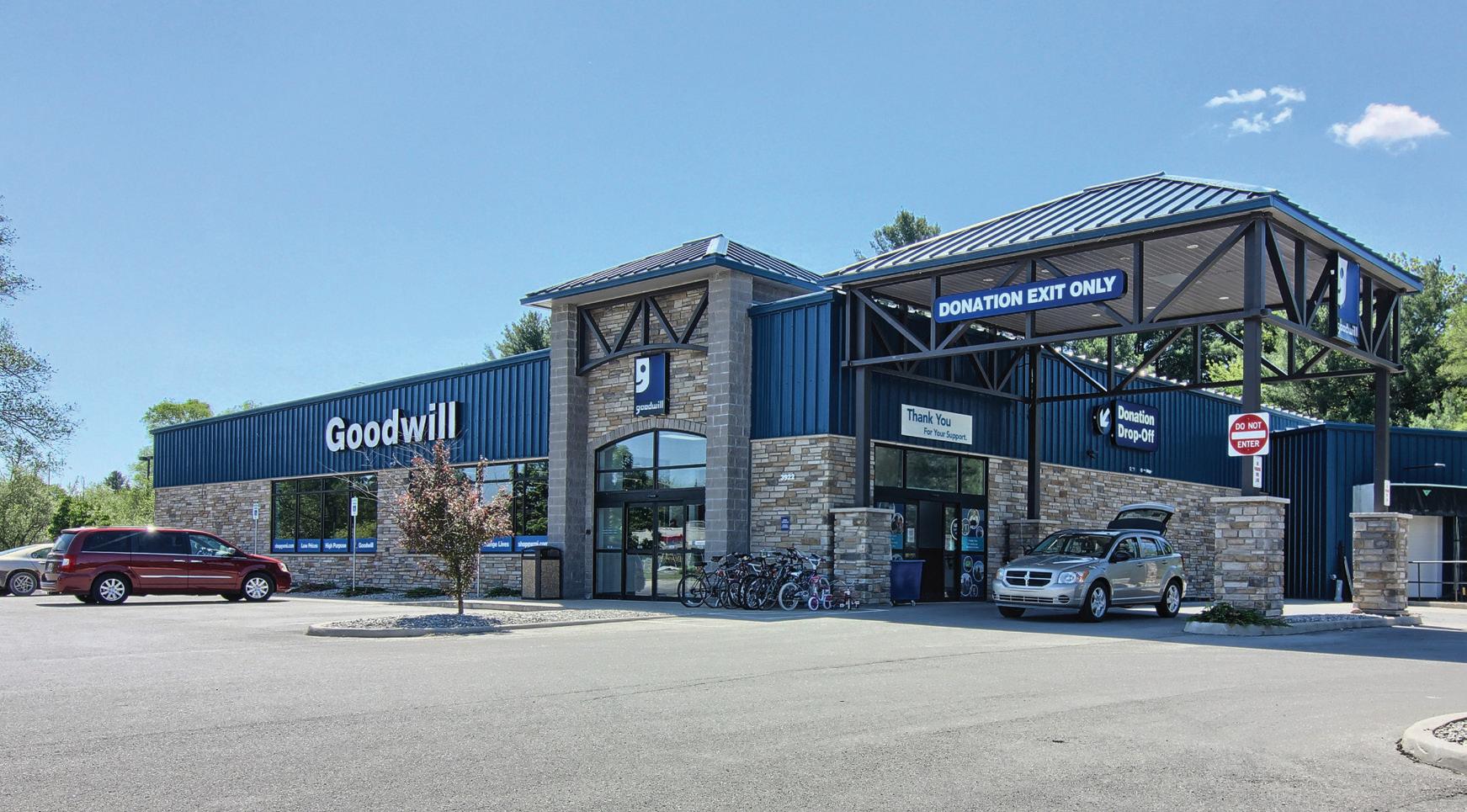


TRAVERSE CITY BUSINESS NEWS APRIL 2024 47 Help is always available
FAMILY ASSESSMENT & SAFETY TEAM Ask for FAST for children



48 APRIL 2024 TRAVERSE CITY BUSINESS NEWS BEAT THE TRAFFIC, BUY A BIKE! 231-947-4274 - Located on the TART Trail at 736 E. 8th St., Traverse City

 By Eric Braund, columnist
By Eric Braund, columnist
The 2025 Tax Sunset is on the horizon and may affect taxpayers across the board. With many 2017 Tax Cuts and Jobs Act (TCJA) provisions set to expire, it could mean significant tax shifts for individuals and businesses alike.
Let’s face it, most folks don’t stay on top of tax law, typically leaving that sort of thing to their tax professional. But with several laws expiring shortly, now is the time to prepare for substantial changes that could impact you for years to come.
Here’s a breakdown of what to expect from the 2025 Tax Sunset – including which laws are expiring and the possible ramifications – so you can act now and potentially save before tax rates increase.
Individual Taxes
Let’s start by explaining how the 2025 Tax Sunset could affect individual taxpayers and how the temptation to simply wait it out might end up costing you down the road.
Potential changes:
• Tax rate increase: Millions of taxpayers could pay more in taxes as the current lower tax brackets put in place by the Tax Cuts and Jobs Act (TCJA) increase in 2026.
• Decreased standard deductions and personal exemption: Prepare for a potential surge in taxable income when the standard deduction amounts and personal exemptions decrease.
• Child tax credit: Right now, families get a break on taxable income thanks to the child tax credit, but this allowance is set to expire. You’ll want to act now to manage potential increases in income.
• State and local tax (SALT) deduction cap: If the current $10,000 cap on deductions for state and local taxes expires, residents in high-tax states like California, New York and New Jersey could benefit. The downside is that eliminating the deduction cap could shift the tax burden to the federal government.
Estate Tax
With the increased value of homes, inheritances, and sales of business in the last few years, the estate and gift taxes are

Time Is Running Out: The 2025 tax sunset is on the horizon
a top concern for individuals with larger estates. Here’s why:
• Estate tax exemptions expected to be reduced by half: The TCJA doubled the 2011 estate gift tax exemptions. The exemption rates for 2024 are $13.61 million per person and $27.22 million per married couple. In 2026, the estate gift exemption is expected to roll back to the 2011 numbers and be around $6.8 million per person and $14 million for a married couple.
Business Taxes
As a business owner, you might have even more at stake. Here’s a snapshot of how the 2025 Tax Sunset could impact business taxes:
• Full expensing of deductions: This temporary condition that allows instant expensing of business expenses will expire. If you’re an affected business, you will see taxes increase.
• Pass-through business income deductions: When the provision that currently allows the deduction for income from pass-through businesses like partnerships and S corporations expires, the tax liability for many small businesses could increase.
• Bonus depreciation: Businesses investing in equipment and machinery will feel the impact as the deduction for

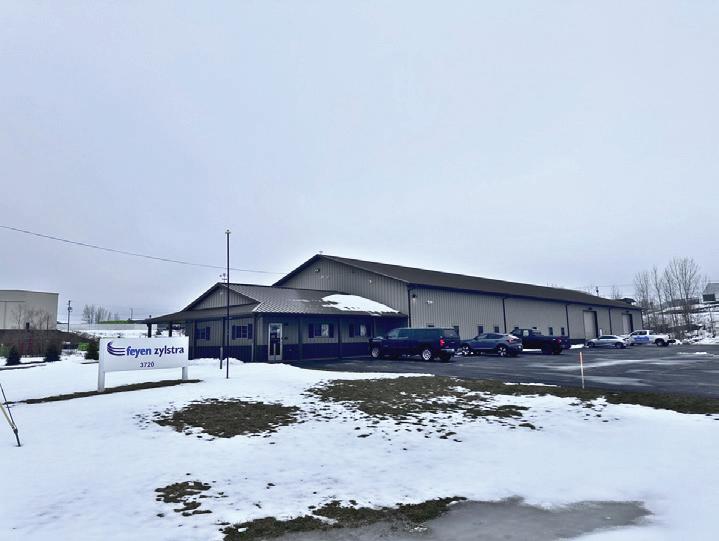
certain depreciable property shrinks. The bonus percentage will drop by 20% in each upcoming year until it vanishes completely, so it’s crucial to plan for these changes.
Get Prepared
If the 2025 Tax Sunset remains in place without congressional intervention to alter or extend, the effects on individuals and businesses will be far-reaching. Rather than wait to see how it plays out, assess your situation now to take advantage of the current lower tax rates. Whether you are an individual tax filer or a business, the TCJA will likely impact you, so it’s best to prepare while there’s still time. A great way to get ahead of these changes is to consult with a Certified Financial Planner® professional or a tax professional.
Eric Braund, CFP®, CRPC® is the founder and CFO at Black Walnut Wealth Management, a financial advisory firm providing counsel and fiduciary financial services to individuals, families, and private foundations throughout the Traverse City and northern Michigan region. Contact him at (231)421-7711 or visit BlackWalnutWM. com. Braund is an investment advisor representative with Dynamic Wealth Advisors dba Black Walnut Wealth Management. All investment advisory services are offered through Dynamic Wealth Advisors.
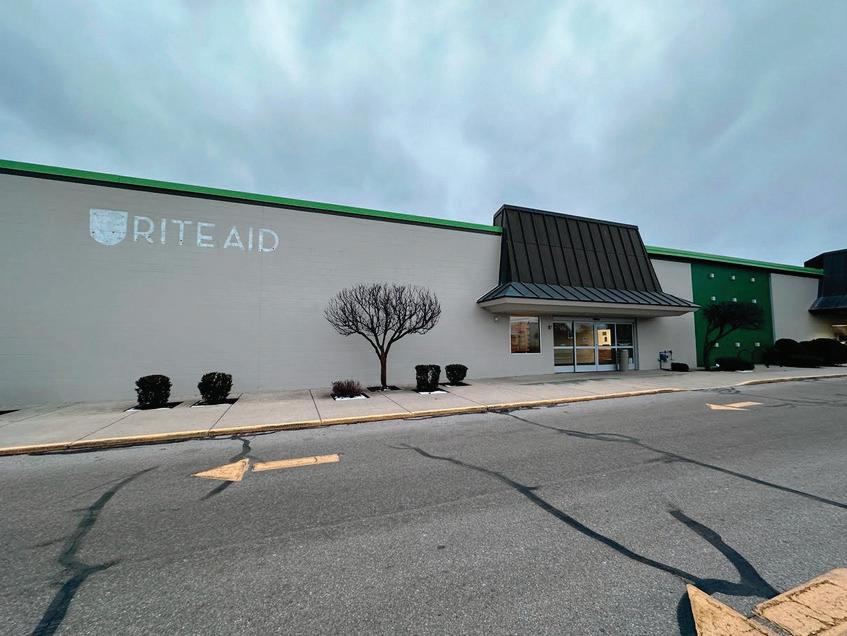


TRAVERSE CITY BUSINESS NEWS APRIL 2024 49
INSURANCE & LAW
ACCOUNTING
4 2 9 0 & 4 3 8 6 U S - 3 1 N T R A V E R S E C I T Y , M I 3 3 1 1 W S . A I R P O R T R O A D T R A V E R S E C I T Y , M I 1 2 0 1 S D I V I S I O N S T R E E T A T R A V E R S E C I T Y , M I 3 7 2 0 E L M E R S I N D U S T R I A L D R T R A V E R S E C I T Y , M I WWW. REAL ES T AT ET C. COM 3,936 SF + LOWER-LEVEL RETAIL OR OFFICE WAREHOUSE SPACE PRIME RETAIL SPACE 700' ON US 31 - REDEVELOPMENT $890,000 $3,300,000 $14/SF/YR (NNN) $1,325/MO + ELECTRICITY 3,180 SF 22,520 SF - 3 69 AC 12,250 SF D A N S T I E B E L REALTOR® 2 3 1 . 6 3 3 . 0 4 3 2 dan@realestatetc com 522 E Front Street Traverse City, MI 49686
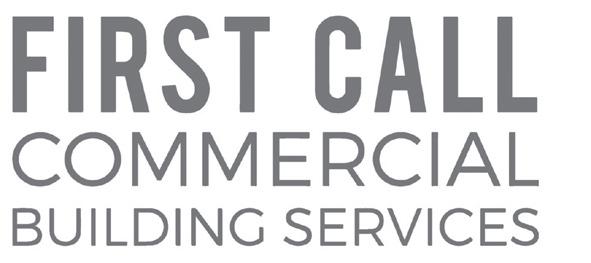
 By Chris Wendel
By Chris Wendel
Inc. Magazine recently recommended the book “Yours Truly” to its business-oriented audience. Although I thought that the subject was an odd choice, the part of me that’s always been intrigued by reading the obituaries won out. Gloomy and sad to some, a well written obituary provides a retrospective roadmap of what it takes for a person to be successful, at times lucky, and to persevere.
“Yours Truly” is written by James R. Hagerty, who has worked as a writer for the Wall Street Journal for nearly 40 years. The book’s early chapters present a framework to write your own obituary which flows into a section on helping others write a fitting tribute. Hagerty gives an inside look at the art and thought process of writing an obituary that will be something a family will treasure decades from now.
While laying out the structure of a strong and relatable obituary, the book stresses not going through writing the standard combination of who, what, when and where. Hagerty’s technique seeks to bring out hidden parts of a person’s life that may be uncovered from a seemingly mundane story.

The challenge is different for writing your own obituary. By nature, this is something that has been somewhat taboo over the years, but Hagerty stresses the importance of you being the most qualified to leave something for others to have when you’re no longer alive.
Hagerty relates his own experiences from crafting obituaries and how he’s been able to hone his process to ask the right questions. Many times, relatives and friends are too busy dealing with funeral arrangements and are not apt to reveal much about the deceased’s personality. Therefore, it’s necessary to ask basic questions at first to find interesting characteristics about the person. This could require having more than one session to reveal the subject’s true character. The preventative solution is to interview and write down facts, stories, and anecdotes ahead of time.
The book also dives into common mistakes, such as an obituary being too formulaic and impersonal. It has to be more than a chronological account or a list of accolades. Hagerty points out the example of the obituary he hastily wrote after his father’s death. Years later, after some time and introspection, Hagerty rewrote a tribute for his family that showed a deeper side of his father’s rich life.
The second half of “Yours Truly” presents the stories and tributes of dozens of interesting subjects that Hagerty has seen in obituaries, or ones that he’s been fortunate to write over his last 40 years. The book’s best stories don’t come from notable or famous people, but a selection of interesting individuals who experienced remarkable things over the course

of their lives. This includes the long and winding story of Vartan Gregorian, an Armenian immigrant that saved the New York Public Library. And Mort Crim, once a “teenage Evangelist” who reinvented himself several times to become a TV news anchorman in Philadelphia and Detroit. His persona, be it popular or over the top, became the inspiration for the movie character known as Ron Burgundy.
Many of Hagerty’s subjects did astounding things that the general public (and sometimes their own families) didn’t know about until after their deaths. These include leaders in specific industries, those who became wealthy (and quietly gave it away), and those that did so much with very little to make the world a better place.
Business book or not, “Yours Truly” is rewarding to read and offers serious reflection for anyone questioning the relevance of their lives in this age of information overload. Writing a good obituary for yourself (or for others) also leaves a lasting imprint for future generations so they understand your true character and the impact you have made in the world.
Chris Wendel works for Northern Initiatives, a mission-based lending organization based in Marquette, Michigan. Northern Initiatives provides funding to businesses throughout Michigan and online business resources through its “Initiate” program to small business owners throughout the United States. Wendel lives and works in Traverse City.
50 APRIL 2024 TRAVERSE CITY BUSINESS NEWS
ONLY
QUICK QUALITY 231-714-0911 SERVICE@FIRSTCALLCOMM.COM • BUILDING MAINTENANCE • CODE COMPLIANCE • HVAC MAINTENANCE & REPAIR • ELECTRICAL • PLUMBING • remodeling & MORE • LICENSED & INSURED
YOUR
CALL TO MAKE IS TO FIRST CALL.
YOURS TRULY: An Obituary Writer’s Guide to Telling Your Story By James R.
BOOK REVIEW
Hagerty
TOY HARBOR TOY HARBOR SINCE 1984 • 231-946-1131 • CREATIVE & QUALITY TOYS IN DOWNTOWN TRAVERSE CITY For Traverse City area news and events, visit TraverseTicker.com

DIGGING IN
New agritourism summit
By Craig Manning
Michigan State University Extension has announced the details for the first-ever Agritourism Summit, scheduled for May 7-8 in Traverse City. The two-day event, which will include a tour of local agritourism businesses followed by a day of panels and keynotes at the Hagerty Center, seeks to answer why agritourism has become arguably the most vital and vibrant part of Michigan’s agricultural economy.
Trevor Tkach, president and CEO of Traverse City Tourism (TCT), helped organize the summit after a conversation with Dennis Arouca, a local businessman and investor who serves on the boards for the Grand Traverse Economic Development Corporation and the Grand Traverse Area Manufacturing Council.
“Dennis and I ran into one another at an event more than a year ago, and he had all these concerns about farming and agriculture in this region,” Tkach told The Ticker. “What’s the future? How do we make sure we are being mindful as a region and a community to ensure that our local farms are viable? If you think about it, so many of the things that we’ve come to love about this region have to do with agriculture and the agricultural diversity that’s here. So, how do we bring together the farmers, the municipalities, and the residents to provide an environment for success?”
According to the United States Department of Agriculture, the number of
farms operating in the U.S. declined by 7 percent between 2017 and 2022, wiping out nearly 142,000 farms. In that same time period, the amount of land “operated by farm operations” in the U.S. dipped by 20.1 million acres – more than the size of Maine. Historically, when farms close down, their land has been a prime target for real estate developers.
Locally, farmers have been vocal about the headwinds facing the industry – particularly around cherry farming, which has been plagued by unfavorable commodity crop pricing, foreign competition, climate change factors, and more. Just last fall, Pulcipher Orchards, a 150-year-old cherry orchard in Williamsburg, got out of the cherry business for good.
Rob Sirrine, a local extension educator for MSU Extension, says agritourism came to the forefront in recent years as the premiere solution to help small, local farms survive the challenges they now face.
“Around 2017, we noticed how many farmers were realizing that this old middle-scale commodity farming model was not working anymore,” Sirrine told The Ticker. “But they wanted to keep farming, so they were asking what they could do [to carry on]?”
Soon, MSU Extension was observing a statewide trend: More and more farmers were supplementing the income from actual agricultural activities by adding events, farm markets, food and drink operations, or other on-farm revenue streams.
aims for common ground
“A lot of growers started hosting weddings in their barns,” Sirrine said. “And then, inevitably, they’d receive pushback from neighbors and elected officials.”
That disconnect – between the farmers trying to make ends meet and the local communities taking issue with increasingly commercial and nontraditional farm uses – prompted MSU Extension to launch a new program called Cultivating Local Farm Economies.
“We went to different locations around the state and met with elected officials and farmers to try getting a conversation going,” Sirrine said. “Our thought was: If the goal is to preserve agriculture, we need to do something to help these growers remain in business and remain economically viable.”
Those types of conversations will be front and center at the Agritourism Summit. A day one tour will showcase just how prevalent agritourism has become in northern Michigan, with visits planned to Jacob’s Farm, Leelanau Cheese, 9 Bean Rows, Tandem Ciders, and Farm Club. The day two agenda includes panels and keynotes involving not just the owners of local farms, but also tourism leaders, local planning and zoning directors, MSU Extension experts, restaurant proprietors, and more. Area residents are also invited to attend.
The growth of agritourism in northern Michigan has prompted a few clashes between agribusinesses and local residents or municipalities – perhaps most notably with an ongoing lawsuit between the
Wineries of Old Mission Peninsula and Peninsula Township. While those kinds of disagreements are bound to happen, MSU Extension Innovation Counselor Parker Jones says a big goal of the Agritourism Summit is to find common ground among all stakeholders.
“There’s really not a bad guy when it comes to our ecosystem here,” Jones says. “The farmers, they make 7.8 cents on the food dollar. That’s not much, and it’s hard to be viable as a small-scale farm when you’re making such a small amount. But then, if you’re someone who moves to Old Mission Peninsula to have a nice rural lifestyle and then an agritourism operation shows up and it’s a carnival-like atmosphere with 10,000 people, it makes sense that you’d want to protect your lifestyle. What we’re trying to do is cater to all these audiences and bring folks together, so that they understand where one another are coming from.”
“We collectively need to have a better understanding of what’s happening in our environment,” Tkach adds. “Agriculture has been a huge part of our local ecosystem for well over 100 years, and none of us, to my understanding, want to see that go away. So, I think just trying to talk that through and address it in a collective way matters. We want people to come together and understand the challenges on all sides of these issues, and we want to work together to create an environment where agriculture can thrive in northern Michigan.”
TRAVERSE CITY BUSINESS NEWS APRIL 2024 51
Jacob’s Farm
LET’S GROW
On your entrepreneurial journey, the road is paved with dreams, grit and determination. We help simplify the complex so you can focus on the results. Our business is to help your business succeed.
Let’s grow together.
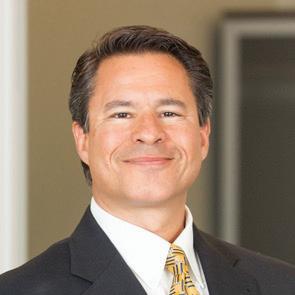
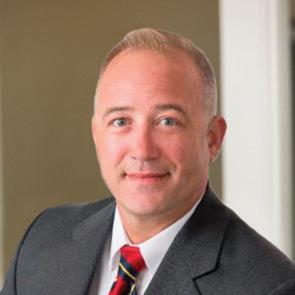
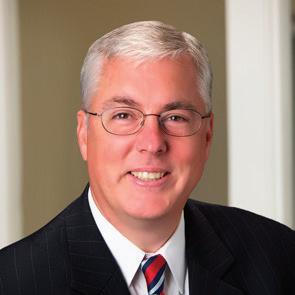
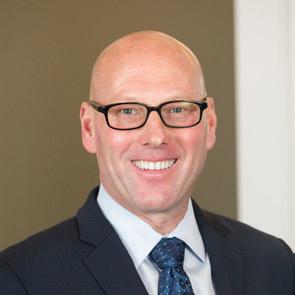
Michael Caruso

SVP Commercial Banking 231.941.6303 mcaruso@nicoletbank.com
John Galbraith
VP Commercial Banking 231.632.9331 jgalbraith@nicoletbank.com
Jeremy Harnish
SVP Commercial Banking Manager 231.941.6306 jharnish@nicoletbank.com
Andrew Sabatine
SVP Commercial Banking 231.941.6301 asabatine@nicoletbank.com
Traverse City NicoletBank.com 800.369.0226
Member FDIC
MICHIGAN


The Cool Revolution: Transforming AFib Treatment with Cool Cardioversion™
By Kierstin Gunsberg
Each year, more than half a million patients are affected by postoperative AFib, a condition that causes an irregular heart rhythm and is often treated with cardioversion via an electric shock to restore normal heart rhythm.
MediCool Technologies Inc. in Traverse City is on a mission to offer these patients a more comfortable experience with Cool Cardioversion™, a treatment device they’re working to bring to trial.
MediCool president and CEO Jeff Rynbrandt explains that the technique treats AFib by cooling the heart, rather than shocking it. If approved, the gentle treatment could decrease potential side effects when compared to the electrical version.
“With traditional cardioversion – either from an implantable cardioverter defibrillator, or from an external defibrillator in the hospital – there is tremendous pain associated with the shock,” said Rynbrandt. “When we gently cool the heart without pain, we can provide a much better solution.”
device to market is getting FDA approval, first through a preliminary safety feasibility study, which MediCool is aiming to complete by 2025, followed by a broader, more in-depth pre-market approval. As they prep for the research marathon, they’re also raising capital to finance the development of the device through the first study phase.
Rynbrandt says they have already received funding through Michigan Rise, a subsidiary of the Michigan State University Foundation which offers support to technology startups.
“When we gently cool the heart without pain, we can provide a much better solution.”
–Jeff Rynbrandt, President and CEO, MediCool
MediCool, whose team includes Mayo Clinic physicians, is focused on bringing patient-centered AFib solutions to the market while also navigating the administrative and clinical needs of hospitals.
“One of the biggest areas where I have seen other companies stumble is not understanding the challenges hospitals face,” said Rynbrandt, noting that complications from the sedation associated with electrical cardioversion, plus effects of the cardioversion itself, increases patient stays and overall system costs. “Fortunately for us, we have a good understanding of hospital reimbursement, and a value proposition that benefits patients first and foremost, but also delivers cost savings to hospitals, benefits health care providers, and also is very attractive to our potential strategic acquirers.”
The next step to bringing the heart-cooling
“Their investment has been incredible, both in terms of providing capital, which is the lifeblood of a startup, but also in providing a tremendous amount of advice and expertise,” said Rynbrandt. “We are also partnered with Northern Michigan Angels here in Traverse City and have just announced a partnership with the Biosciences Research and Commercialization Center at WMU.”
While MediCool initially aims to address patients with postoperative AFib, they’d like to eventually expand their reach to other AFib patients who the CDC estimates will increase nationally to more than 12 million by 2030. In the meantime, Rynbrandt says that as the company and its partnerships grow, he hopes other medical innovators take notice of the opportunities, collaborators, and resources right here in northern Michigan.
“One of the things I’d really like to show is that Michigan, and Traverse City in particular, are great places to build and grow a medical device startup.”
20Fathoms sponsors this column. Designated by the Michigan Economic Development Corporation as the Small Business Support Hub for Northwest Michigan, 20Fathoms is a nonprofit organization providing critical services for the region’s entrepreneurs. It specializes in accelerating the growth of innovative and scalable startups. Learn more at 20Fathoms.org.
52 APRIL 2024 TRAVERSE CITY BUSINESS NEWS
STARTUPS IN NORTHERN
THIS ARTICLE IS MADE POSSIBLE BY Real People. Real Conversations.
CTO Dr. Paul Friedman and CEO Jeff Rynbrandt. Photo courtesy of MediCool Technologies Inc.


TRAVERSE CITY BUSINESS NEWS APRIL 2024 53 800.773.7798 2779 Aero Park Drive Traverse City, MI 49686 marketing@vpdcs.com At VP, we’ve witnessed the power of direct mail especially with our non-profit clients. Direct mail is an opportunity to stand out from the competition in a creative and tangible way. We’ve been doing this for our clients for more than 50 years, and we can do it for you, too! Call us to quote your next project. DISCOVER THE POWER OF DIRECT MAIL 64% OF RESPONDENTS SAY DIRECT MAIL INSPIRES THEM TO TAKE ACTION.

Making tomorrow safer.
Tomorrow is on.
The Great Lakes are a vital source of water, life and play for all of Michigan. That’s why we’re committed to their safety and environmental protection. With the Great Lakes Tunnel Project we're taking extra precautions in the Straits, making a safe pipeline even safer. Placing Line 5 within the Great Lakes Tunnel will eliminate any risk of an anchor strike.
While the tunnel is being built, we’ve added additional safety measures—including hi-def cameras and a marine monitoring/alert system—at our 24/7 Maritimes Operation Center. Safety in the Straits is our top priority. We’re committed to keeping the Great Lakes safe for generations to come.
Learn more at enbridge.com/line5tunnel.
54 APRIL 2024 TRAVERSE CITY BUSINESS NEWS


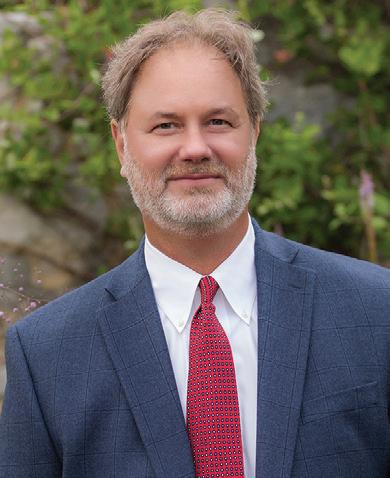
Regardless of how much money a family may have, parents have a responsibility to teach their children about finances. Starting early, children need to learn about how to be financially responsible once they leave the house and become independent. Here are three steps parents can take starting today:
1. Find teachable moments
It can be difficult to find time to sit down and talk specifically about money, but natural opportunities to teach pop up practically every day.
For example, you can incorporate financial responsibility into an impromptu math lesson about money: If you find something the child wants that originally cost $100 and is on sale for 30% off, you can ask how much the new price is — and, now that they are only spending $70, what they might do with the leftover $30.
2. Take a lifelong view toward financial literacy
Every child should have a tool kit of basic financial literacy skills by age 18, including concepts such as how to spend, how to save, how to give, and the value of a dollar.
This can start very early with an exercise as simple as a three piggy banks analogy. You encourage the child to divide any money he or she receives into three piggy banks: spending, saving, and community/charity. This shows the concept of money rather than having it all be for spending. Repeating this exercise can help in grain the habit of saving regularly.
By late childhood or adolescence, parents can add concepts such as what it means to invest, what companies one might invest in, and how to assess r
You can encourage children in high school to think about college expenses by exam ining the costs and coming up with a credible college budget. Ask them to consider basic questions: What will you need in order to make this happen? What will the family need to supply, and what is the student expected to supply in terms of tuition, books, room and board, transportation, and normal spending money?
And parents and grandparents can continue to encourage responsi nancial responsibility by giving young adults an incentive to begin saving for retirement early. If you’re able, and they have earned income, offer to match what they save into a Roth IRA. It’s also wise to encourage contributions to a 401(k) at work.
3. Show how it’s done
Your child’s healthy relationship with money begins with an ope tionship within a family that models good money behavior. These challenging, but the fruit is well worth the labor.
Stress education and expect them to do well in school. Parents teaching financial literacy typically lead by example — they ten more careful with spending money. Remember to be that example.
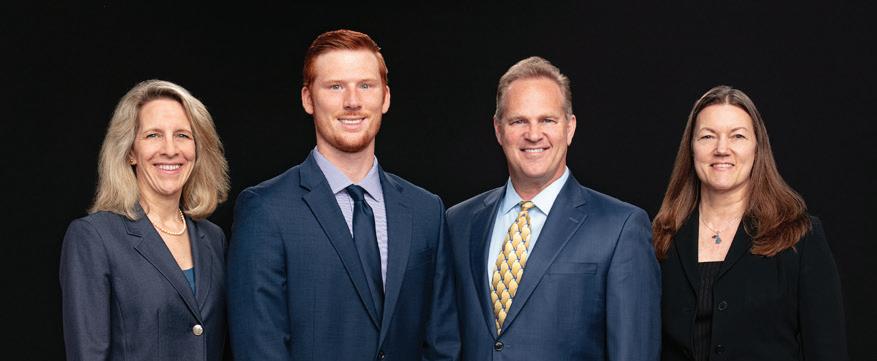 JULIAN | BLACK Wealth Management Group of Wells Fargo Advisors
JULIAN | BLACK Wealth Management Group of Wells Fargo Advisors









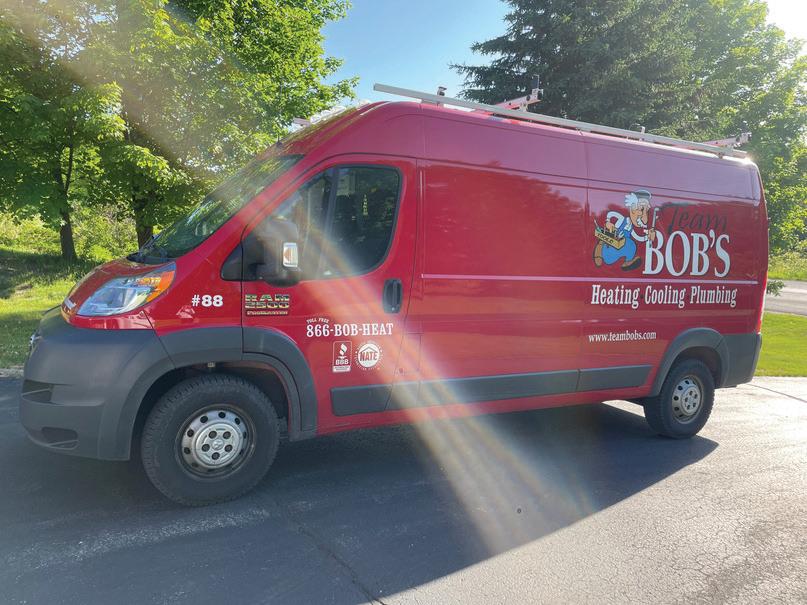




TRAVERSE CITY BUSINESS NEWS APRIL 2024 55 THE MARKET 10850 East Traverse Highway Suite 5575 Traverse City, MI (231) 922-4213 www.JBWMG.com INVESTMENT INSIGHT FROM THE LOCAL PROS Wells Fargo & Company and its affiliates do not provide tax or legal advice. This communication cannot be relied upon to avoid tax penalties. Please consult your tax and legal advisorsto determine how this information may apply to your own situation. Whether any planned tax result is realized by you depends on the specific facts of your own situation at the time your tax return is filed. This advertisement was written byWells Fargo Advisors and provided to you by JULIAN | BLACK Wealth Management Group. Investment and Insurance Products are: • Not Insured by the FDIC or Any Federal Government Agency • Not a Deposit or Other Obligation of, or Guaranteed by, the Bank or Any Bank Affiliate • Subject to Investment Risks, Including Possible Loss of the Principal Amount Invested Wells Fargo Advisors is a trade name used by Wells Fargo Clearing Services, LLC, Member SIPC, a registered broker-dealer and non-bank affiliate of Wells Fargo & Company. ©2020-2023 Wells Fargo Clearing Services, LLC. All rights reserved. CAR: 0623-02522 3 steps for raising kids with money smarts
State Farm Bloomington, IL 2001290 Right coverage. Right price. Right here in town. Here’s the deal. The right insurance should help you feel confident and comfortable. I’m the right good neighbor for that. Call me today. Like a good neighbor, State Farm is there.® Todd Hart Insurance Agency Inc Todd Hart CPCU ChFC CLU, Agent agent@toddhart.net www.toddhart.net Bus: 231-946-8790 Fax: 231-946-0822 special facilities for your luxury restroom trailers ANNUAL SPRING MAINTENANCE Entrust your home's comfort to our seasoned heating and cooling experts. Sign up for our maintenance program today to unlock a long list of benefits, including discounted services, priority scheduling, complimentary filters, and much more. Keep your cool and stay ahead of the game with our proactive maintenance solutions. WHAT ARE THE BENEFITS? Improved Energy Efficiency Extended Equipment Lifespan Safety Assurance Enhanced Indoor Air Quality 231-941-4064 www.teambobs.com CALL NOW TO SCHEDULE REQUEST AN ONLINE APPOINTMENT Optimized Performance
 By Elisa Wiegand, columnist
By Elisa Wiegand, columnist
Across industries, U.S. employers are in urgent need of qualified professionals to fill worker shortages. One way to fill this need is through an often overlooked visa: the TN (Trade NAFTA) visa. Under the United States-Mexico-Canada Agreement (USMCA), Canadian and Mexican citizens who work in designated occupations might be eligible for a TN visa.
A TN visa is a non-immigrant visa that allows Canadian and Mexican citizens who work in professional occupations to enter and work in the United States on a temporary basis. It does not lead to permanent residency or a green card, but it has an initial validity of up to three years and may be renewed indefinitely as long as the applicant remains eligible. To be eligible for TN visa status, a worker will need proof of Canadian or Mexican citizenship, a full-time or part-time job offer with a U.S. employer or a foreign employer with a U.S. entity, and must meet the qualifications to practice as listed under the appropriate occupational category.

Worker Shortage Solution?
Hiring Canadian or Mexican citizens with TN visa status grants numerous benefits to employers
The USMCA provides 63 occupational categories that are eligible for TN visa status. While eligibility requirements differ between occupations, most of them require a form of education credential, such as a baccalaureate/licenciatura degree or a certificate in a related field. Some of the most in-demand occupations that include these education requirements include registered nurses, post-secondary teachers, hotel managers, accountants and graphic designers.
Though most of the occupational categories require a degree or diploma, there are a few that alternatively rely on an applicant’s work experience, such as the categories of management consultant, scientific technician and disaster relief claims adjuster. While these occupations do not necessitate an education credential, applicants may face more challenges in applying under these categories as they require applicants to prove they meet a certain threshold of work experience and/or personal knowledge in the field. Employers may find the TN occupational categories and eligibility requirements at nafsa.org/ regulatory-information/8cfr2146.
The TN visa application process varies slightly depending on whether the applicant is a Canadian or Mexican citizen. Canadians can apply directly at a U.S. Customs and Border Protection (CBP) port of entry, such as a land border or designated preflight clearance. The applicant will have an interview with CBP and will have their packet
processed instantly. The only fee for Canadian citizens applying at the border is $56.
For Mexican citizens, the application process is more involved as they cannot obtain a TN visa at the Mexico/U.S. border. Mexican citizens must start the process by applying directly at a U.S. consulate or embassy in Mexico and receive a TN visa stamp. Fees for Mexican citizens include a visa fee of either $104 or $382, dependent on whether the applicant requests a one-year or four-year visa, in addition to a $160 non-immigrant visa application fee.
Hiring Canadian or Mexican citizens with TN visa status grants numerous benefits to employers:
• There are no costs or fees to the employer.
• Applications for Canadian citizens are processed instantly at the border.
• Applications may be processed at any time of year.
• TN status is indefinitely renewable.
• Unlike other employment visas, there is no annual cap on how many TN applications are accepted by the U.S. Department of Homeland Security With a wide range of occupational categories, employers have the opportunity to fill their labor needs promptly with talented professionals and technical workers. If you are interested in filling a position with a professional from Canada or Mexico, an immigration attorney may be able to assist you and the potential employee in preparing the TN visa application.
Advantages vs. Disadvantages to Hiring Under TN Status
Advantages:
• Employers are able to fill worker shortages with qualified foreign professionals.
• The only requisite for employers to hire a Canadian or Mexican citizen under TN status is an offer of part-time or full-time employment. Unlike other employment-based visas, employers are not responsible for any fees or overwhelmed by endless paperwork.
• As long as the applicant remains eligible, TN status is indefinitely renewable in three-year increments.
• Employers do not need to wait for a particular date or season to fill their positions as applications may be processed at any time of year.
• Unlike other employment visas, such as the H-1B, there is no annual cap on how many TN applications are accepted.
Disadvantages:
• TN visa status has a short validity period. The offered term of employment must be under three years. While TN status is indefinitely renewable, as long as the applicant is eligible, renewal may be cumbersome for the applicant and create employment uncertainty for the employer.
• The list of professional occupations listed in the TN visa program is limited and may not include certain job titles or industries.
• Issuance of TN visa status is not guaranteed and applicants may have their applications denied for various reasons.
Elisa Wiegand is an attorney of-counsel with Pillar Immigration Services based in Traverse City. She can be reached at (888)745-5274 or via email at elisa@pillarservicesusa.com.
56 APRIL 2024 TRAVERSE CITY BUSINESS NEWS
ACCOUNTING INSURANCE & LAW





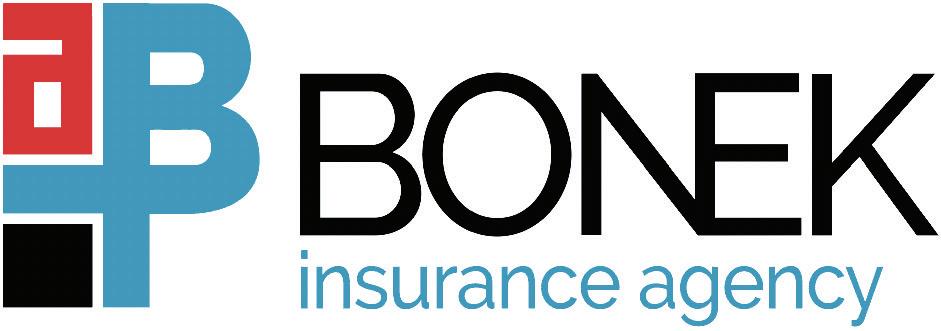



TRAVERSE CITY BUSINESS NEWS APRIL 2024 57 AT COMMONGROUNDS 414 E 8TH STREET • MAIN ENTRANCE OFF 8TH STREET ENTER TO WIN: • Dinner and a show for 4 from NoBo Mrkt and The Alluvion • 10 hours of meeting room reservations from Commonplace Community Coworking (accommodates a team of 6-8) • Original artwork from an Alluvion Arts @ 414 exhibiting artist • Ticket to a Higher Grounds Learning Lab coffee class • 1:1 coaching session from This Osteopathic Life WEDNESDAY APRIL 3 • 5PM-7PM Recess is brought to you by Food and drink offerings from Nobo Mrkt. $10 entry. Recess 2024 is brought to you by West Shore Bank. When you choose West Shore Bank, you’re not just choosing a bank; you’re choosing a partner committed to the well-being of our community. DJ Ras Marco spinning vinyl records in The Alluvion Guided tours of Commongrounds Experiment with coffee inside Higher Grounds Learning Lab Enjoy the Botanic Art Exhibit, and more! LUXURY CONDO HISTORIC HANNAH LAY BUILDING 109 E Front Street | Traverse City, MI Your own private rooftop with floor to ceiling glass views overlooking the bay 522 E FRONT STREET TRAVERSE CITY, MI 231.499.1990 shawn@shawnschmidtsmith.com SHAWN SCHMIDT SMITH ASSOCIATE BROKER www.TheShawnSchmidtGroup.com (231) 271-3623 • www.bonek.com Integrity • Relationships • Since 1934 Celebrating 90 Years Why choose Bonek? For 90 years, Bonek Insurance has provided personal and commercial insurance protection. We form strong relationships with our clients –keeping their best interests in mind. Let us customize your coverage. Call us today!







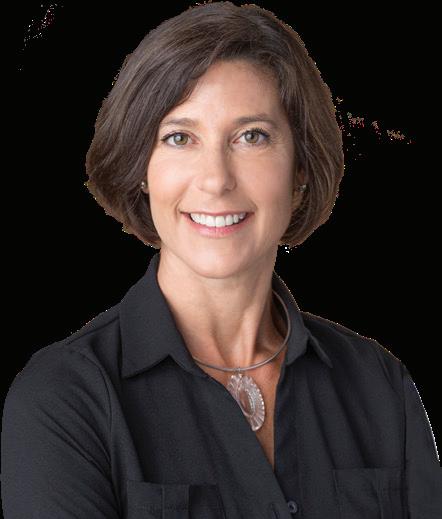


58 APRIL 2024 TRAVERSE CITY BUSINESS NEWS ANN PORTER ASSOCIATE BROKER / REALTOR 231.944.4959 Ann@AnnPorterTC.com Find detailed listing information at www.AnnPorterTC.com 521 Randolph Street, Traverse City, MI 49684 FIND DETAILED LISTING INFORMATION AT www.AnnPorterTC.com 1995 US-31 N, Traverse City Fully furnished condo 260 feet of East Bay frontage Outdoor pool and hot tub Elevator in building 1 bedroom, 1 bathroom In-unit laundry Short-term rentals allowed Easy access to TART Trail and downtown TC! MLS 1918637 | $385,000 2198 Chelsea Ln, Traverse City Main level living condo Newer construction Impeccably maintained 4 bedrooms, 3 bathrooms Enclosed 3-season room Open air deck overlooking natural area Walkout lower level 2-car attached garage MLS 1919539 | $700,000 67 N US 31 S Traverse City BayViewFlooring.com Professional, On-time Installation you get a pair of these. BAY VIEW FLOORING & DESIGN CENTER With every square foot of flooring...

Michigan’s third largest airport, Cherry Capital Airport posted its biggest year ever in 2023. But the airport’s growth is making it increasingly more difficult to delay or move flights around for the National Cherry Festival (NCF) air show. We caught up with Airport CEO Kevin Klein to hear more about contract negotiations with the NCF as well as the new airline coming to TVC this summer.
TCBN: Let’s start out with something that’s been in the news. You’ve been negotiating a new contract with the National Cherry Festival, and now the negotiations have sort of gone public. What is the main issue, that the airshow is during your busiest week?
Klein: It’s one of the busiest weeks of the year, yes. We’re looking at the overall impact of the air show; the bottom line is it’s a balance between the air show and airport activity. It [the air show] impacts over 116 different airline flights over four days and costs $3.5 million in airline revenue from diversions, delays, and cancellations. Years ago we had gaps in our airline schedule and those 30-40 minute gaps made it no problem. Today our gaps are five minutes or less. We know the Blue Angels and Thunderbirds are important, but then in times when others are performing, we want what we call “low performance aircraft” that are slow-moving to be allowed to operate at the same time as air carriers.
TCBN: And where are the negotiations as of today?
Klein: At this moment [March 19] the National Cherry Festival and the Northwest Regional Airport Authority have exchanged an agreement document. Both parties have made comments and are planning to meet on March 25. The Airport Authority looks to continue the long-standing tradition of the airshow while balancing all activity at the airport.
With a new airline joining in June, TVC will offer 20 direct flights from TC
TCBN: Is the airport compensated for the air show?
Klein: No, not in cash. It costs us $100,000 a year, including staff time, equipment, safety...not including that lost airline revenue. But the cost keeps growing and you look at the demands of an air show, and today there are more safety requirements and regulations than ever.
TCBN: I know you’ve been traveling a lot for industry meetings. What’s new?
Klein: Lots! At a recent event in Phoenix, I had meetings with nine different airlines, and they were great. American Airlines is adding an additional frequency on Saturdays for Dallas, which is great. At United, we had our recent announcement on Houston service starting June 29 Saturdays through August 17, and
will be our kickoff for them. That will be 20 direct routes from Traverse City.
TCBN: That’s great. Twenty direct flights. How many were there 10 years ago or so?
Klein: I know in 2011 we had just five.
TCBN: What else did you learn on your travels?
Klein: Well, we also met with a lot of carriers, including Delta, Sun Country, Jet Blue, Breeze, and Spirit. Overall I’m hearing the industry is in good health and profitability is returning, but labor shortages continue, though specifically pilot shortages are starting to get resolved. But the biggest issue has been new aircraft deliveries; many companies are waiting on new aircraft.
“The airlines want to be here because we’re still a relatively unknown market. Every time an airline adds something here, it works. That’s not the case around the country. So yes, we’re in a great position with the air carriers.”
bookings are going well, and that’s boosted by $1.2 million in incentives. Allegiant starts their new Florida service on May 17, taking us to 18 direct routes. Houston took us to 19.
TCBN: And I understand you have news…
Klein: I do! We have a new airline coming to TVC called Avelo. They’re an ultra-low cost carrier that started in 2021. They’ll be doing service from here to New Haven, Conn. flying a Boeing 737-800, starting Saturdays in June. We’ve seen lots of golf interest from that area to Traverse City, Gaylord and Charlevoix. So they’re coming to join us. They also service Kalamazoo and Lansing to Florida, but this
TCBN: Anything more?
Klein: The last good news that we received is that the State of Michigan has been working on air service development. In the Governor’s 2024 fiscal year budget, we were able to put in $5 million for air service revitalization. There were applications received from all airports. We received a notice of intent to reward $750,000 to TVC to grow our Charlotte service to daily for summer 2024. We’re excited about that.
TCBN: Are we growing to a point where one or more of these direct routes that just run in the summer could expand to beyond seasonal service?
Klein: I’d say Dallas with American
and Denver with United. And then I still wonder why we don’t have expanded [New York] LaGuardia service with Delta. Eventually maybe we would at some point get Washington DC and Charlotte on an expanded basis.
TCBN: Seems like your job at these airline meetings is much easier than most airport directors’.
Klein: Well, the airlines want to be here because we’re still a relatively unknown market. Every time an airline adds something here, it works. That’s not the case around the country. So yes, we’re in a great position with the air carriers.
TCBN: And with TVC doing so well, how are other Michigan airports doing? Is the growth still all west Michigan?
Klein: Grand Rapids and Traverse City, yes. We grew 20 percent last year, Grand Rapids grew six percent, but six percent is huge for them with their volume. Detroit is coming back slowly, maybe growing one percent.
TCBN: So are you ready for your busiest season ever?
Klein: All the airlines are hiring for summer help, but they say they’ll be ready. The TSA is fully staffed, so that’s good news. The airport is fully staffed. Air traffic control is down two controllers right now but two are in training, so we should be good there. Overall we’re feeling a lot more positive than in years past. The jet bridges on gates one, three and four will be replaced between spring break and Memorial Day, so that’s exciting. From a parking standpoint we’re doing very well with the recent expansion.
TCBN: Any luck working to get more Uber drivers for rides to and from the airport?
Klein: We’re still working through that, trying to get more and more. But we do have the Turo app and cars here now, too.
TRAVERSE CITY BUSINESS NEWS APRIL 2024 59



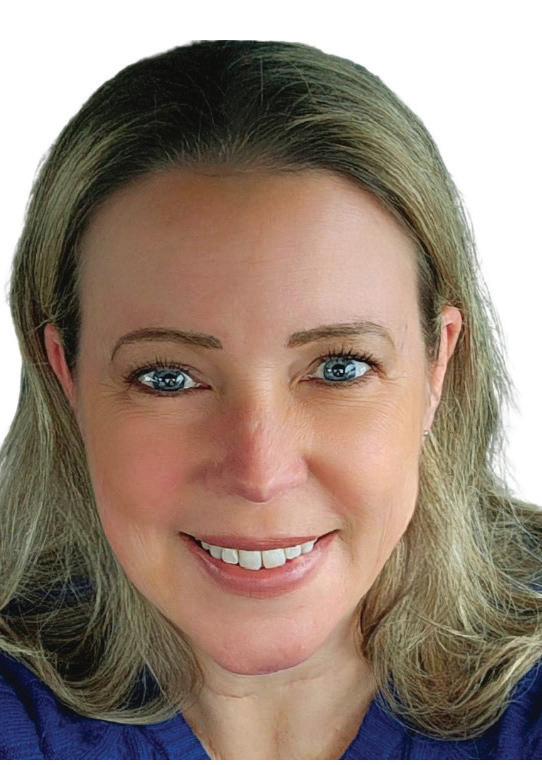
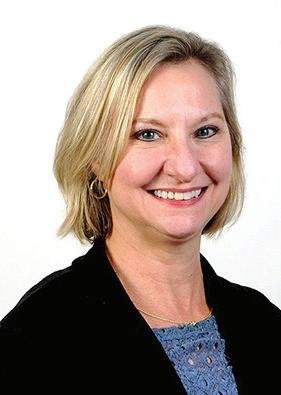


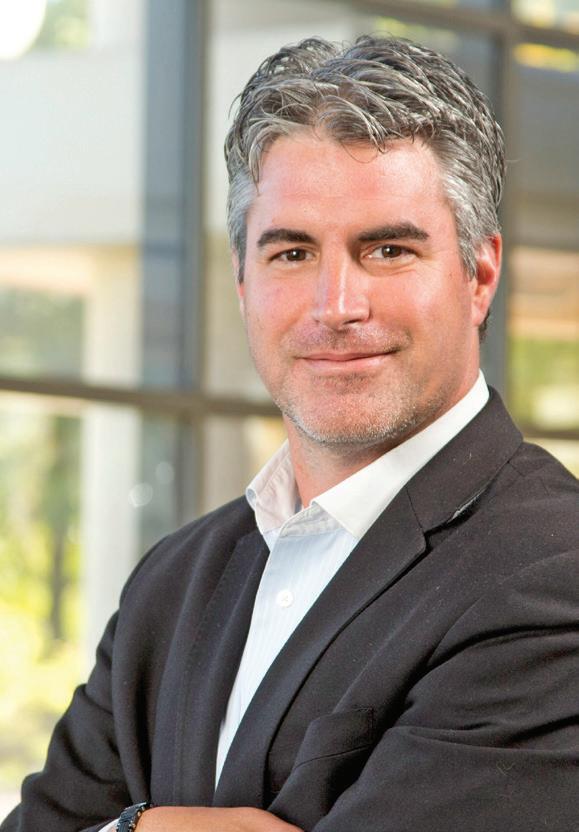
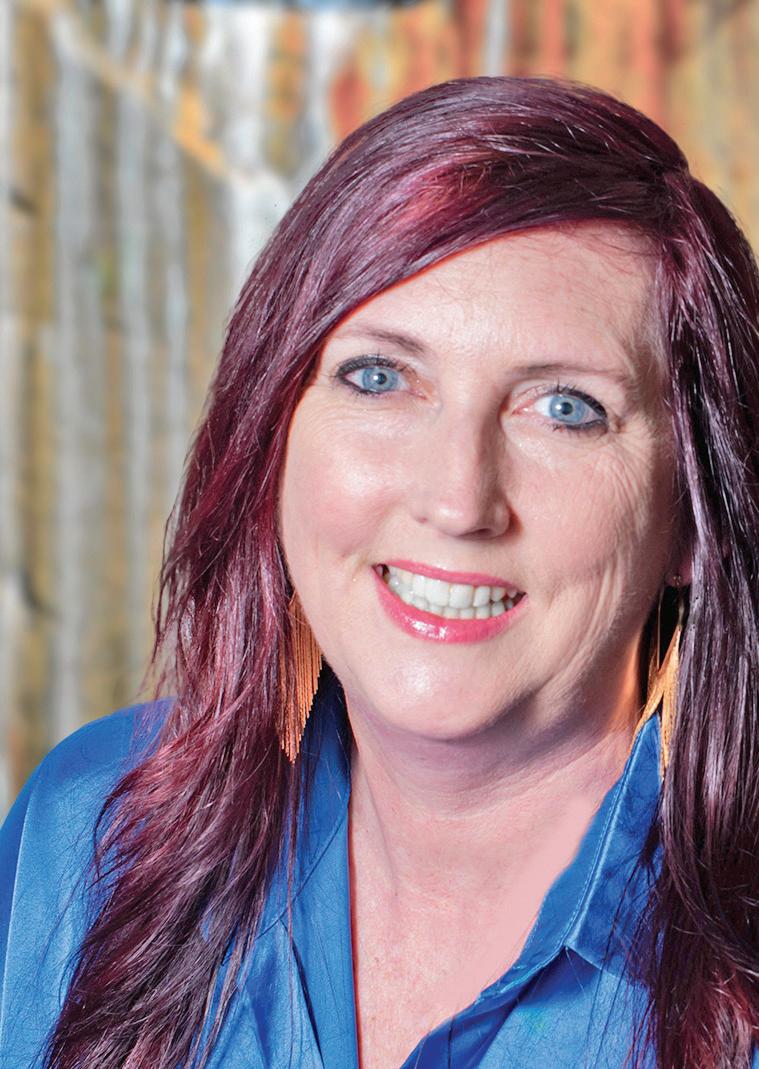

>> HEALTHCARE
1 - Joe Hurshe has been selected as the new president of Munson Medical Center in Traverse City. Hurshe brings 30 years of leadership experience in the healthcare industry, including 13 with Ascension Health, the second largest non-profit Catholic health system in the country. Most recently, he served as COO for Ascension Michigan, whose 16 hospitals and 24,000 employees represents the health system’s largest operation across 19 states and Washington, D.C.
>> INSURANCE
2 - Tyler Bartosh, vice president of sales at Top O’ Michigan Insurance Solutions in Traverse City, recently earned the Cannabis Insurance Coverage Specialist certification.
>> MANUFACTURING
3 - Sheryl Roche has joined Grand Traverse Plastics in Traverse City as a senior account manager. Roche brings a background in the automotive industry with roles with both tier 1 and tier 2 suppliers.
4 - Stephanie Unger is a new inside sales account representative at Grand Traverse Plastics in Traverse City. Unger brings a wealth of automotive expertise to her new role.
5 - Mandy Peterson has been promoted to CEO/ CFO at Photodon in Traverse City. Peterson has been with the company since 2011.
>> REAL ESTATE
6 - Martha Bernstein has joined EXIT Realty Paramount in Traverse City as a Realtor.
CENTURY 21 Northland recently announced the following agent additions
7 - Marianne Burrows has joined the company in its Elk Rapids office.
8 - Peter Bush has joined the company’s Traverse City office.
9 - Missy Kowalski has joined the company’s Elk Rapids office.
10 - Anne Schwartz has joined the company’s Traverse City office.
60 APRIL 2024 TRAVERSE CITY BUSINESS NEWS
NEWSMAKERS
2 // TYLER BARTOSH
3 // SHERYL ROCHE
4 // STEPHANIE UNGER
1 // JOE HURSHE
5 // MANDY PETERSON
7 // MARIANNE BURROWS
8 // PETER BUSH
9 // MISSY KOWALSKI
6 // MARTHA BERNSTEIN
10 // ANNE SCHWARTZ
>> OTHER



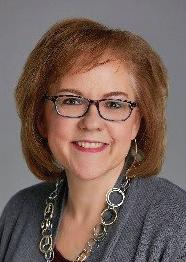
11 - Lindsey Anderson is the new CEO for Grand Traverse Janitorial, dba Porcelain Patrol Service and GT Supply in Traverse City. Anderson previously served as director of admissions at Interlochen Center for the Arts and brings a background of leadership and innovation to her new role.
12 - Lander Bachert has been named the new CEO of the Tra verse Bay Children’s Advocacy Center in Traverse City. Bachert brings more than 10 years of experience in the nonprofit sector. Most recently, she was the CEO of Big Brothers Big Sisters of Big Sky Country.
13 - Mike Burlingame has been promoted to director of operations at Sonny’s Body Shop in Traverse City. Burlingame has served as human resources lead for the past 11 years and also brings extensive experience working with insurance companies to his new role.


14 - Rachel Gauthier has joined Nowak Cabinets in Williamsburg as a senior designer. Gauthier’s professional background includes five year as a designer at a Herman Miller dealer, covering all of northern Michigan.
15 - Sarah Kosteva has joined Black Star Farms as marketing manager and creative project leader. Kosteva brings a background in graphic design and digital media to drive branding for the winery, inn, bistro and tasting rooms.
16 - Debbie Perkins, office and education coordinator for the Home Builders Association of Northwest Michigan, has been appointed to the National Association of Home Builders Education Committee. With the HBA Northwest Michigan since 2015, Perkins has been instrumental in expanding the education courses offered locally to members and the building community.

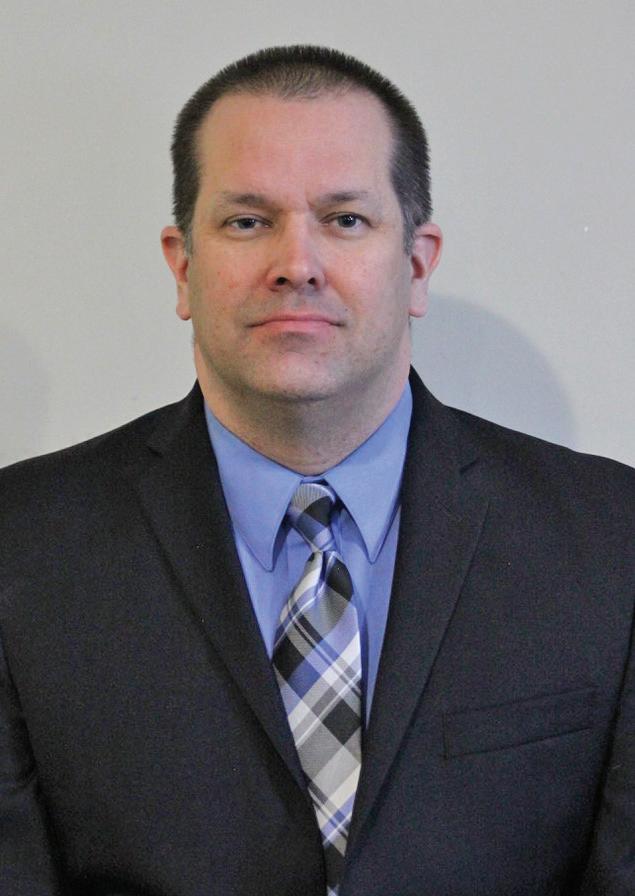
17 - Scott Rector was recently named 2023 Employee of the Year for the Grand Traverse County Sheriff’s Office Corrections Division. Rector began his career with the sheriff’s office in 2004.
18 - Nathan Ritter was recently named the 2023 Employee of the Year for the Grand Traverse County Sheriff’s Office Law Enforcement Division. Ritter has been with the sheriff’s office since 1999.
Please send Newsmakers by the 10th of the month to news@tcbusinessnews.com
TRAVERSE CITY BUSINESS NEWS APRIL 2024 61 NEWSMAKERS
11 // LINDSEY ANDERSON
12 // LANDER BACHERT 13 // MIKE BURLINGAME
14 // RACHEL GAUTHIER
16 // DEBBIE PERKINS 17 // SCOTT RECTOR 18 // NATHAN RITTER
15 // SARAH KOSTEVA
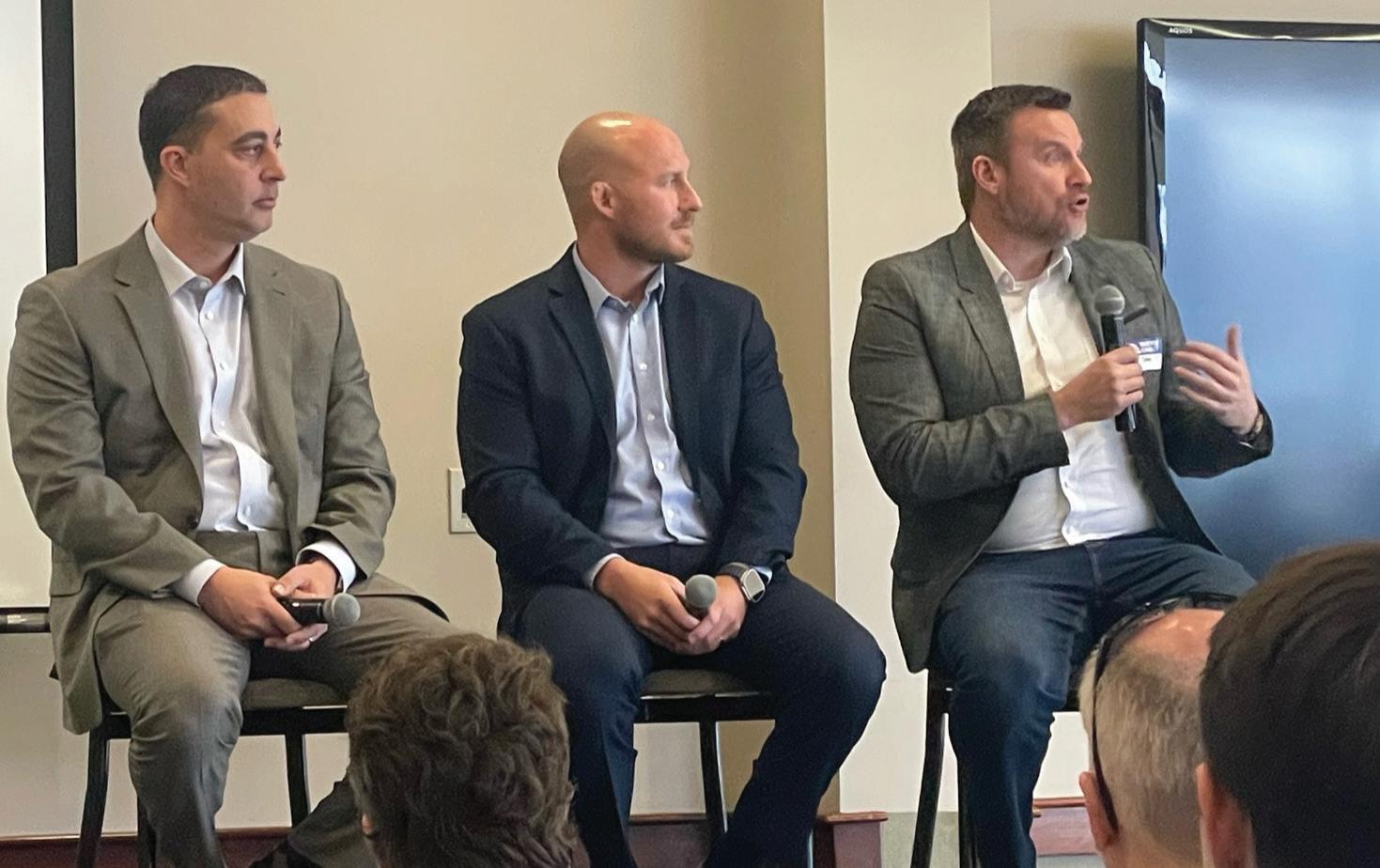

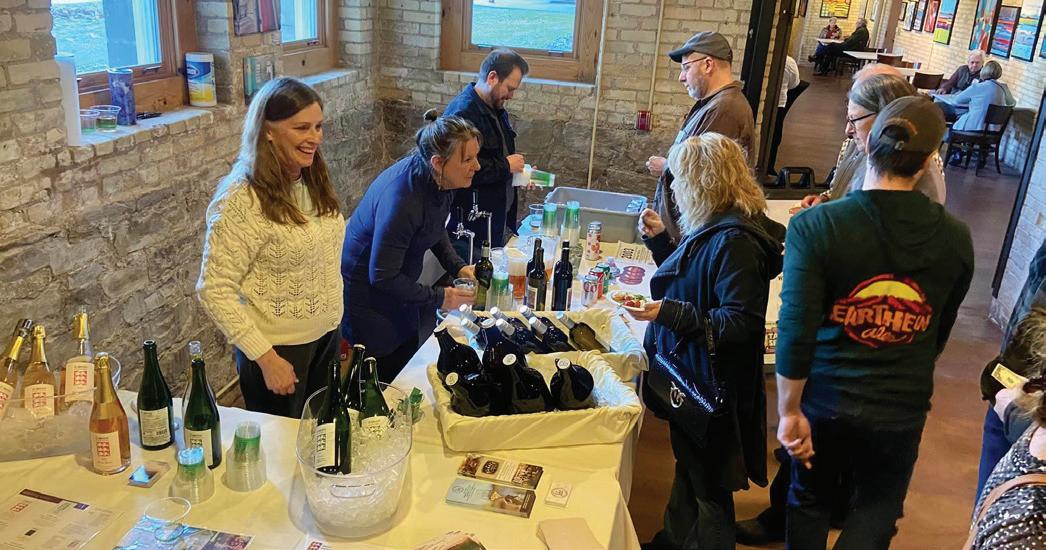

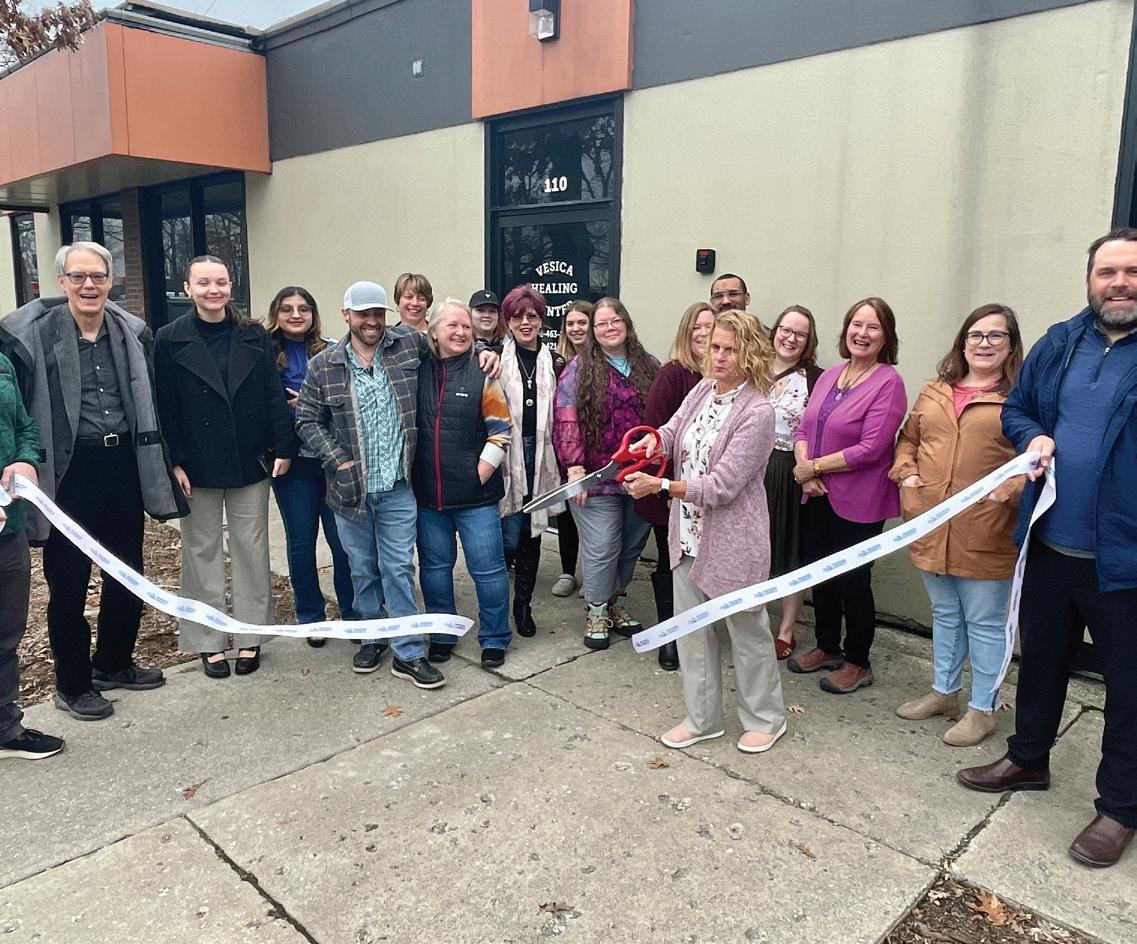


62 APRIL 2024 TRAVERSE CITY BUSINESS NEWS
EXPOSURES
Panelists Michael Saad, Munson Healthcare; Ryan Confer, Ford Insurance; and Nate Steed, Warner Norcross + Judd, spoke at Traverse Connect’s Economic Strategy Session event March 20. Laurie Lapp from Axios HR (not pictured) served as moderator.
Rare Bird Brewpub hosted this year’s International Women’s Collaboration Brew Day. The event is open to women working in or interested in beer who want to learn and network.
At the Kiwanis Club of Traverse City event “Kids Coalition Against Hunger,” 49 volunteers from the Kiwanis Club and the Key Clubs of TC Central, West and Saint Francis high schools packed 20,368 meals at TC Central’s cafeteria.
Great Lakes Orthopaedic Center sports medicine orthopaedic surgeon Dr. Tom O’Hagan recently talked to high school students about what’s involved in being an orthopedic surgeon and careers in healthcare. He also taught students some suturing skills.
Traverse Connect recently helped mark the opening of new investor member Vesica Healing Center at 1030 Hastings St. Ste. 110. Services of the center include Reiki healing, body energy balancing, injury and trauma healing, psychic intuitive guidance, reflexology and more.
The Mercato at The Village at Grand Traverse Commons was the scene for The Ticker’s March 6 Recess. Attendees at the monthly after-work happy hour enjoyed food and drinks from vendors across the Village, including Earthen Ales beer, wine and cider from Left Foot Charley, and food offerings from Cuppa Joe, Pleasanton Brick Oven Bakery, Spanglish, Red Spire Brunch House and Sugar 2 Salt.

TRAVERSE CITY BUSINESS NEWS APRIL 2024 63 Looking to set your dreams in motion and start growing your business? MSUFCU offers the products and services you need to set you up for success including: eDeposit — Save time by depositing checks electronically. Merchant Processing Accept all major credit cards and have the funds deposited into your MSUFCU business account. PositivePay Protect your company with automated fraud detection that verifies and reconciles your checking and ACH transactions before final payment. Business IMMA — Earn higher dividends on savings. Your Business Your Way Contact our Business Services team or visit a local branch today! msufcu.org/business | 231-715-4016 Federally insured by NCUA



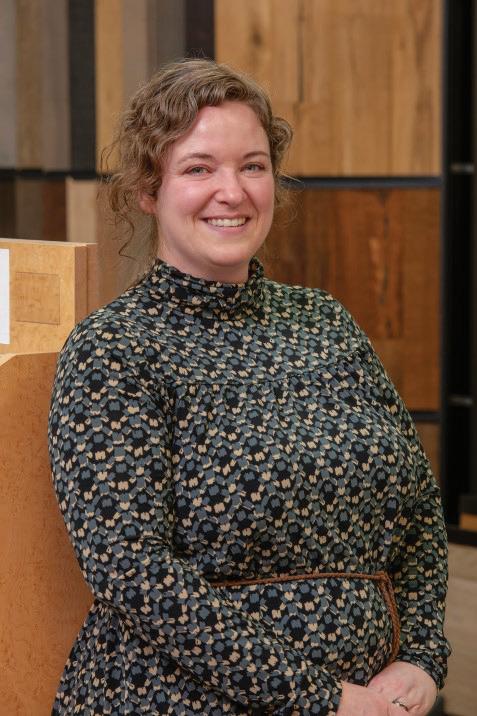





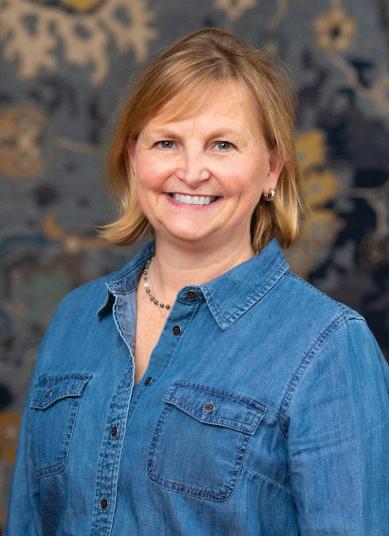



· ·
Heather Judi Kristine Barb































































































 By Art Bukowski
By Art Bukowski
 Gene and Kathy Garthe
Gene and Kathy Garthe


























































































































































 By Josh Traeger, columnist
By Josh Traeger, columnist








 By Eric Braund, columnist
By Eric Braund, columnist







 By Chris Wendel
By Chris Wendel
















 JULIAN | BLACK Wealth Management Group of Wells Fargo Advisors
JULIAN | BLACK Wealth Management Group of Wells Fargo Advisors














 By Elisa Wiegand, columnist
By Elisa Wiegand, columnist


























































